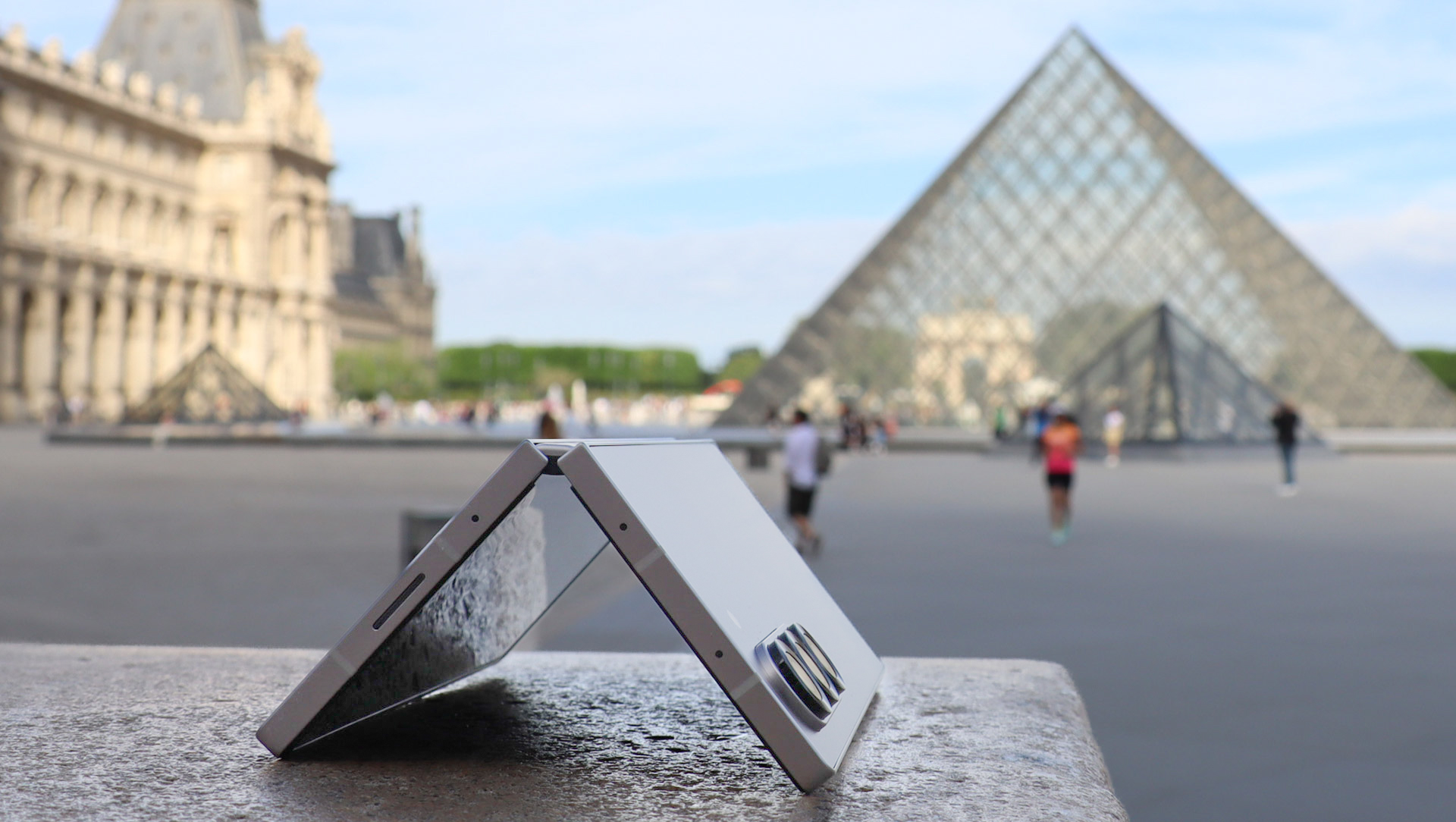
Samsung Galaxy Z Fold 6: One-minute review
A foldable phone succeeds when it looks and feels like a regular flagship smartphone even when folded, only revealing its secret when you grab two edges and unfold it to reveal the tablet-sized display inside. Samsung Galaxy Z Fold 6, brings that dream another small setup closer to reality, shaving grams off the weight and a millimeter or so of thickness to deliver the thinnest and lightest folding Samsung smartphone ever. I can’t tell you how much I enjoy carrying and using it. Actually, I can…
Samsung unveiled the Galaxy Z Fold 6 at Samsung Galaxy Unpacked in Paris on July 10 alongside the new and now similarly-redesigned Galaxy Z Flip 6 and a host of other new Galaxy hardware, including watches, earbuds, and the eagerly-anticipated Galaxy Ring.
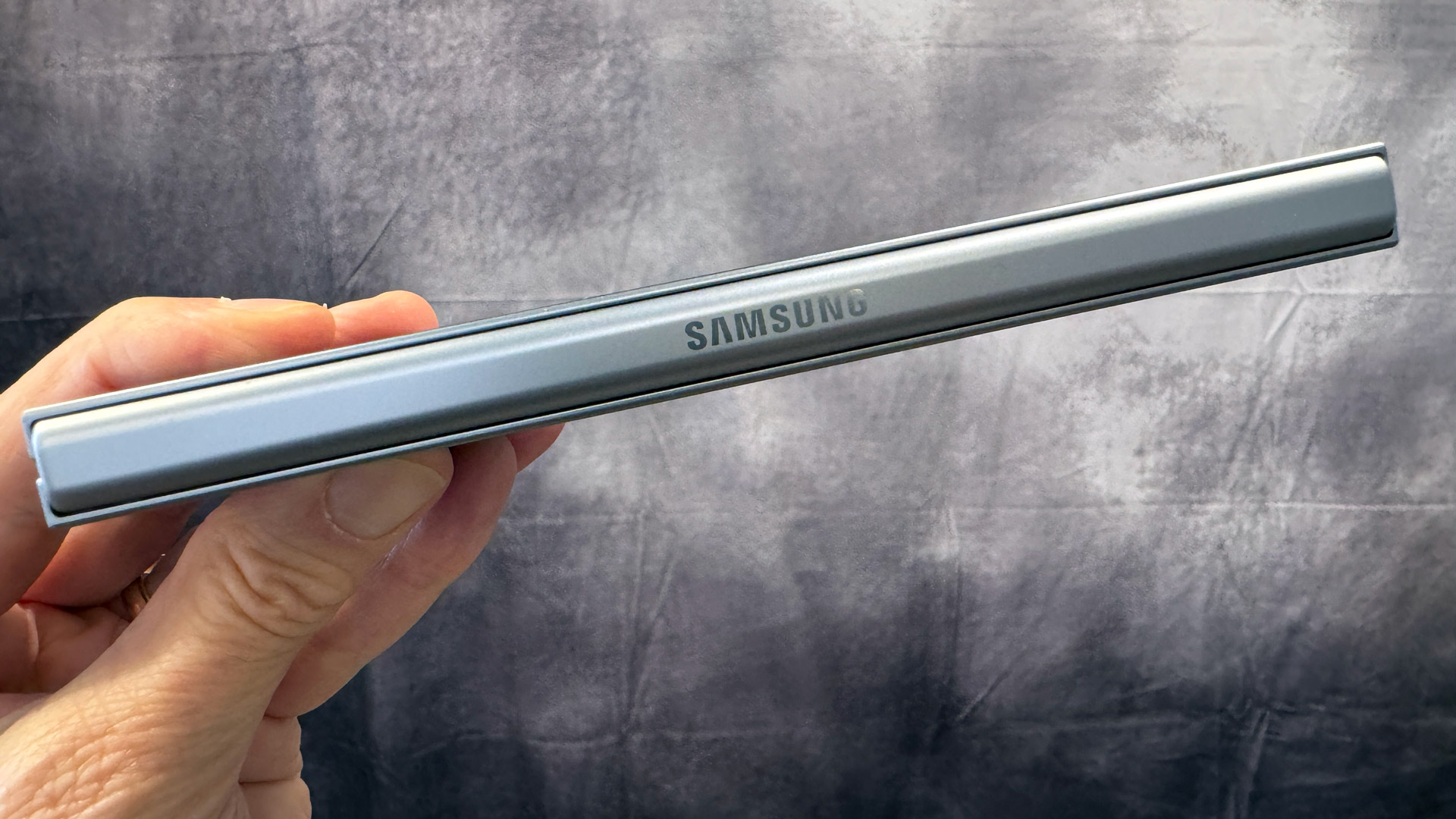
When folded, it's still roughly twice as thick as a Samsung Galaxy 24 Ultra or an iPhone 15 Pro Max. The 7.6-inch flexible AMOLED screen still has a crease at the hinge. But it's now just 9 grams heavier than that Ultra, and where the cover screen was once too narrow to use, it's wide enough to make typing almost a pleasant experience. Of course, if you make the outer screen wider, the inner screen gets a little bigger, too, and that extra screen real estate is appreciated.
A fast and powerful 5G phone, the Samsung Galaxy Z Fold 6 is built on a foundation of versatility. It's a nice, 6.3-inch smartphone that is easy to grip and responsive to touch. It's also a 7.6-inch tablet that is up to virtually any task, from movies to email, drawing doodles to serious multi-tasking productivity.
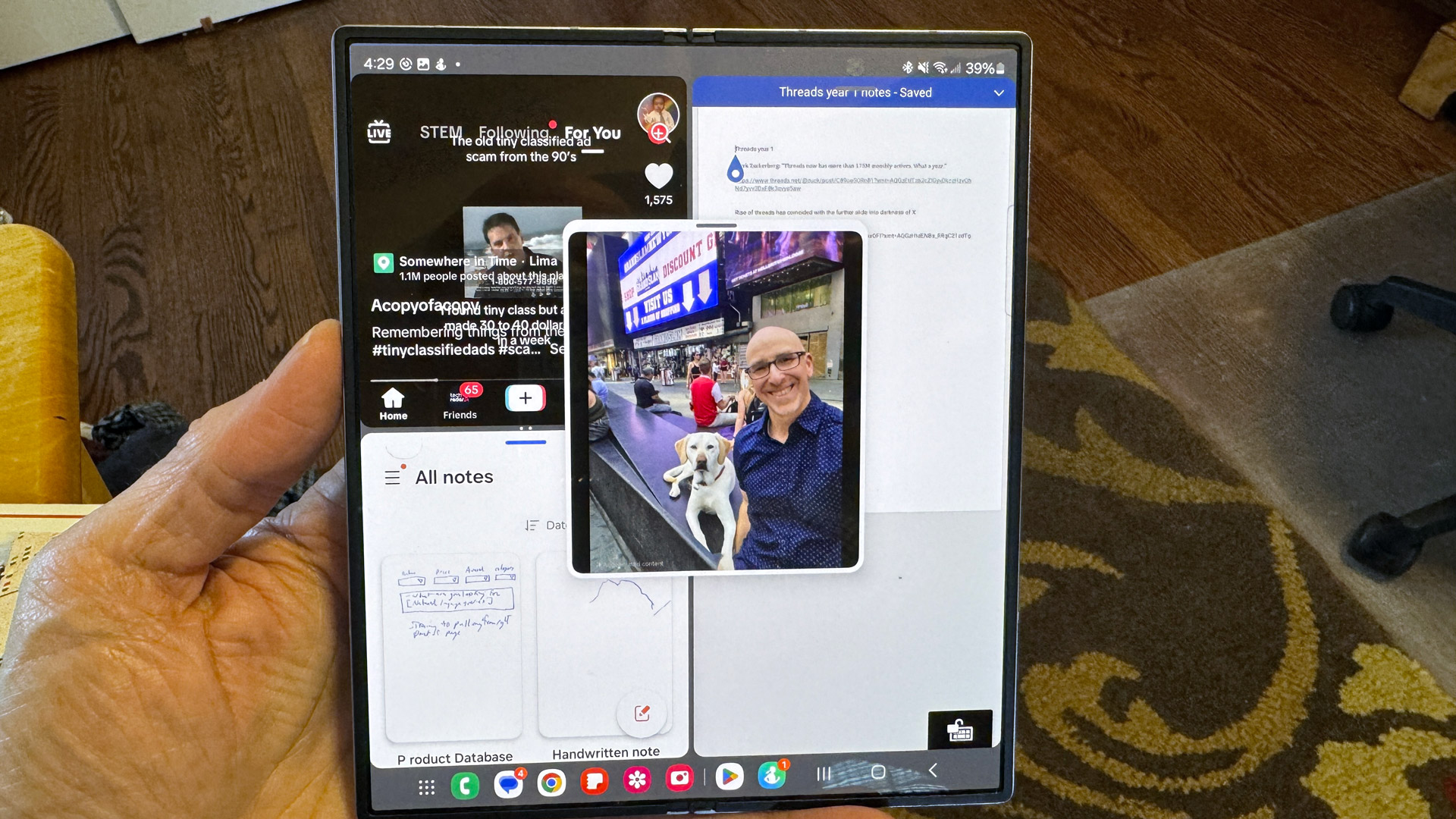
That main screen, by the way, is brighter and more resilient than ever, and while I didn't test its durability, I can see the extra brightness with my own eyes. It's a screen that looks vibrant and responsive indoors (thanks, variable refresh rate), colorful and bright outdoors (thanks, increased max nits).
With a solid OneUI platform backed by Android 14 and a deep well of Galaxy AI capabilities, this Galaxy Z Fold 6 is the complete package. I've enjoyed using it from the moment I picked it up in Paris, then at home for hours on end.
Samsung Galaxy Z Fold 6: price and specs
The Galaxy Z Fold 6 starts at $1,899.99 / £1,799 / AU$2,749, which is $100 more than the previous model in the US. The base model comes with 256GB of storage and an ample 12GB of RAM. It’s on preorder now and ships as early as July 23, depending on where you live. There are multiple color options – Pink, Navy, and Silver Shadow – as well as a pair of online exclusives – White and Crafted Black. My review unit is silver but I prefer the deep Navy blue.
Galaxy Z Fold 6 specs compare favorably to the Google Pixel Fold (soon to be supplanted by the Google Pixel 9 Fold Pro) but lags behind the well-reviewed OnePlus Open, which is considerably cheaper than the Fold 6 and starts with 512GB of storage and 16GB of RAM. The OnePlus, though, is running on last year's Qualcomm Snapdragon 8 Gen 2 and it doesn't come with the long-term software support that Samsung offers.
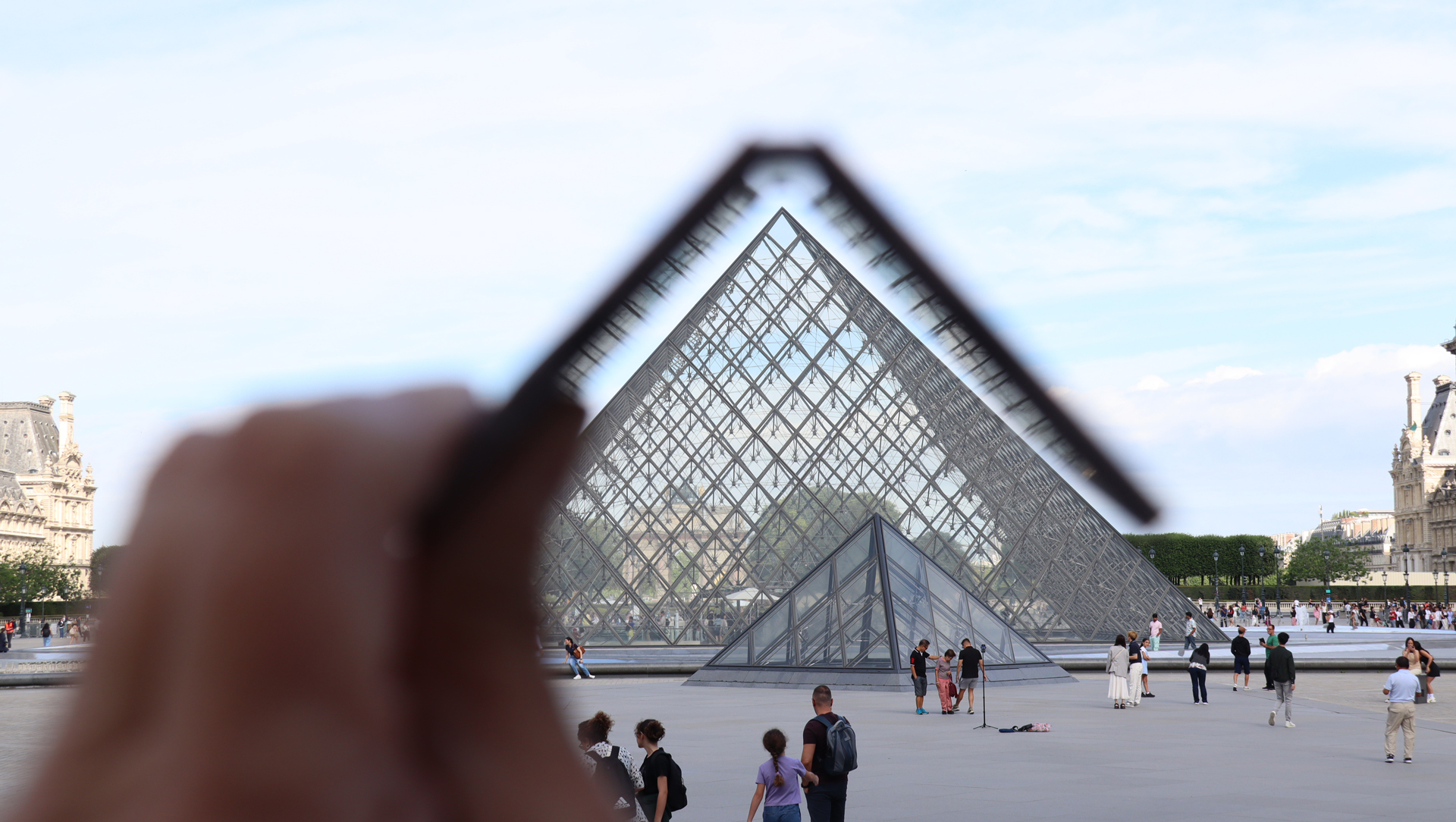
- Value score 3.5 / 5
Samsung Galaxy Z Fold 6: design
- Truly attractive redesign with even less crease
- Thinner and lighter than ever
- Quality materials
The improvements between the Samsung Galaxy Z Fold 6's dimensions and the Galaxy Z Fold 5 can be measured in a few millimeters, but they make a difference.
Folded, the Z Fold 6 is slightly wider, slightly shorter, and significantly thinner than the Galaxy Z Fold 5. Samsung has also managed to reduce the phone's weight. The Galaxy Z Fold 6 is just 239 grams, which is only 7 grams more than the Samsung Galaxy S24 Ultra. Carrying such a lightweight multi-purpose device in my hand or my pocket is a pleasure.
The weight reduction helps, and this phone also looks great. The new design is a welcome improvement in look and feel. It should be plenty durable, with Gorilla Glass Victus 2 and Armor Aluminum, the same material used on the Galaxy S24.
Samsung refined everything from the speakers to the camera array. The buttons are flat and elegant. Everything about the look says Pro, though there is no "Pro" in this flagship's name.
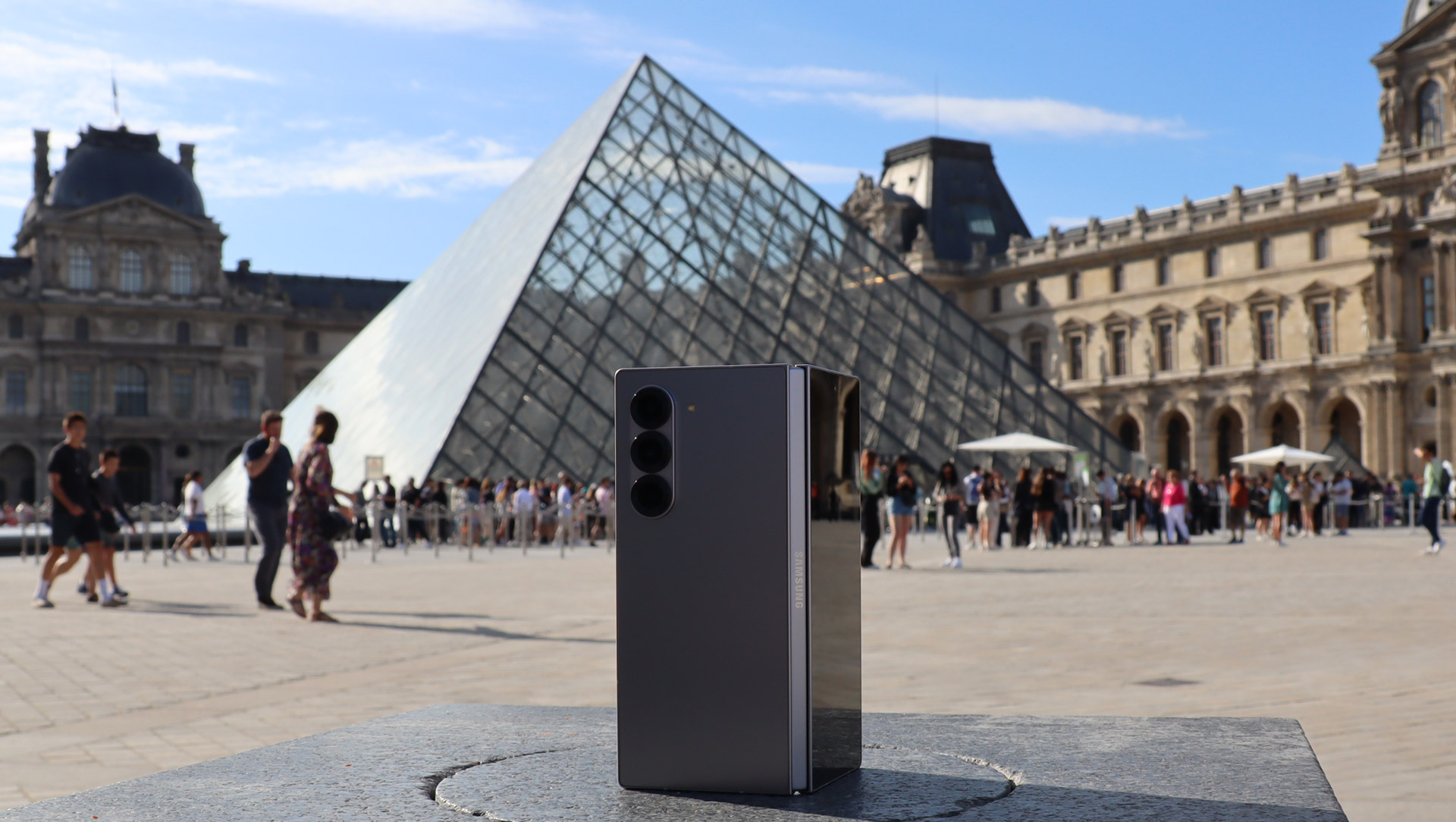
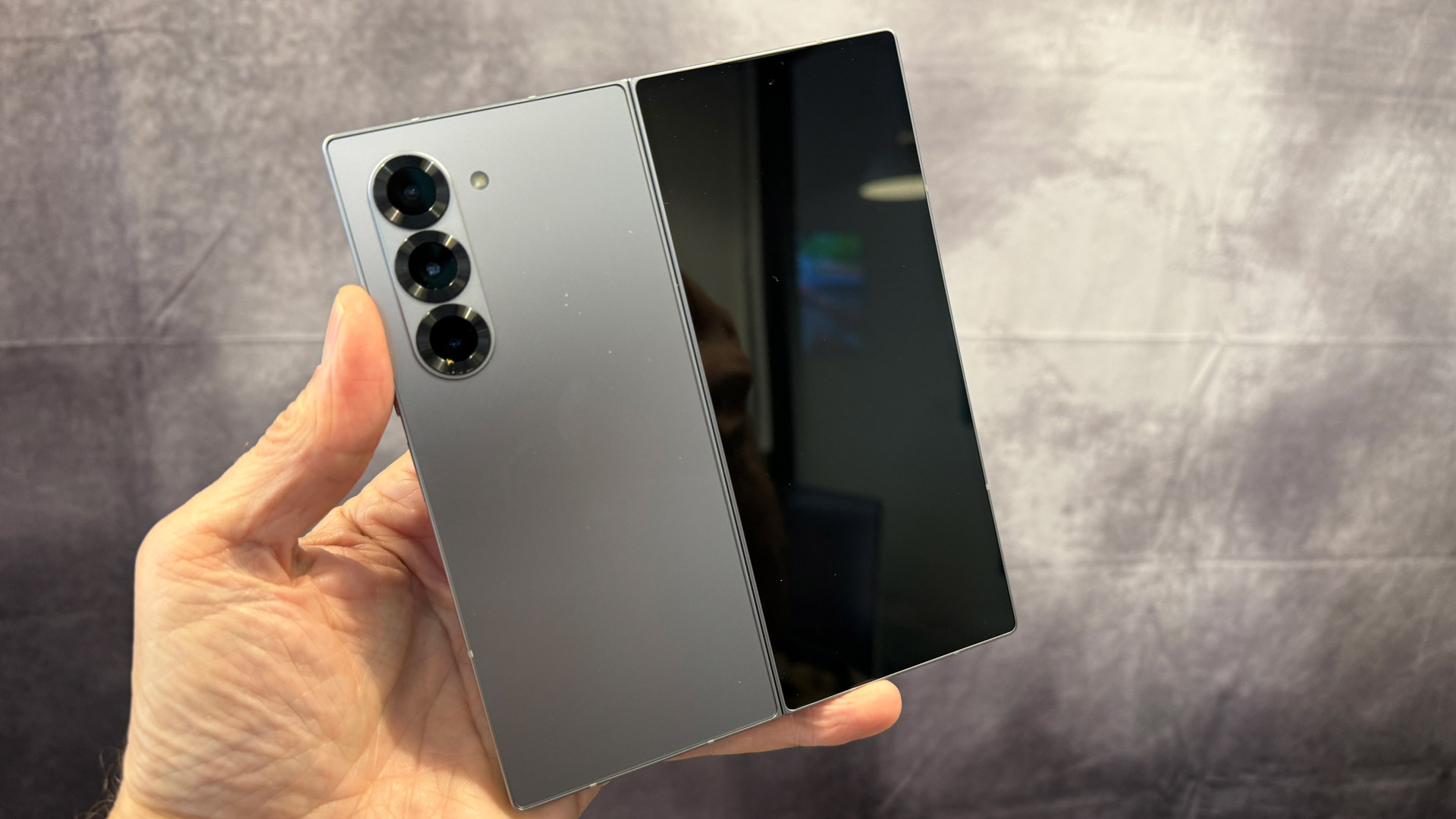
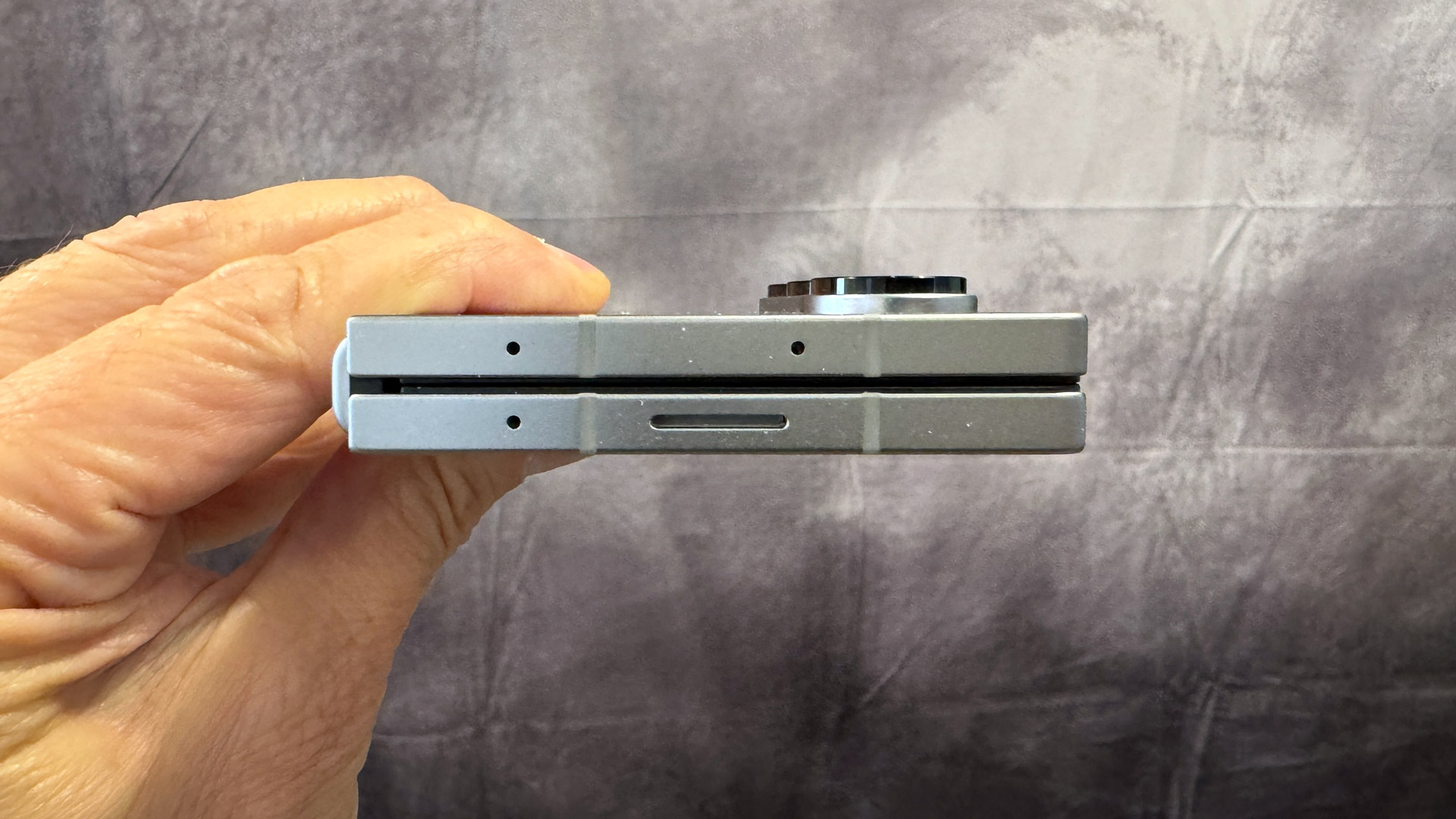
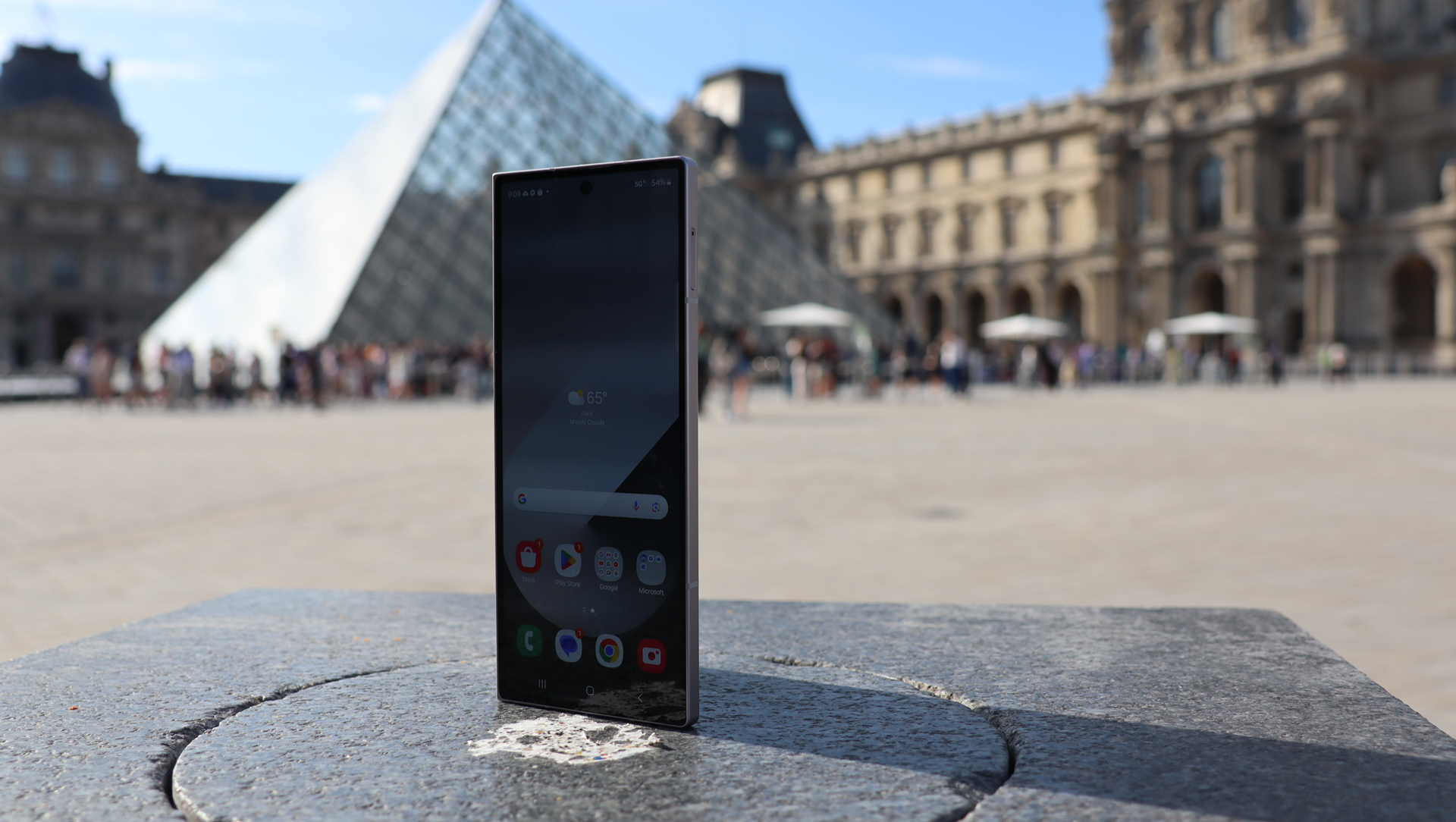
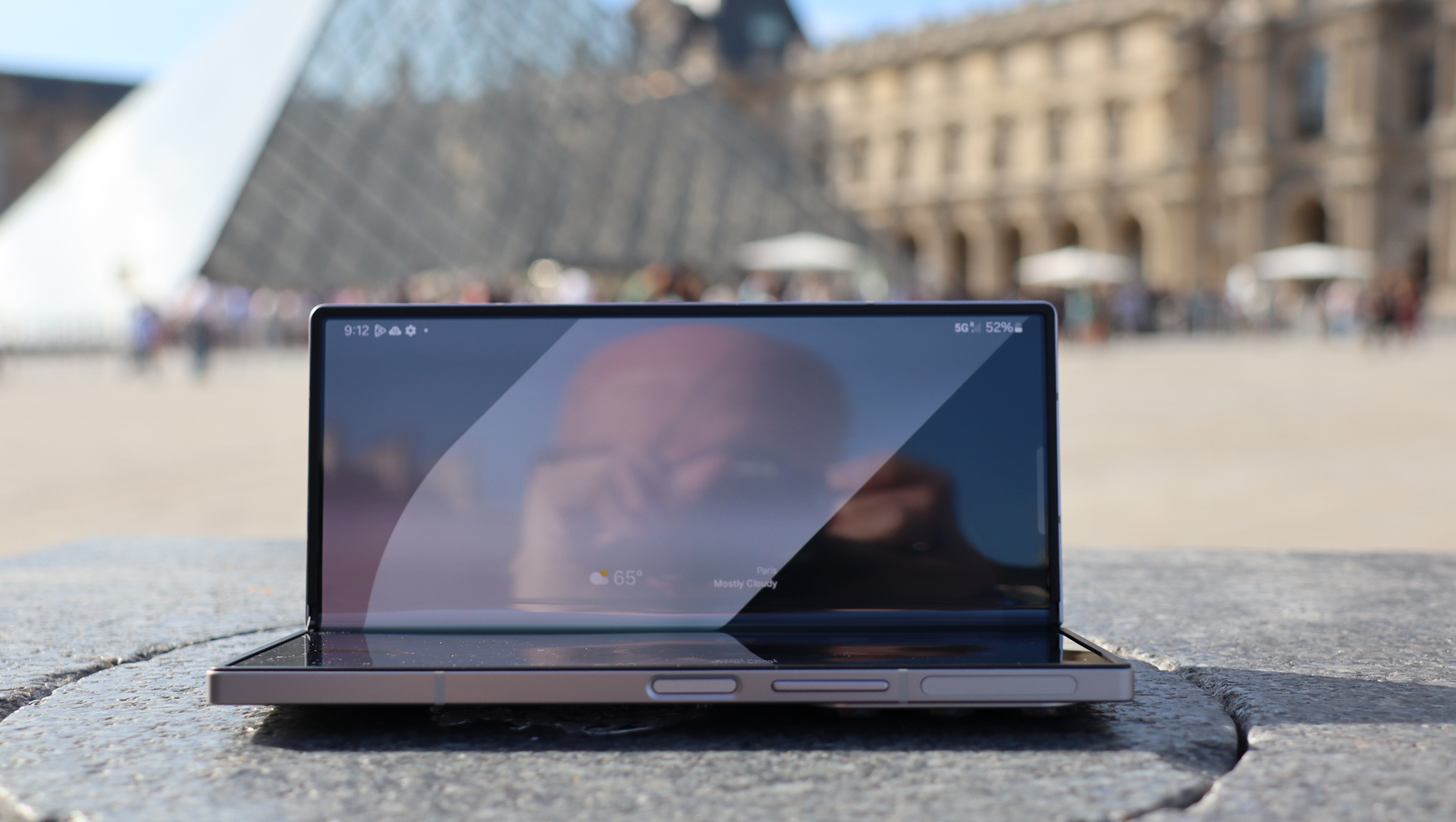
Over almost six years, Samsung has done all it could to strengthen its foldable phones and their moving parts. In the Galaxy Z Fold 6, it added more steel to the dual rail hinge and has more or less sealed it from the elements. The phone has an IP48 water resistance rating (1.5 meters of water for 30 minutes).
It's worth noting that the seal is not permanent and may lessen over the life of the Galaxy Z Fold 6. There is also no real dust resistance on this phone: the '4' in IP48 means the Galaxy Z Fold 6 can withstand large objects poking its hinges, but dust and anything under 1mm might cause trouble.
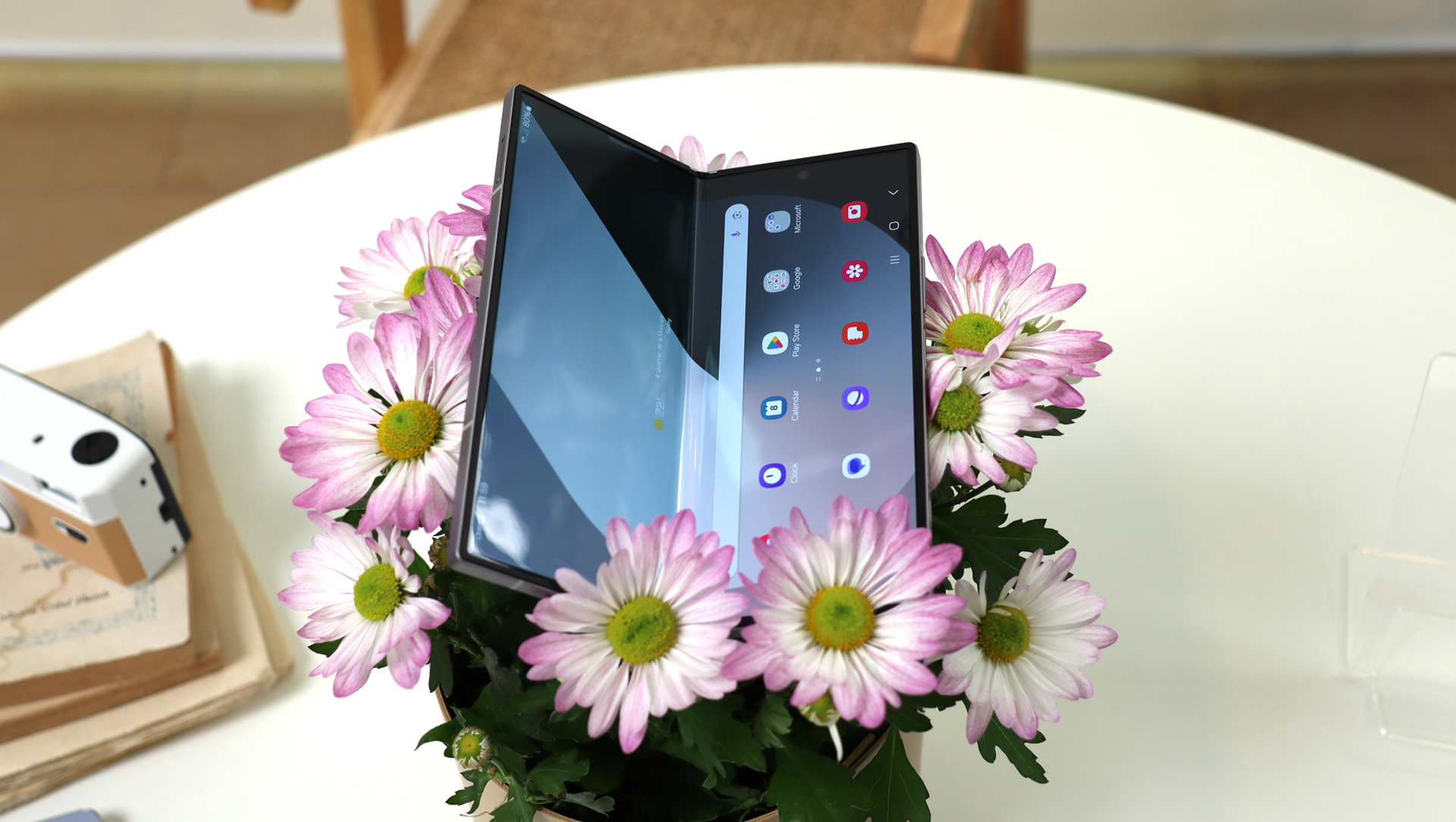
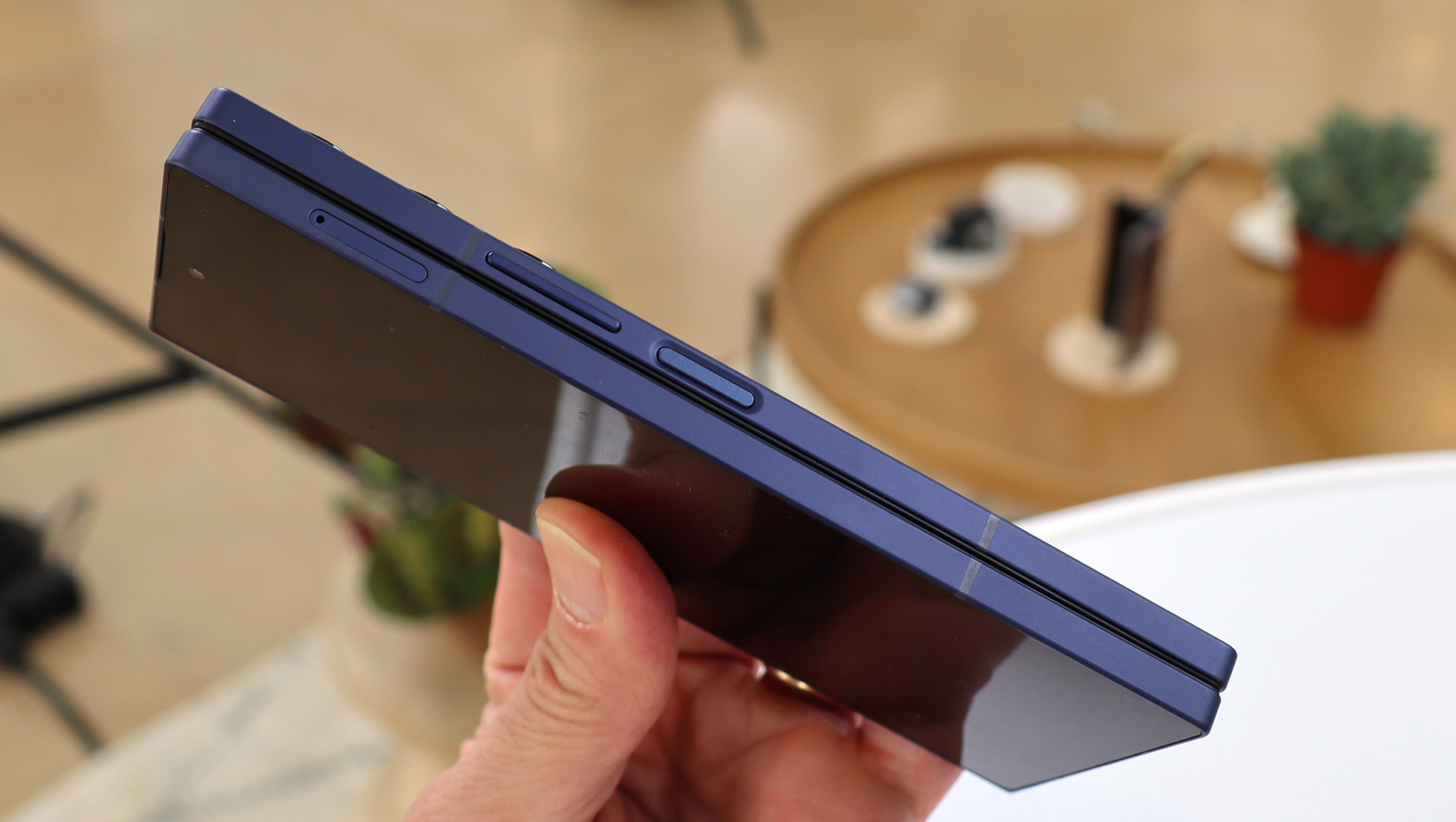
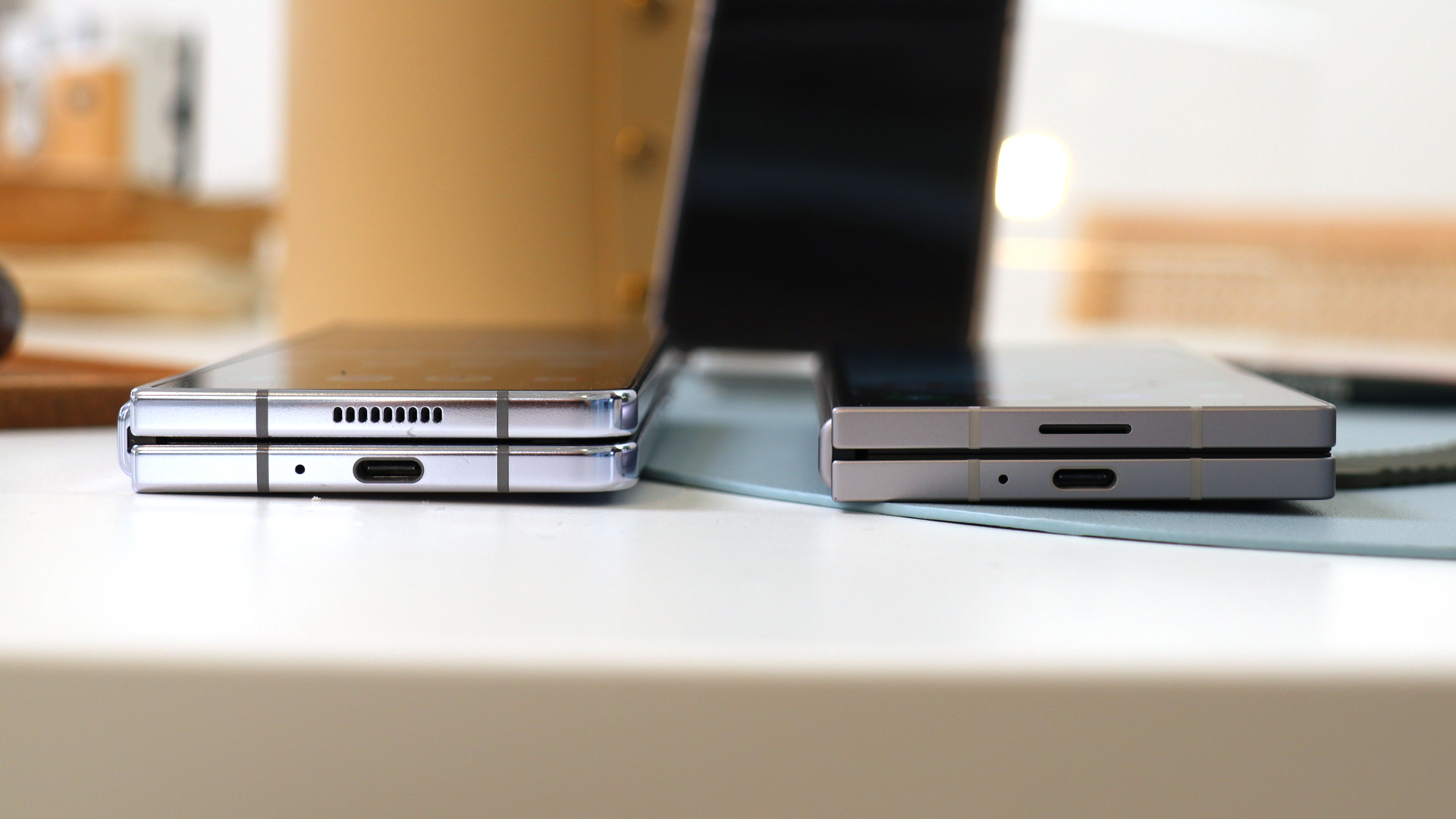
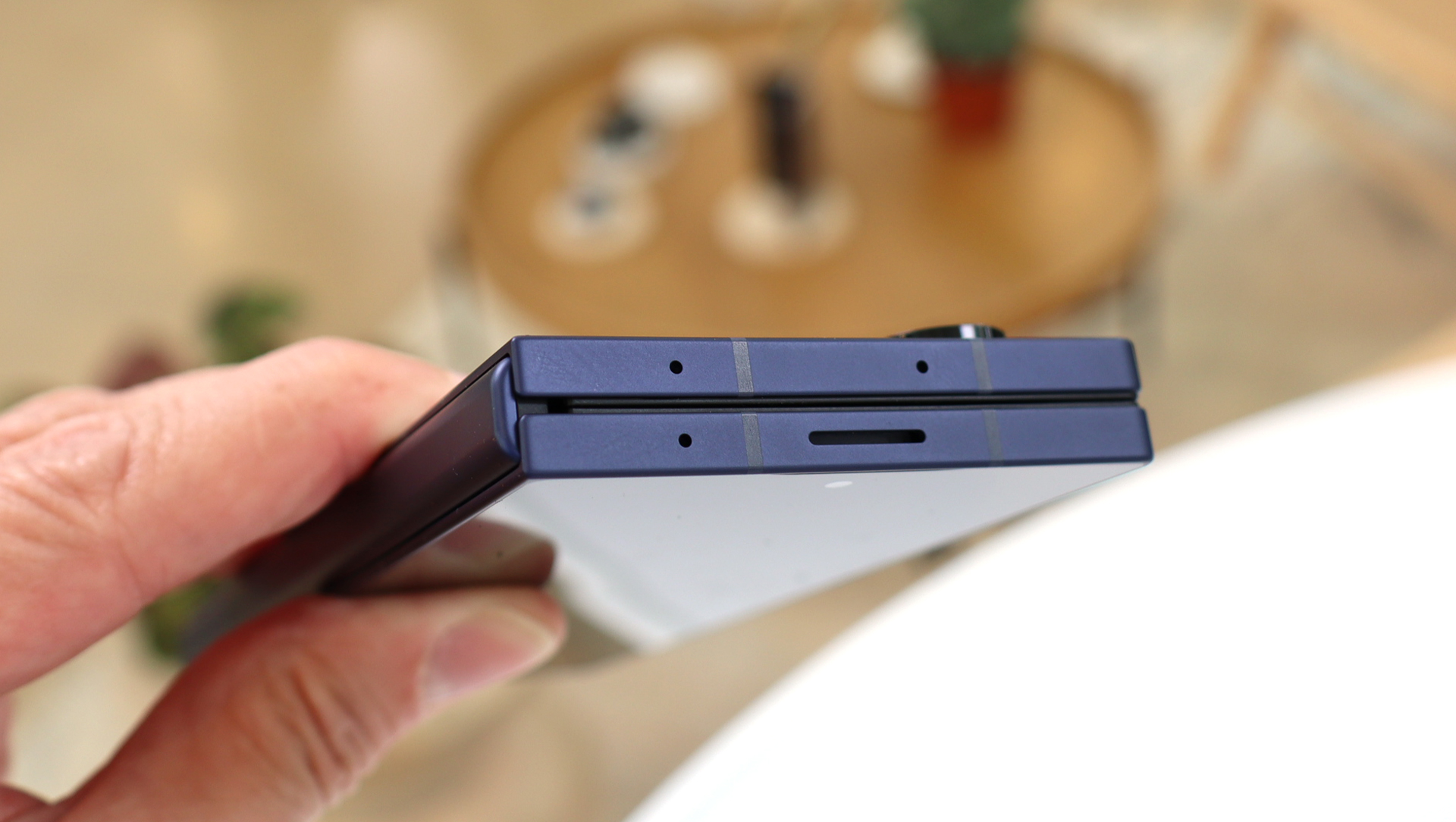
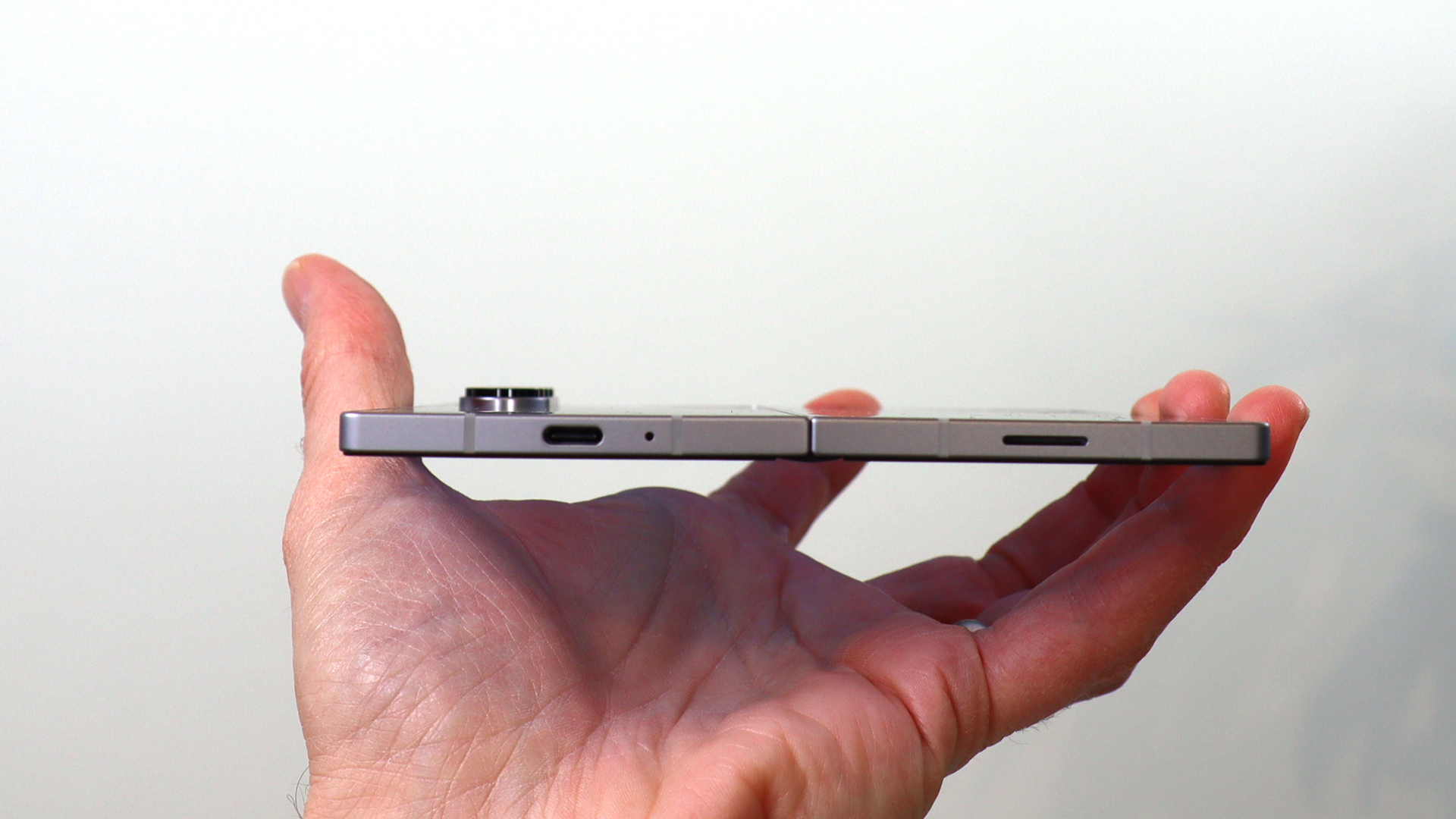
Samsung told me it added a new protective later to its now-thinner main screen. It's essentially like a non-Newtonian fluid that is flexible when you're gently moving it but toughens up instantly if it encounters a hard or sharp object. Of course, even though the new screen is tougher, you can't use the same S Pen as a Samsung Galaxy S24 Ultra or other flat Samsung phone or tablet; you must use the softer-nubbed S Pen for Fold lest you risk damaging the screen.
- Design score: 4.5 / 5

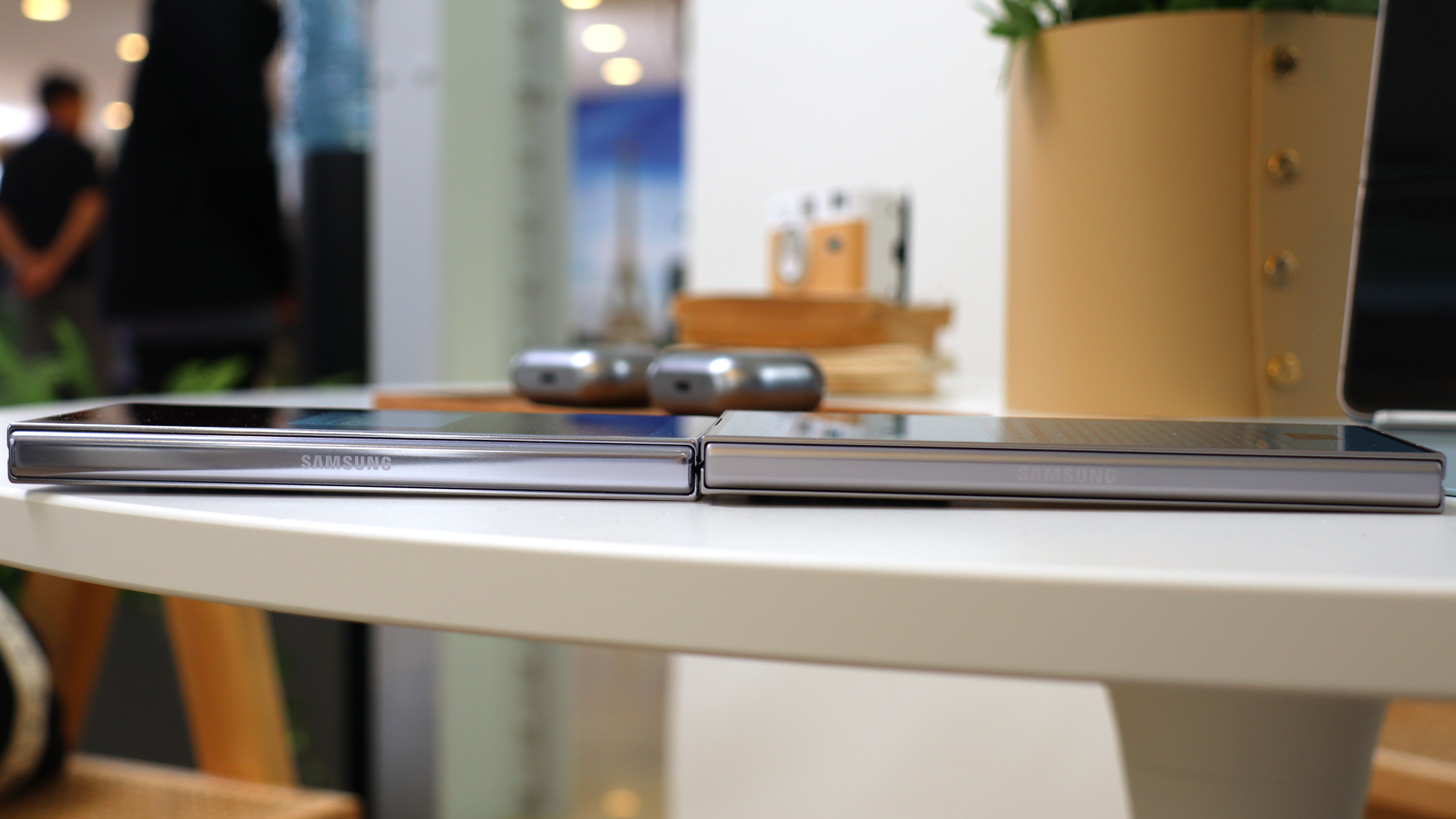
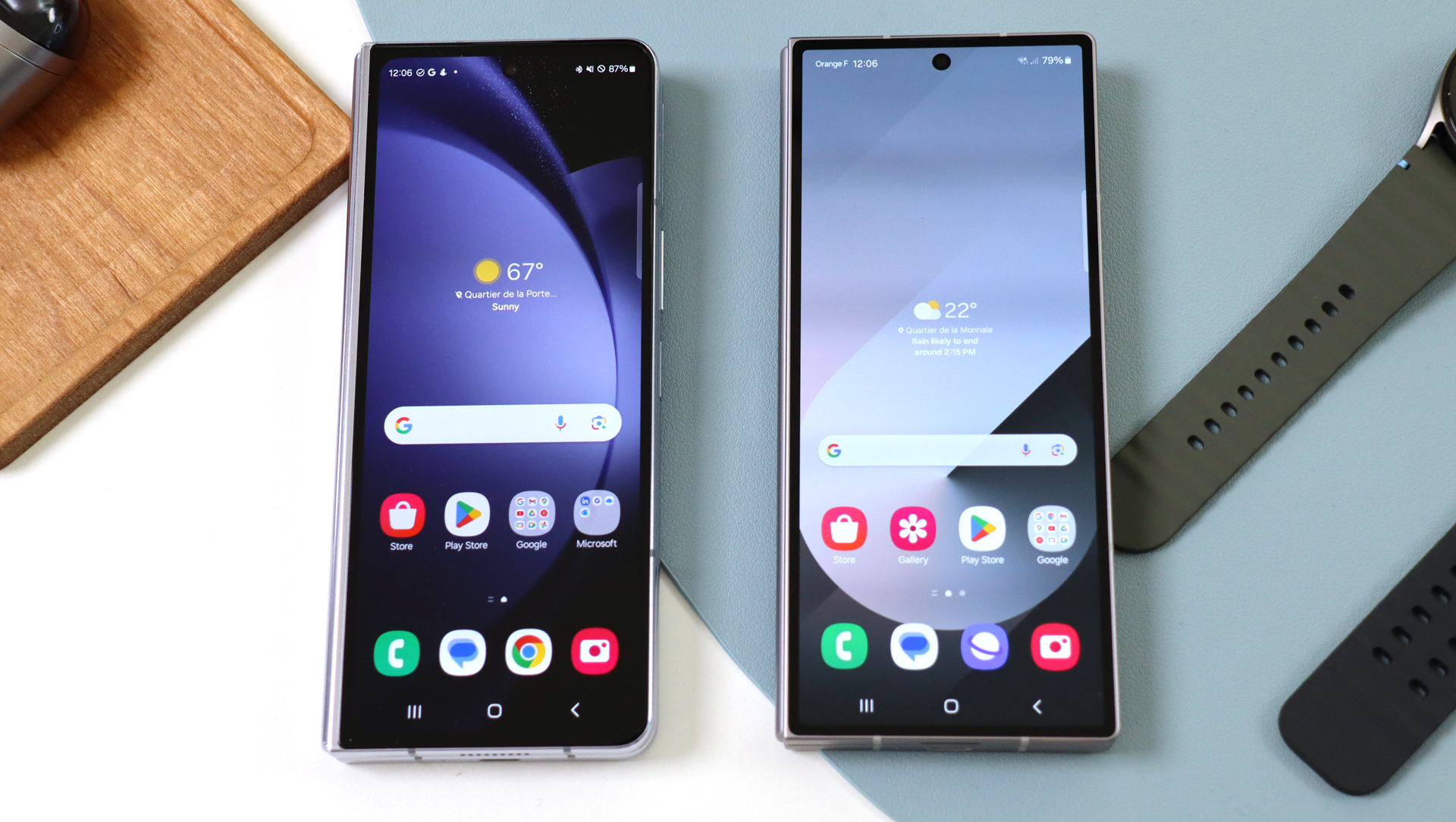
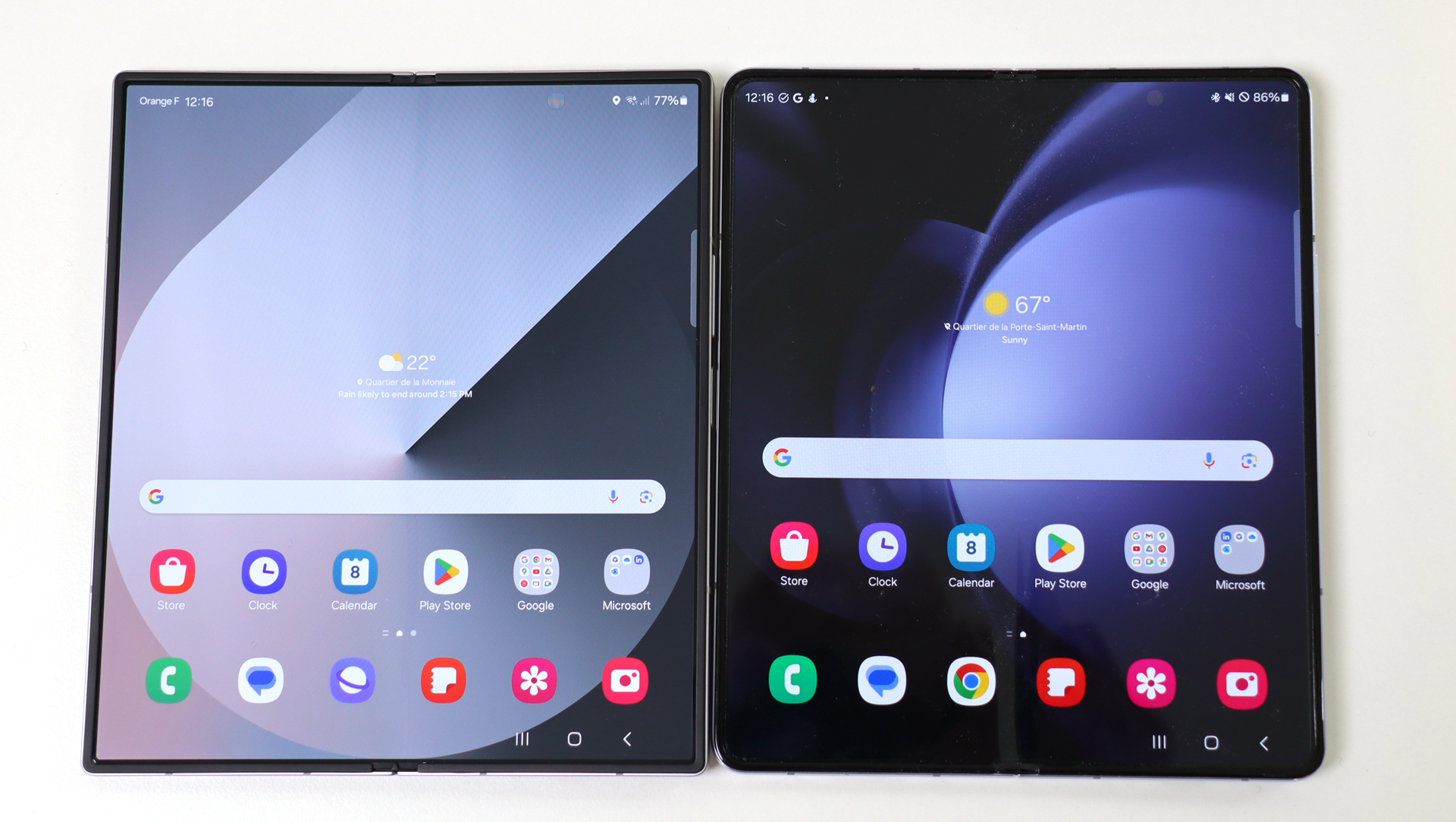
Samsung Galaxy Z Fold 6: display
- Larger displays
- Brighter main screen
- Full variable refresh rate for both
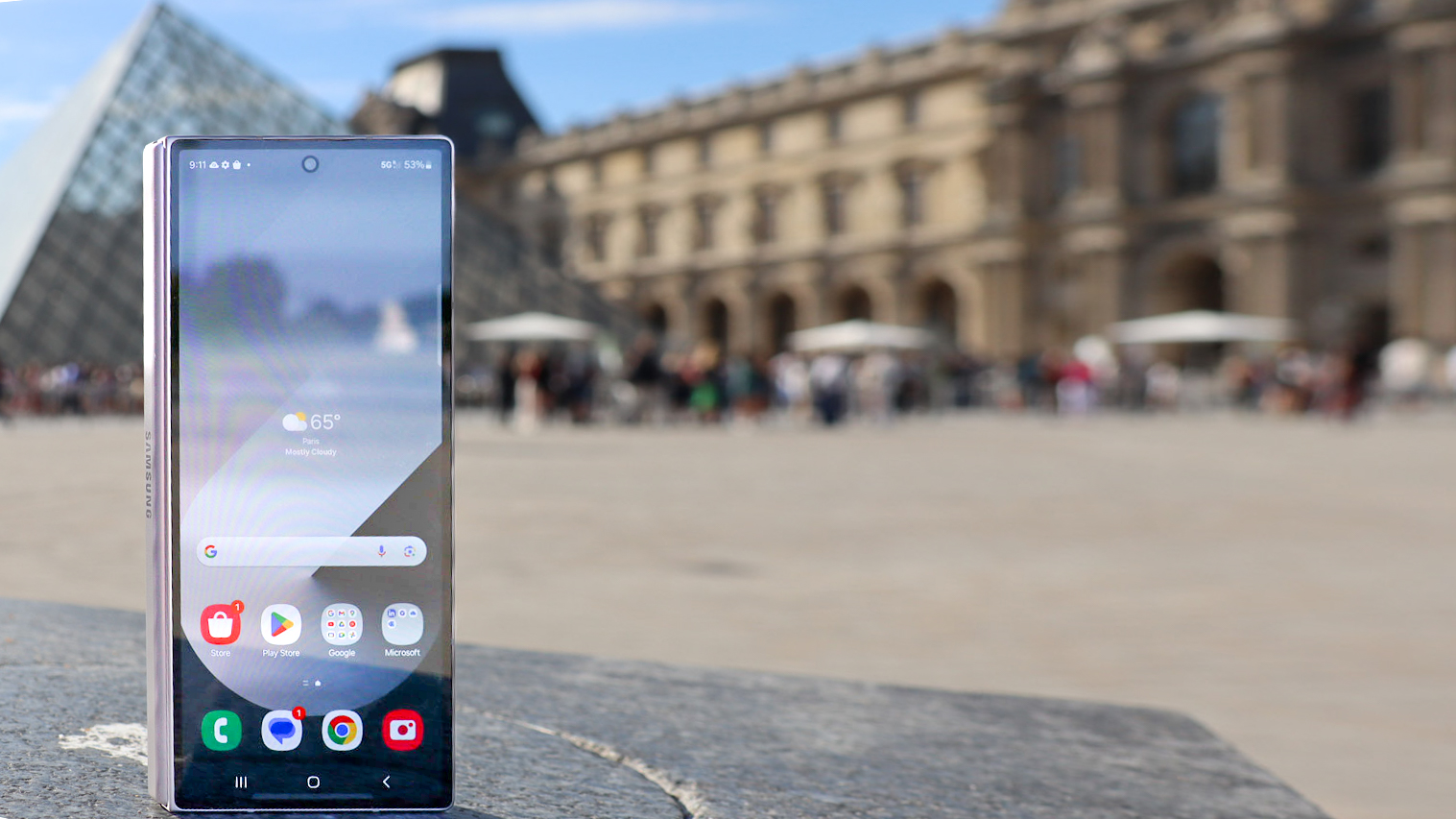
The 6.3-inch cover screen is 2376 x 968 pixels, with fully adaptive refresh rates from 1hz to 120hz. In general, I like using the cover screen since it isn't always practical to open up the phone and use the larger display. It's a nice little screen for web browsing, email, and TikTok scrolling. It's fine for texts and messaging, though I still don't relish typing longer messages on the too-cramped virtual keyboard. The screen is probably narrower than my iPhone 15 Pro Max by a solid half-inch.
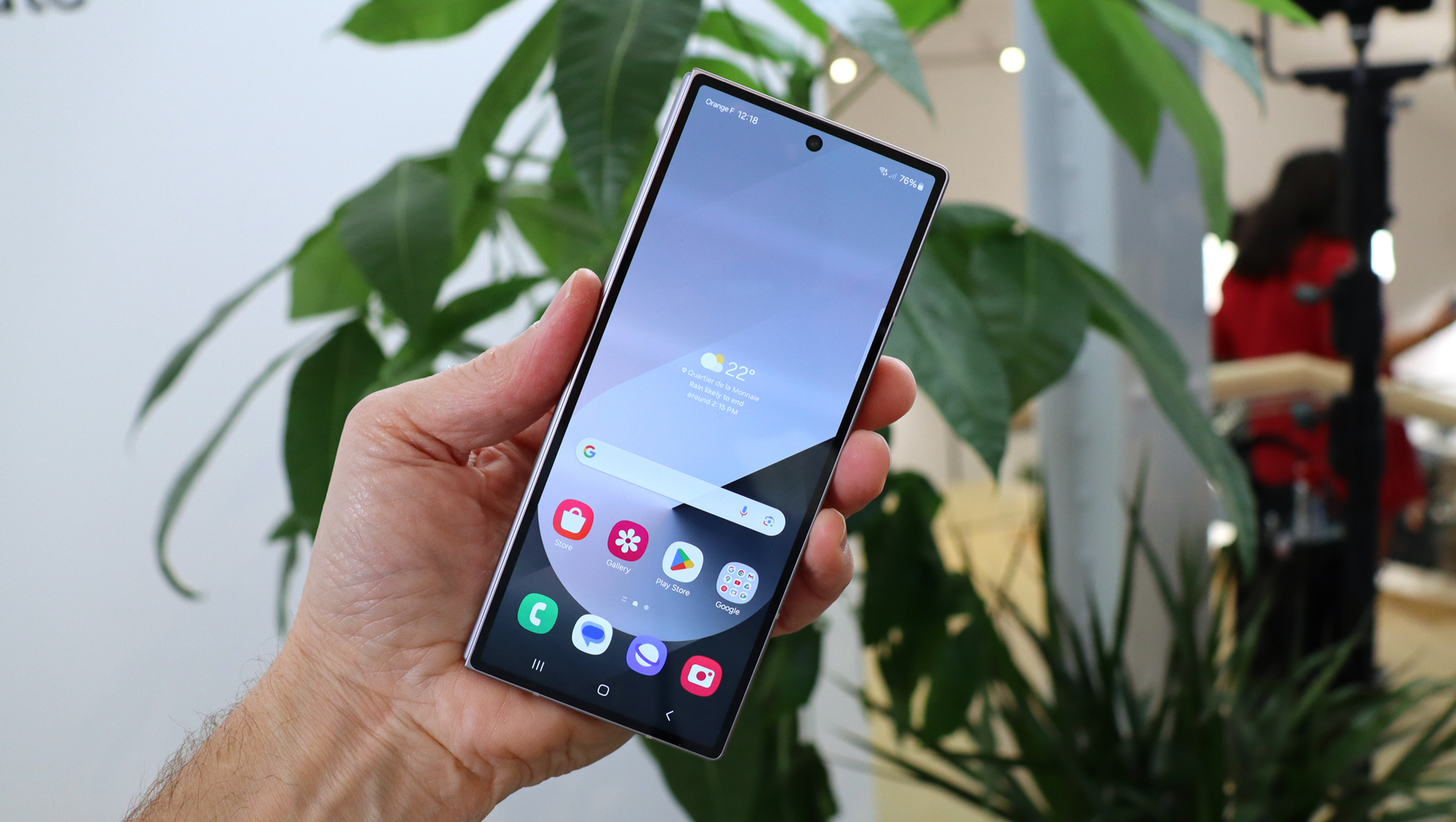
The inner 7.6-inch screen is 2160x1856 pixels, with a thin, flat bezel. It's a very bright screen (2,600 nits), with a crease that is less noticeable than on previous tablet foldable phones. Don't get me wrong, you can still feel and see the crease, but Samsung has done solid work reducing that little eyesore so that it's getting closer to being unnoticeable.
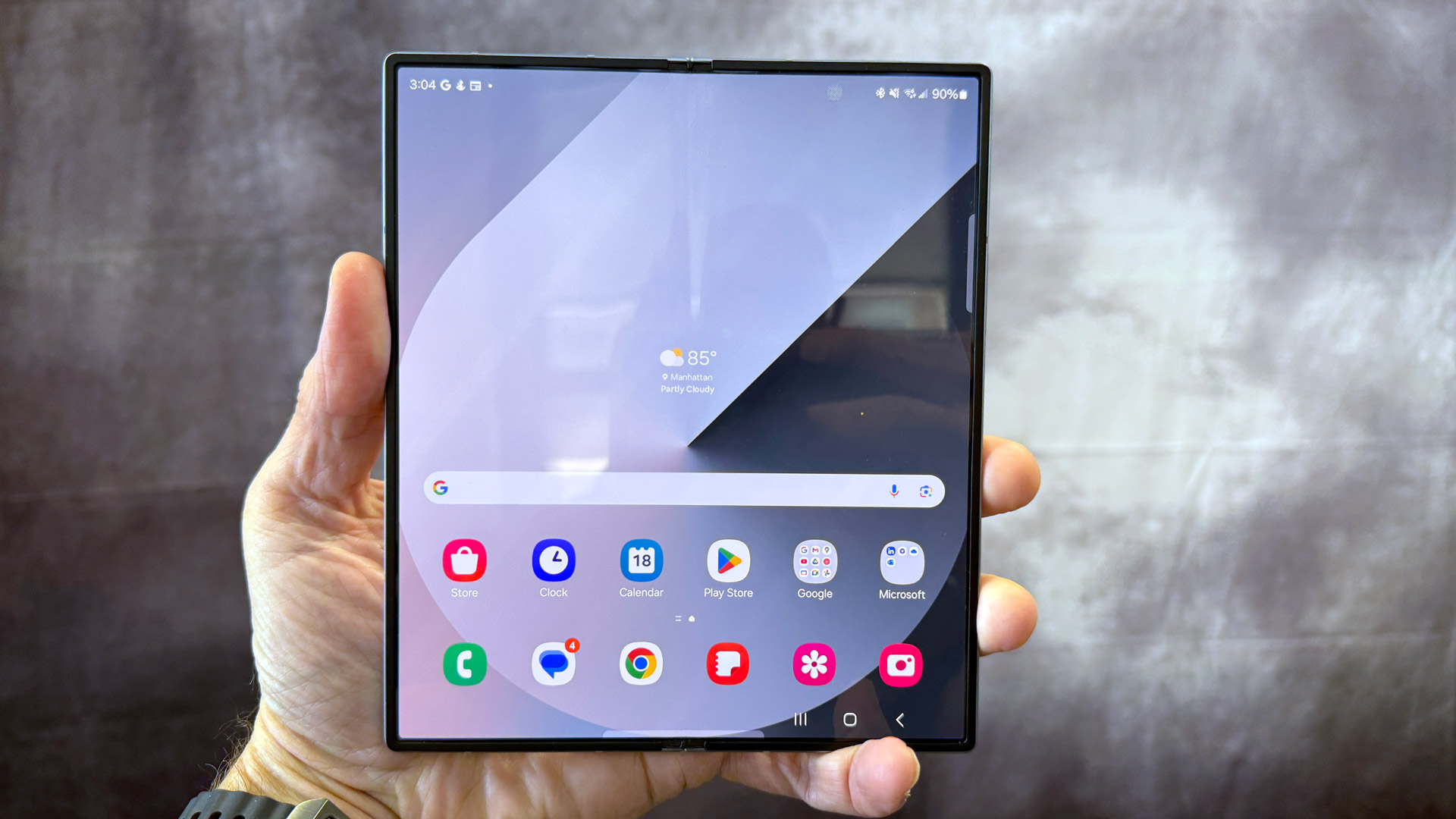
Visually, the Galaxy Z Fold 6 has a lovely, colorful, and contrast-rich tablet display, perfect for virtually any task. I enjoyed watching Netflix and Max videos as much as I liked playing games like Call of Duty: Mobile and Asphalt 9. It's great for browsing websites and long articles. In tablet mode, the Z Fold 6 is very comfortable to hold.
In Flex mode, which is what Samsung calls it when you fold the screen 90 degrees and set the Galaxy Z Fold on a flat surface, the display is useful for video watching and video calls, though I didn't like typing on it.
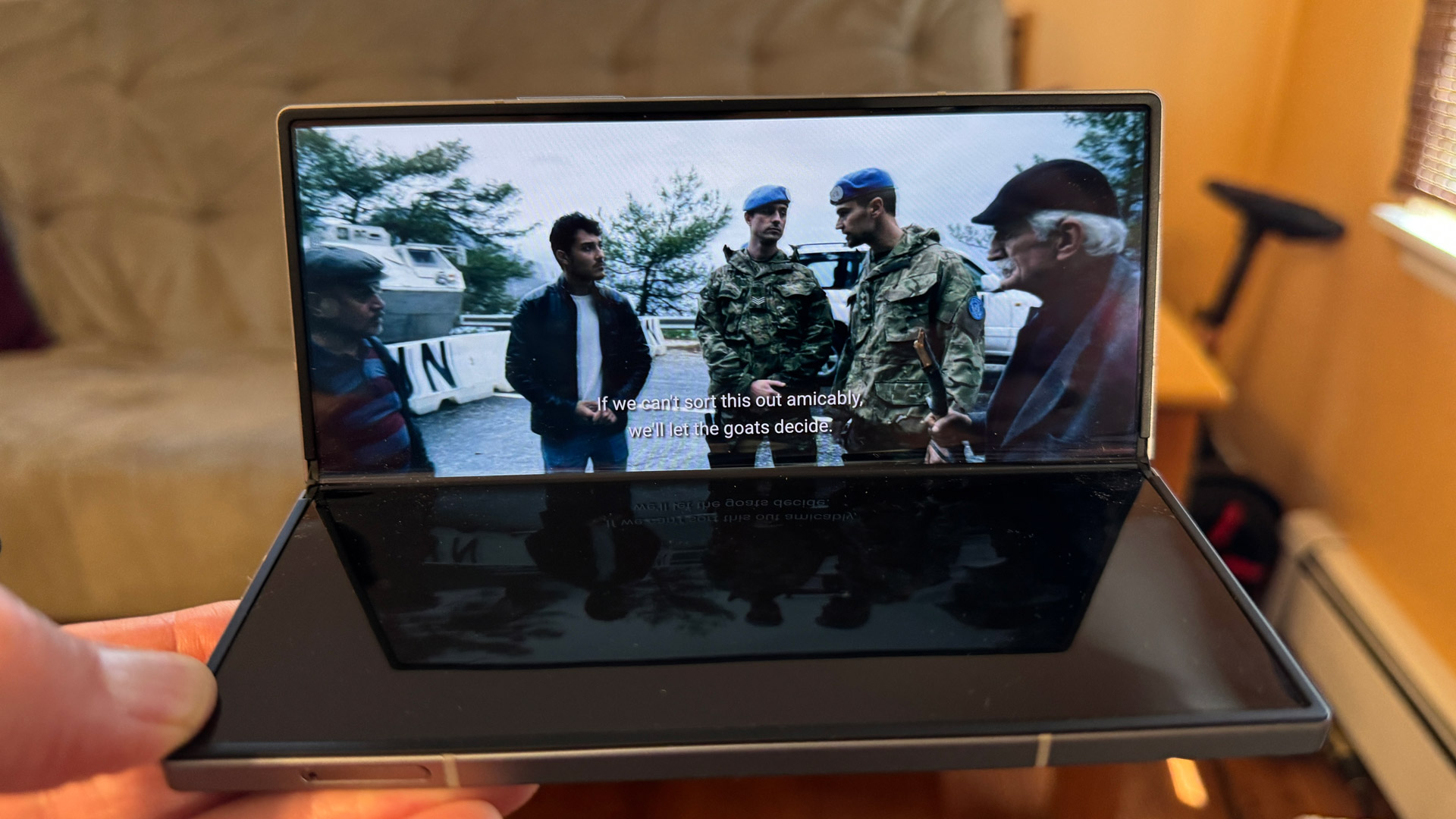
- Display score: 4.5/5
Samsung Galaxy Z Fold 6: cameras
- Quality cameras deliver excellent images
- Not enough optical zoom
- Expected bigger updates on sensors
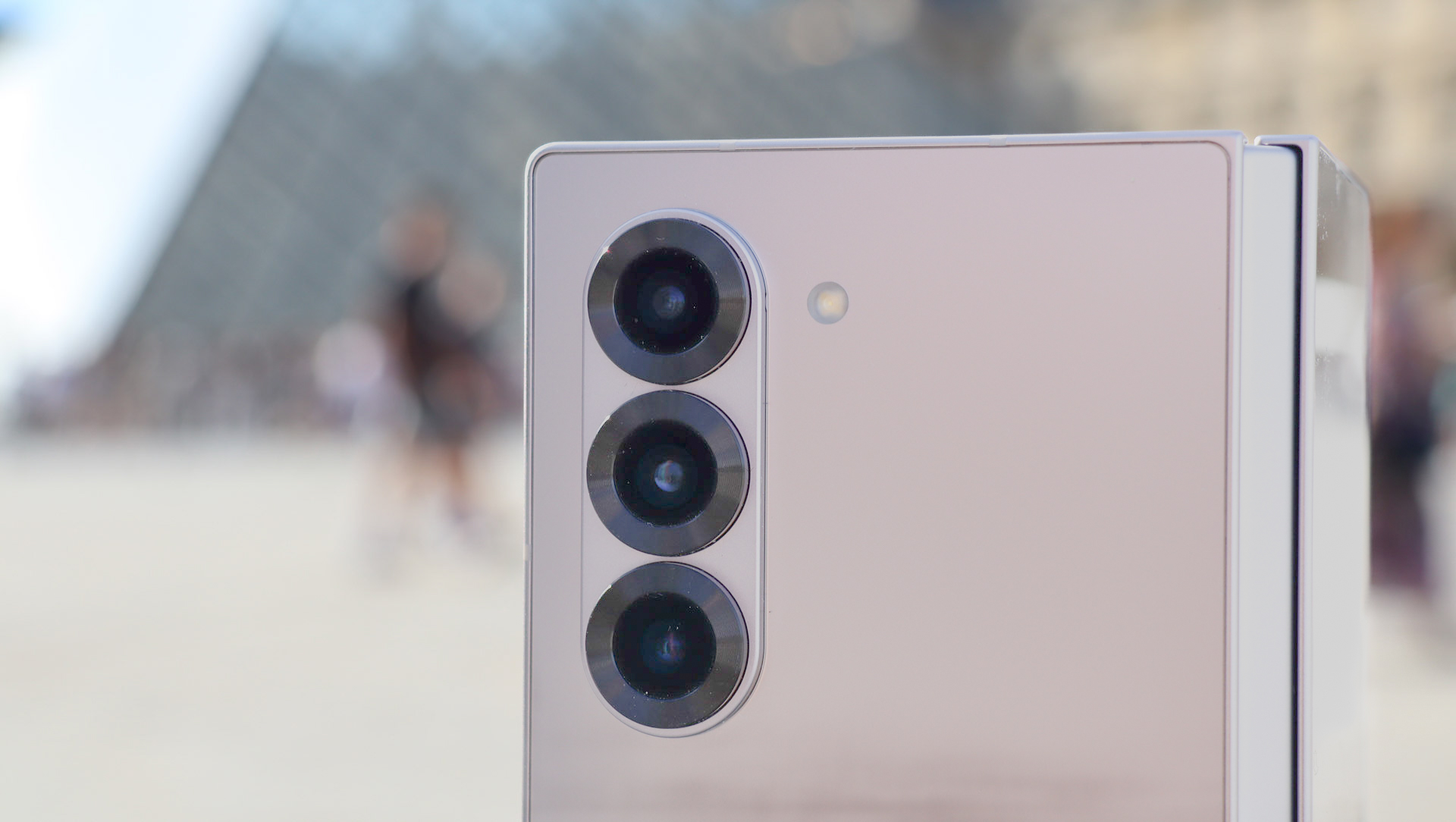
Smartphones look more and more alike, so manufacturers differentiate their designs with unusual and sometimes ill-conceived camera arrays. If I were in charge, I'd aim for subtlety, or at least what Samsung has done with the Galaxy Z Fold 6: polish and professionalism. The three-camera array on the back is prominent, but I like how each lens looks a bit like a prosumer camera lens.
That's the good news.
The not so good news is that Samsung didn't do much to upgrade this array, and the cameras on the last Galaxy Z Fold 5 were a disappointment. This is essentially the same camera specs as you'll find on the Samsung Galaxy S24. Here's how the three cameras break down:
- 50MP wide-angle f/1.8
- 12MP ultrawide f/2.2 FoV 123-degrees
- 10MP 3X optical zoom f/2.4
It's a good set of cameras, and I took dozens of lovely photos in Paris under all sorts of conditions. Colors and sharpness are good across the board. Low-light performance is generally fine. Macro photography is nonexistent. Portrait mode image of people and pets was gorgeous.
I'm especially impressed with the color quality and details. This is clearly due to Samsung's significantly updated ProVisual Engine, which is the computational bit of Samsung's smartphone photography pipeline. It just gets better and better at understanding reality. That said, Samsung still makes skies too blue.
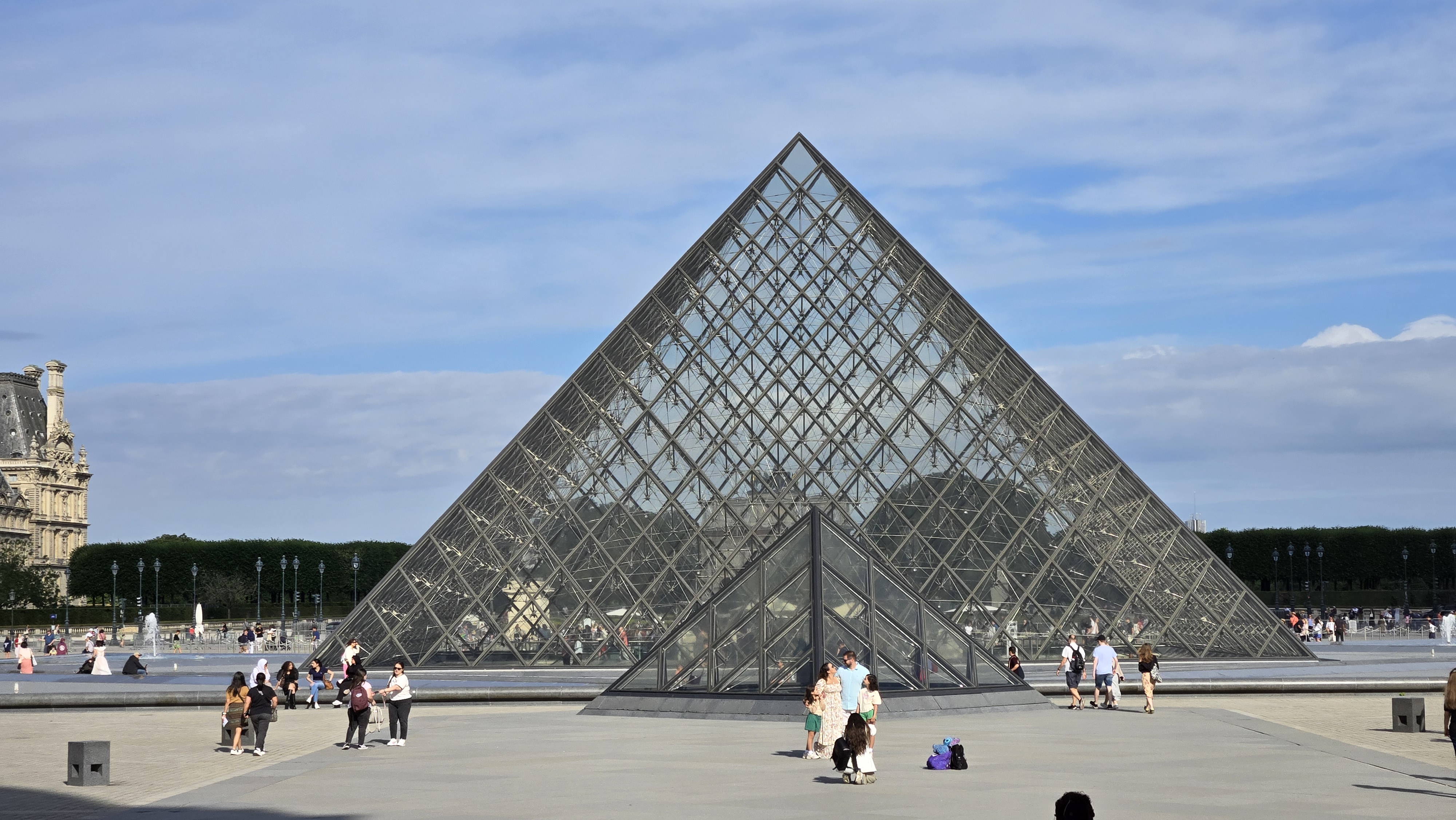
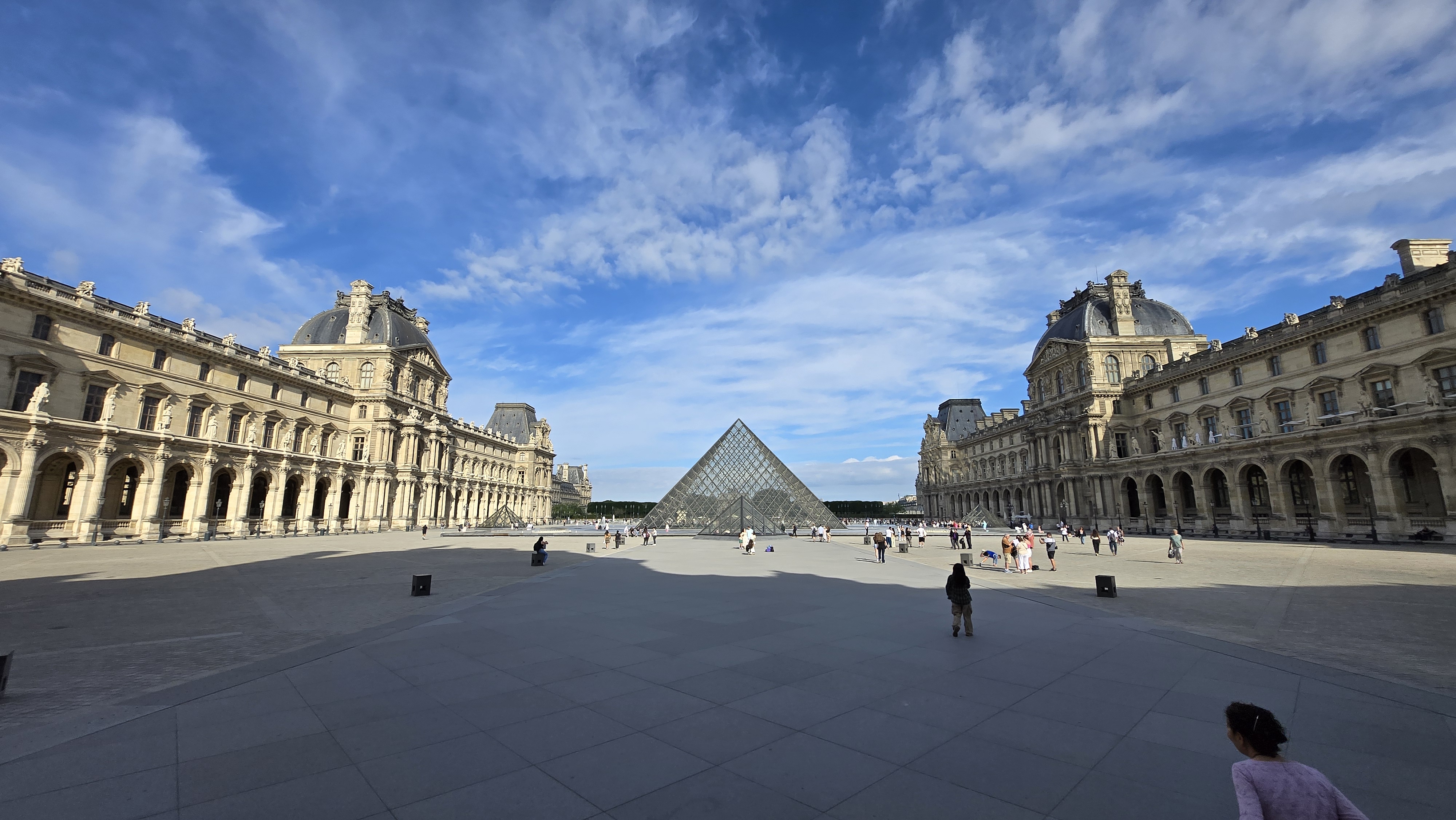
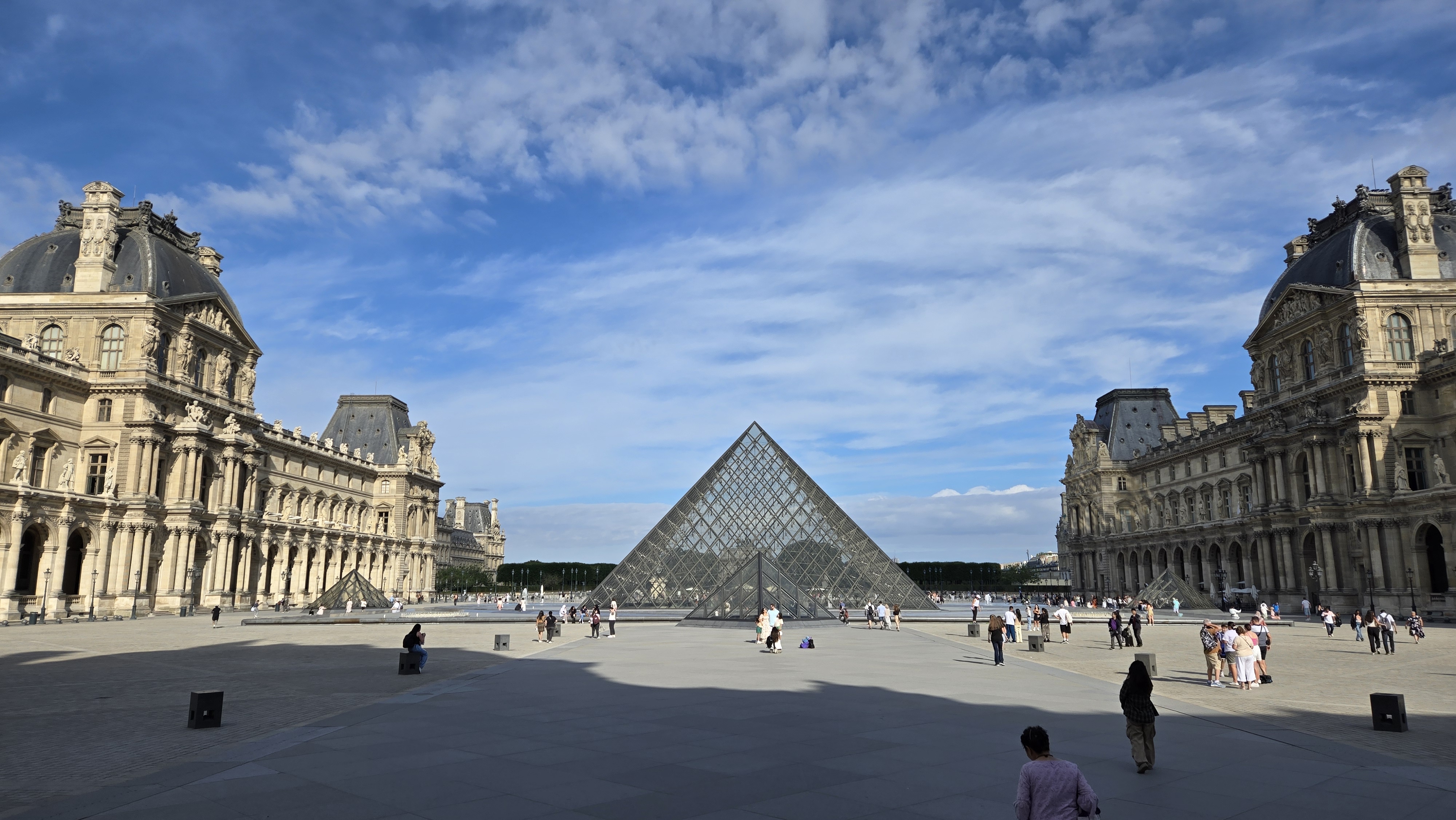

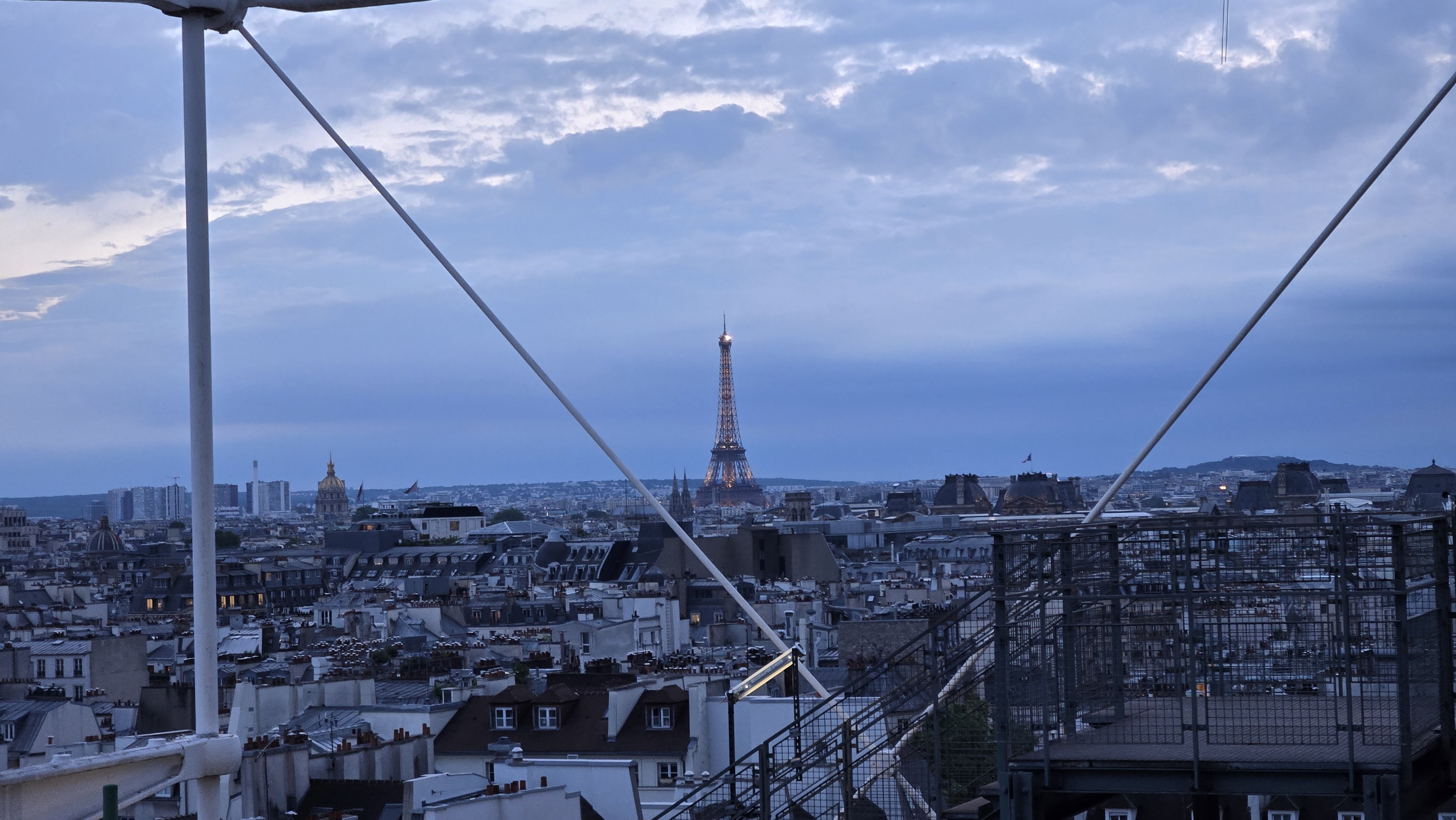
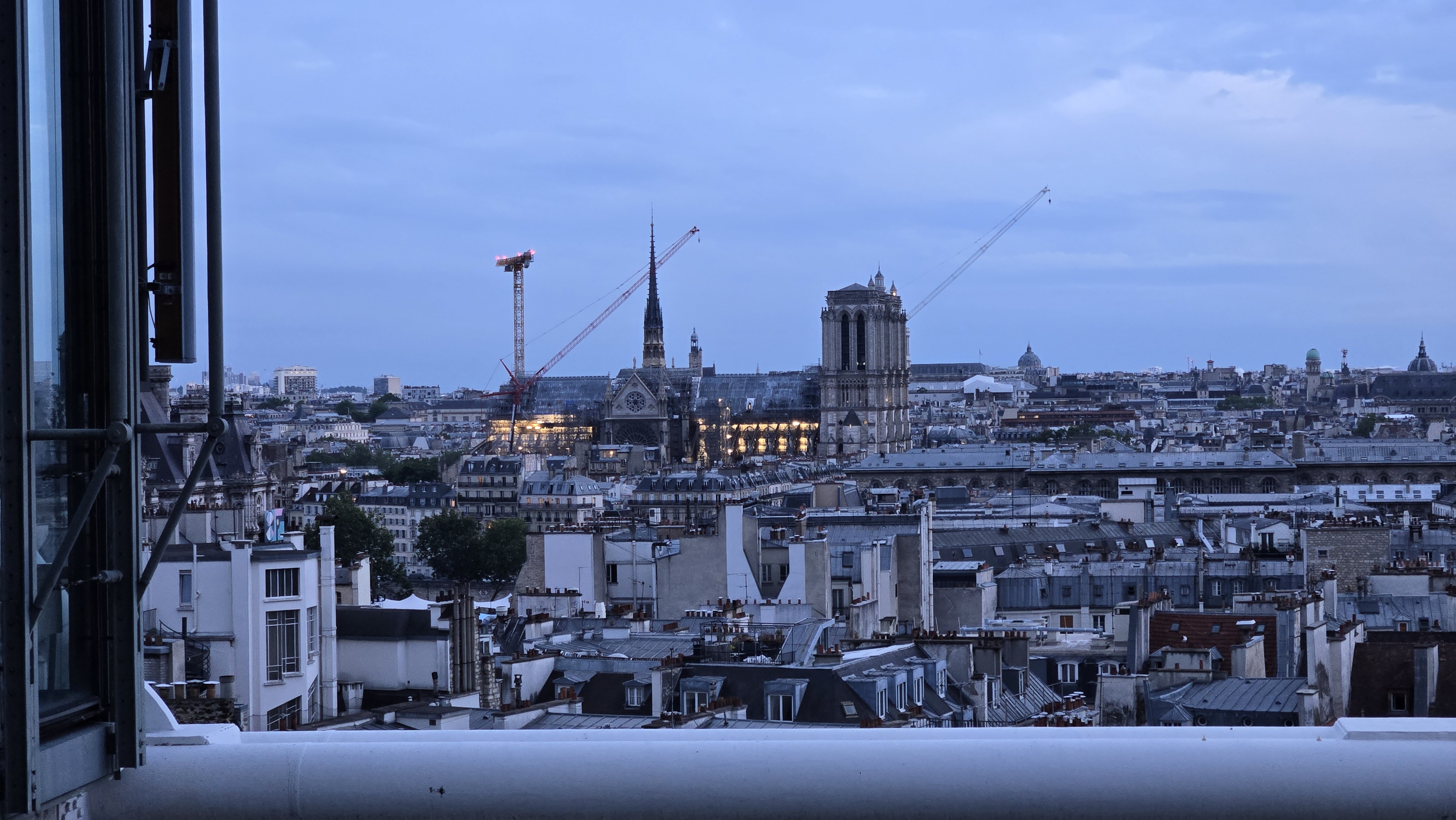
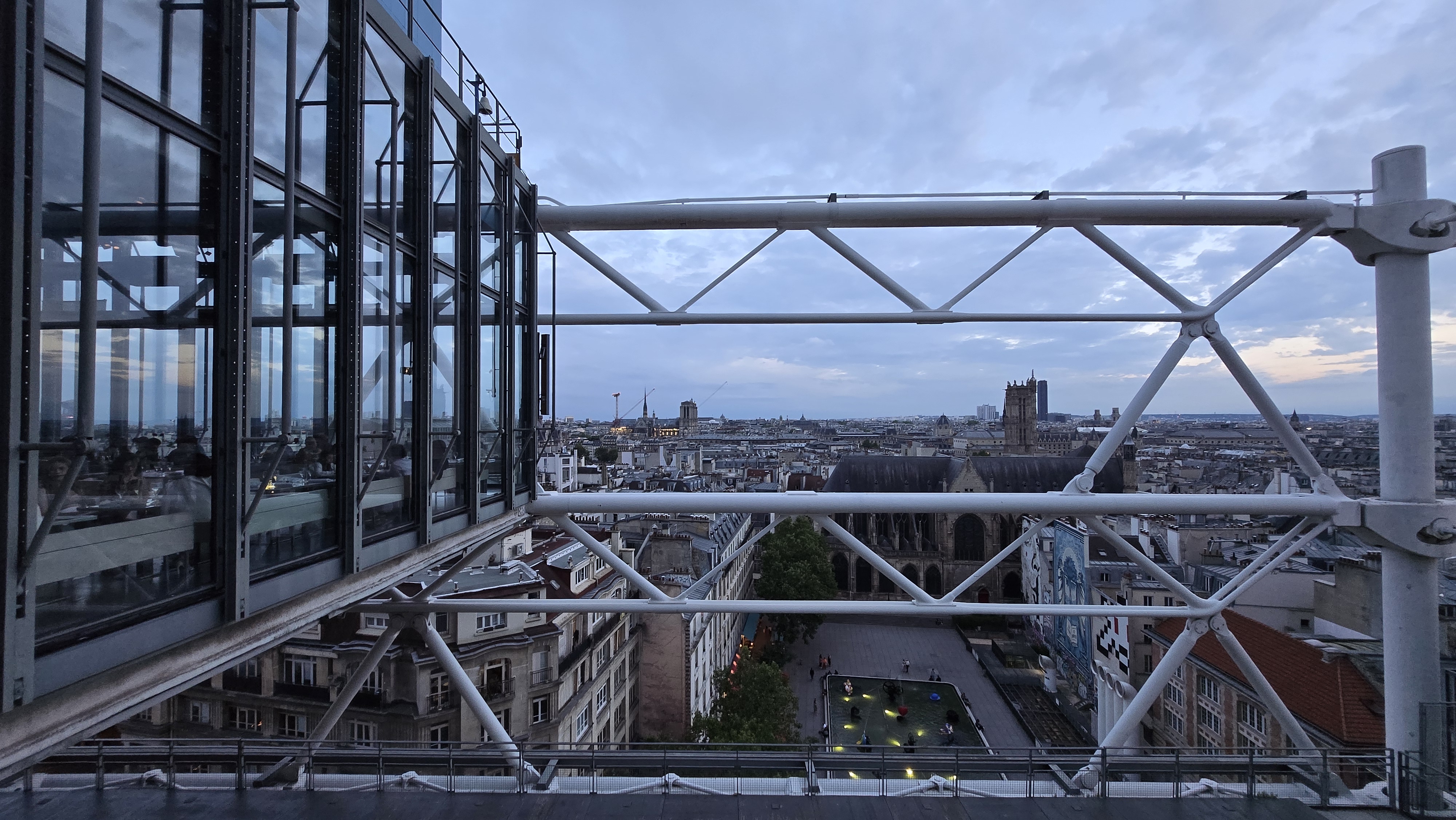
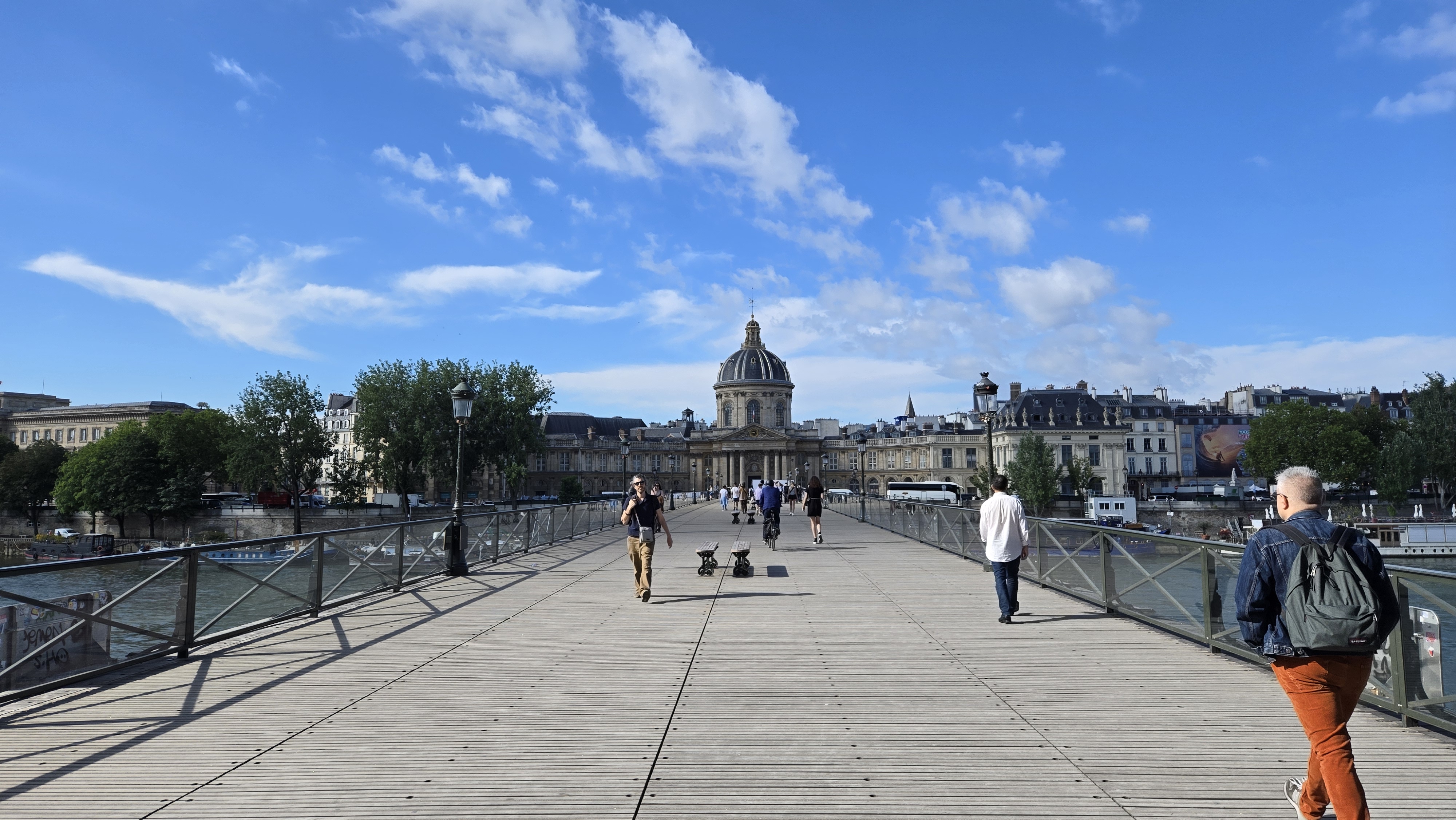

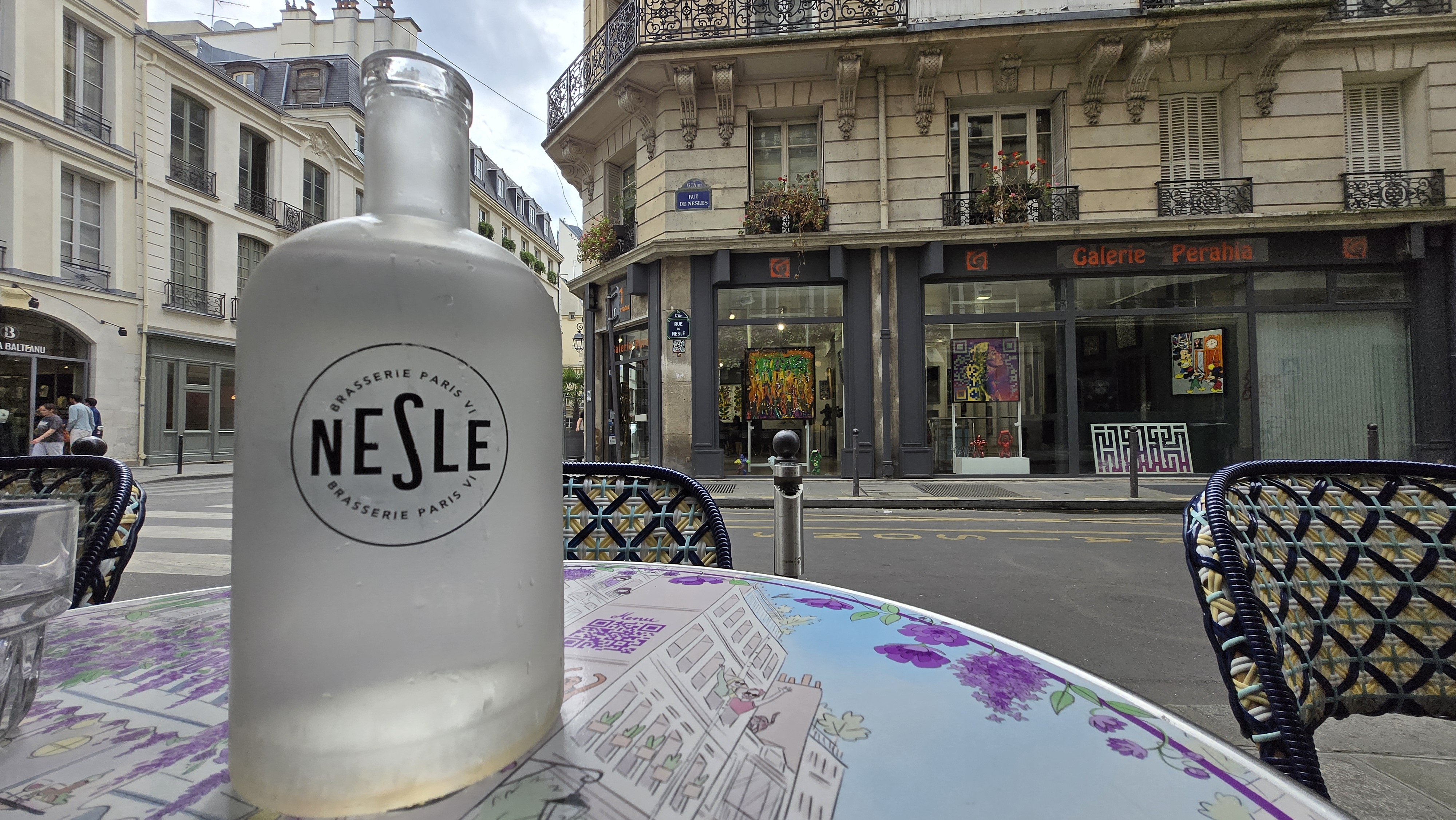
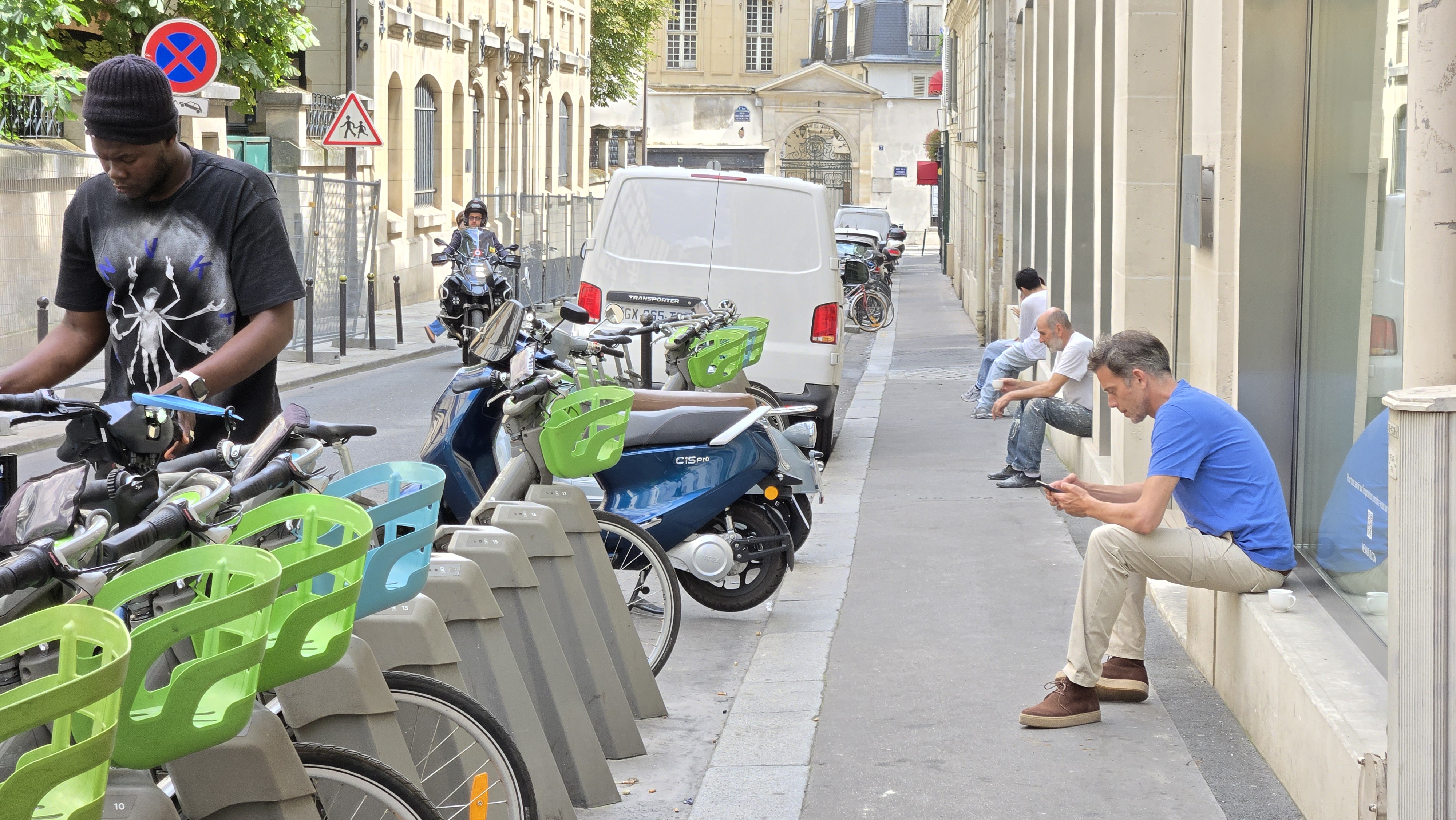

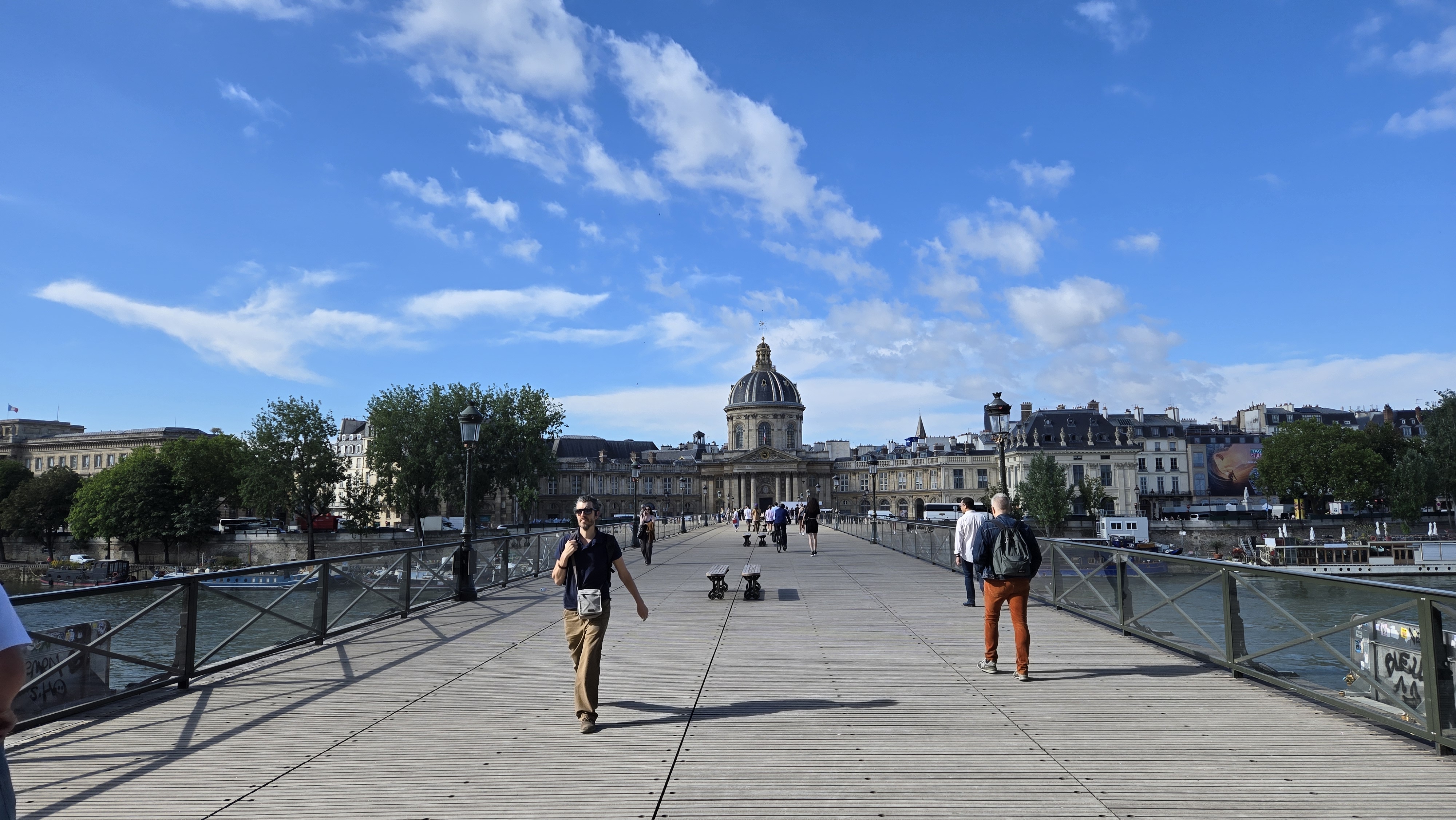


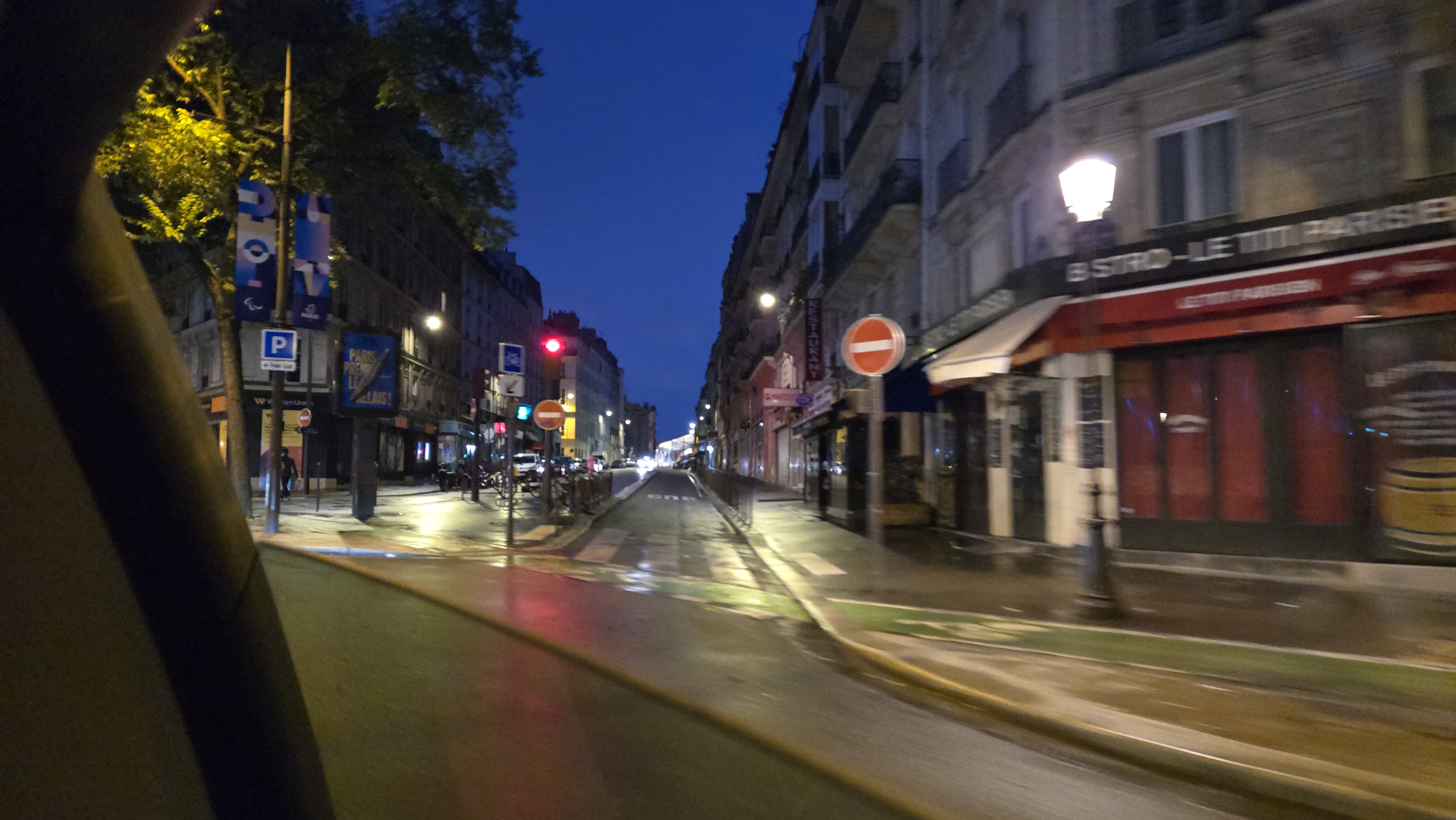
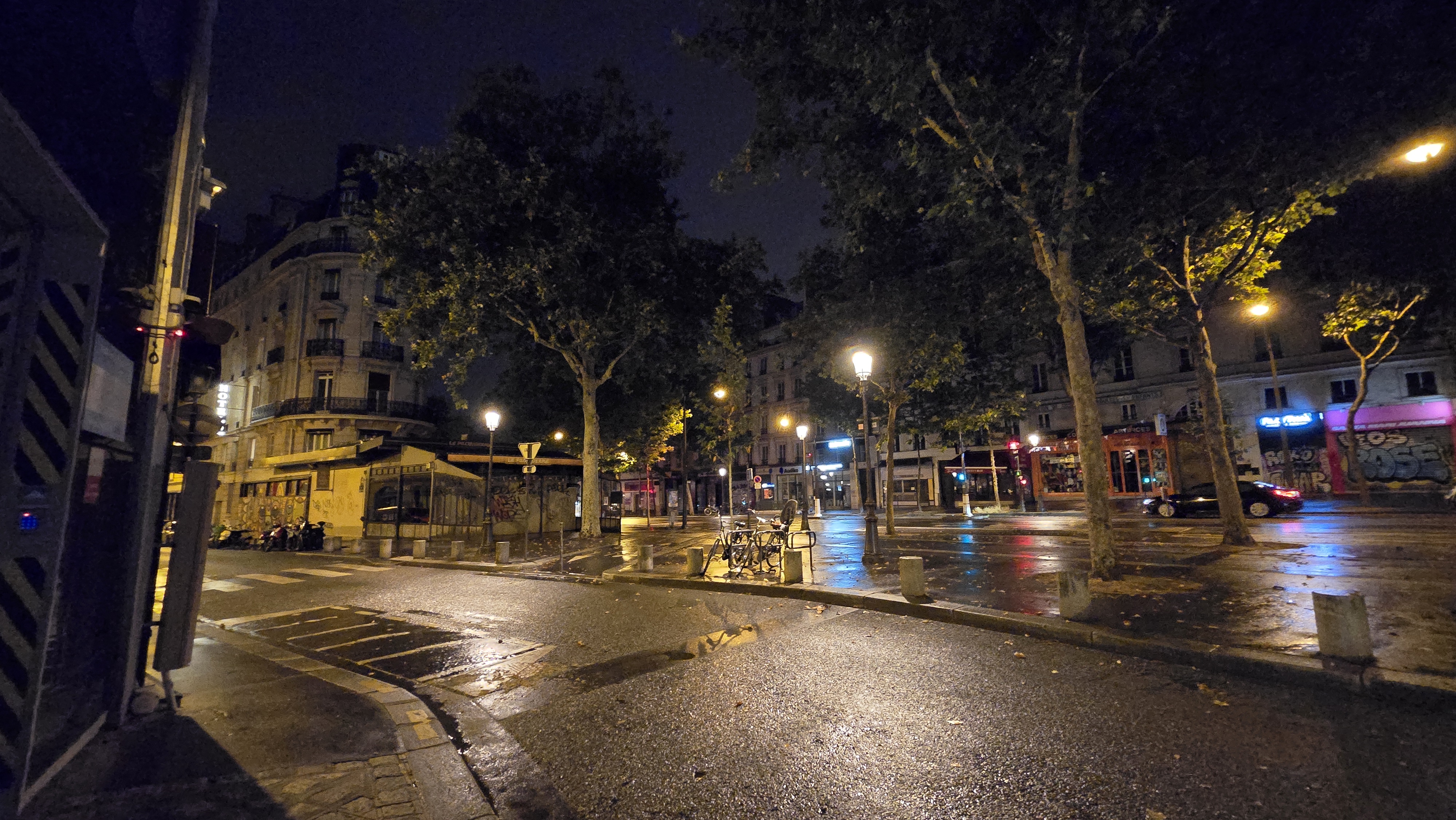
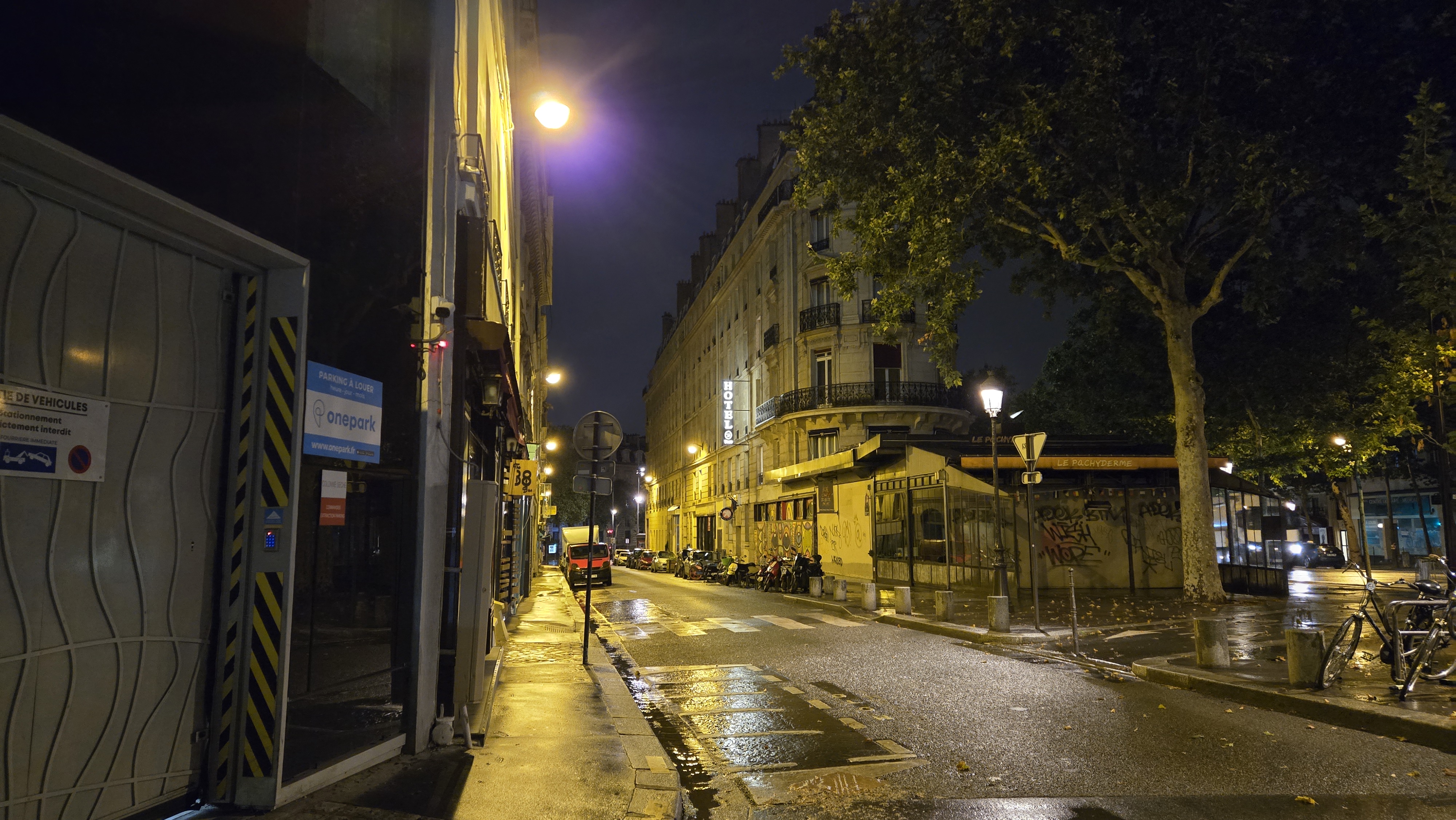
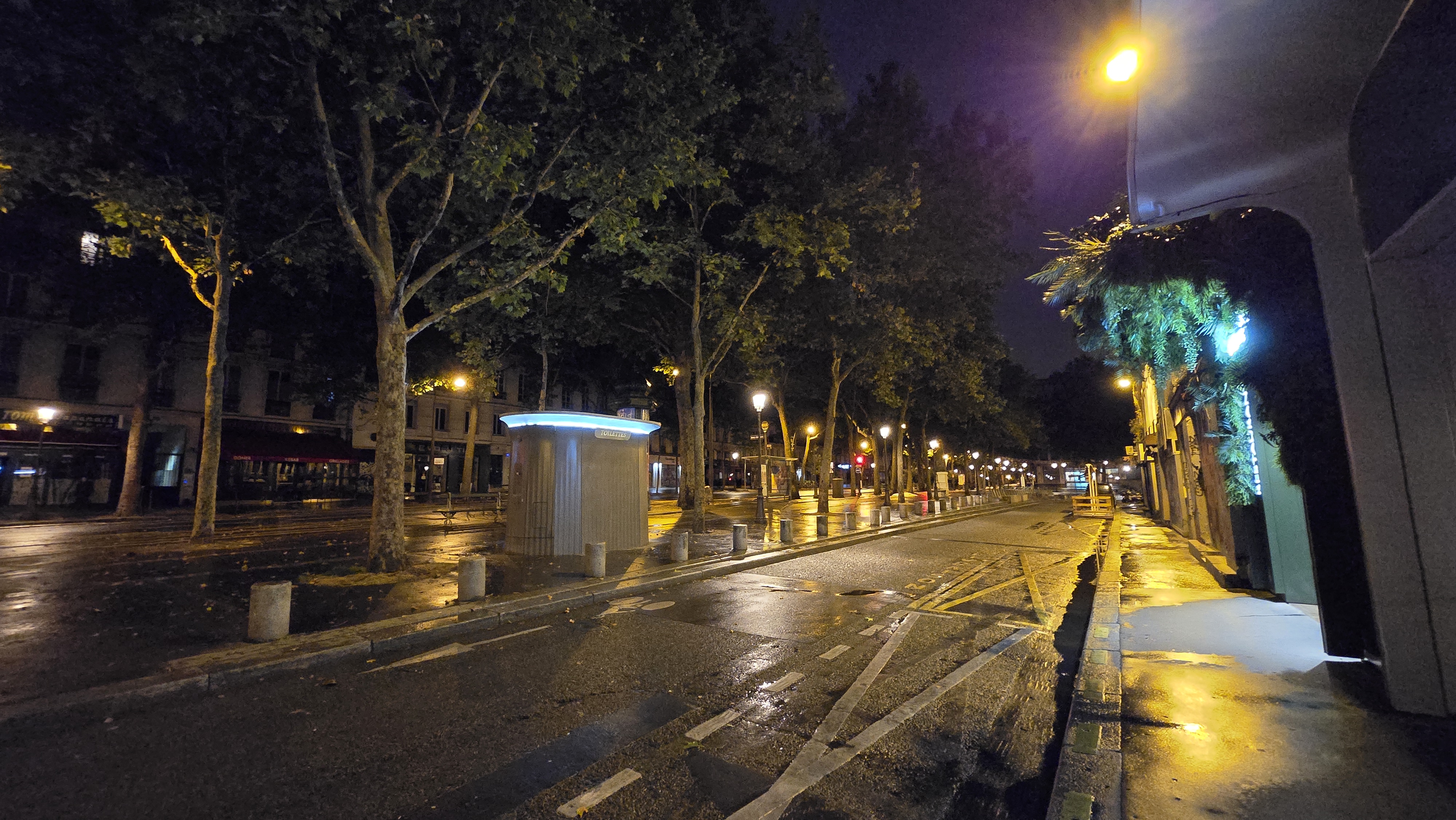
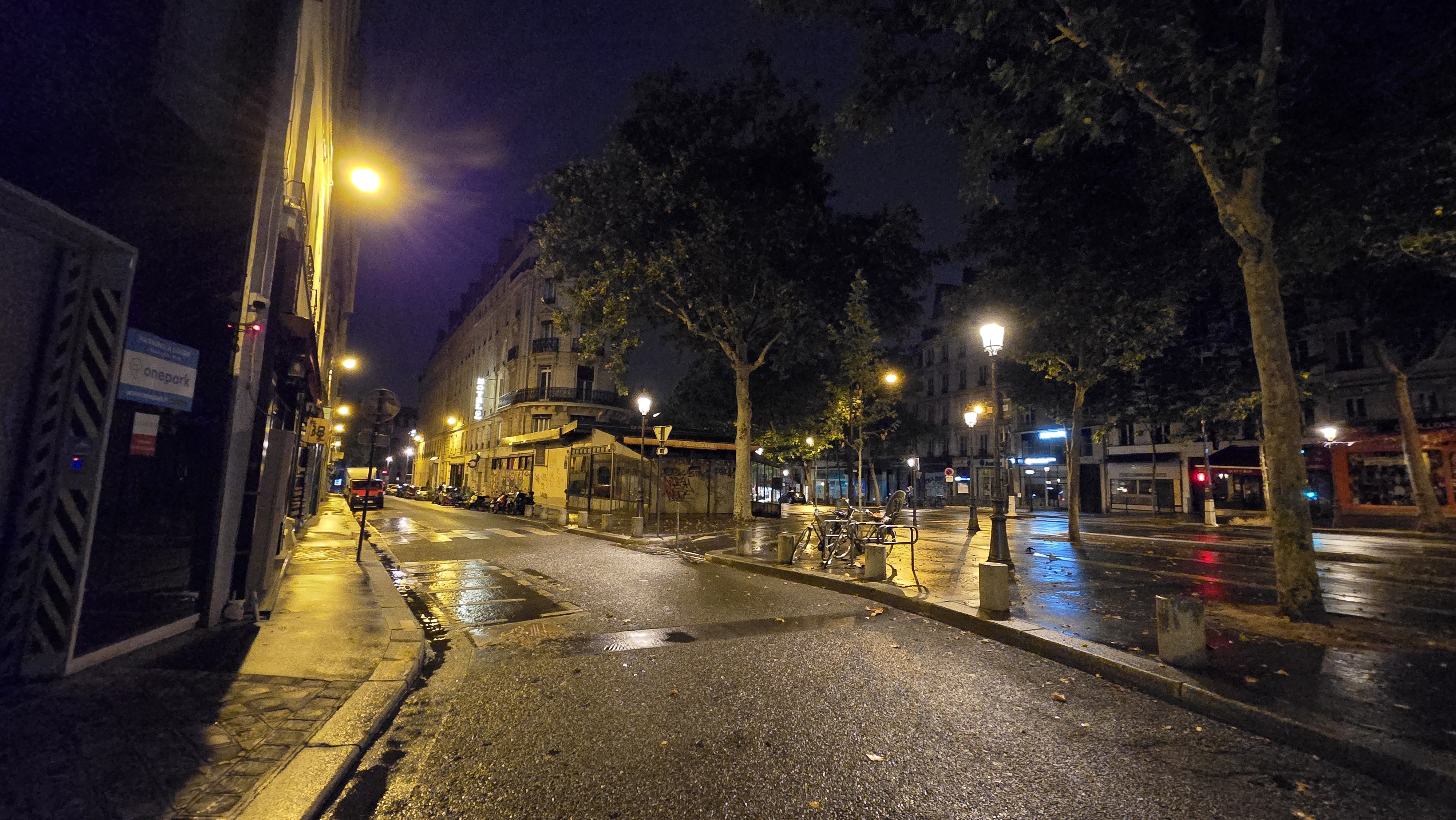
I'm frustrated that Samsung only decided to put a 3X optical zoom and a 50MP sensor on the main camera of its flagship foldable. This seems like a mistake. I would've expected at least 5X optical zoom and a 200MP sensor to match what's on its other flagship device the Galaxy S 24 Ultra.
Yes, the Z Fold 6 offers 30X 'space zoom,' but that's a digital trick, not optical zoom, and even Samsung tends to call such captures "images" instead of photos. Look, this is a nearly $2,000 / £2,000 / AU $3,000 smartphone (with two screens, of course) and I expect nothing but the best Samsung has to offer in every aspect.
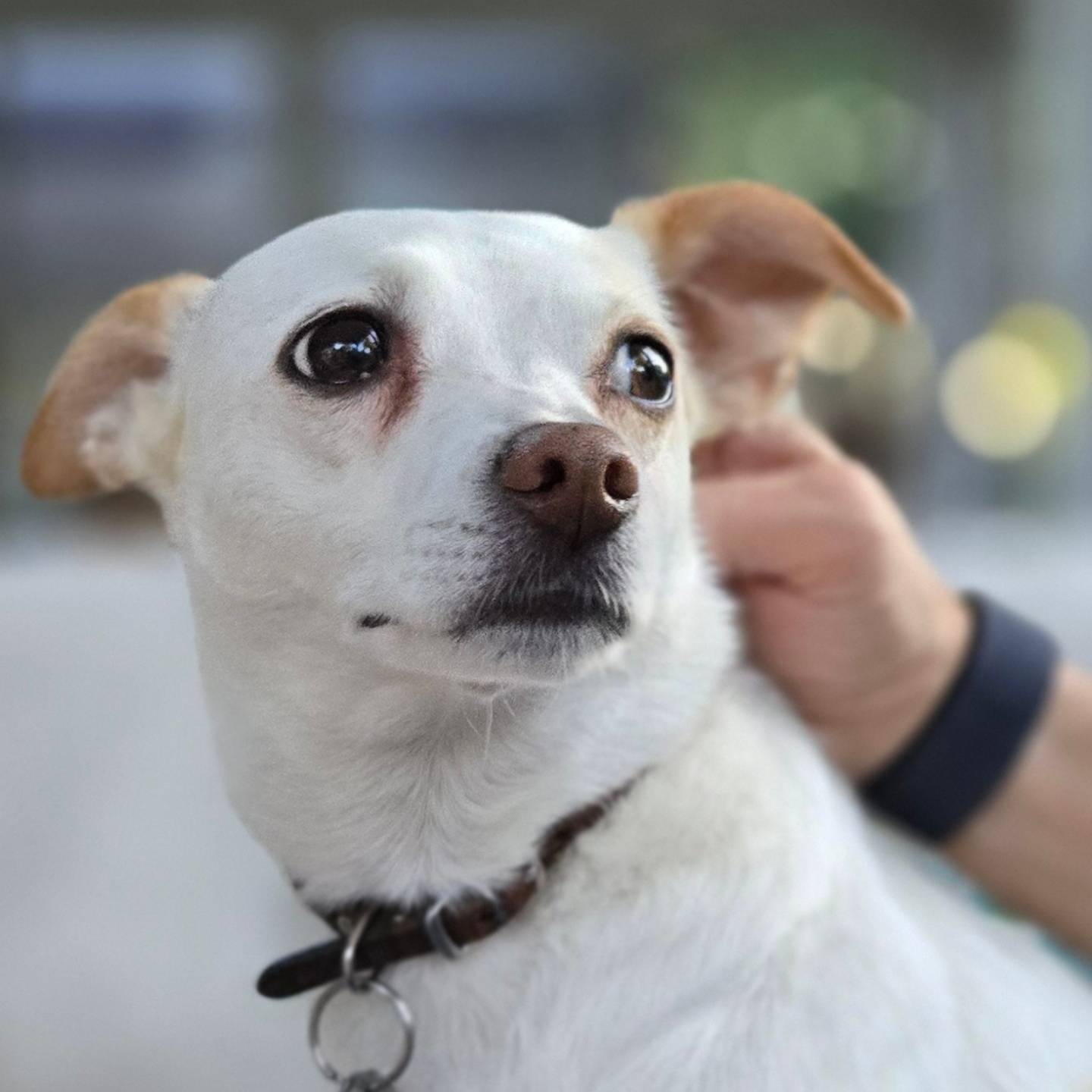
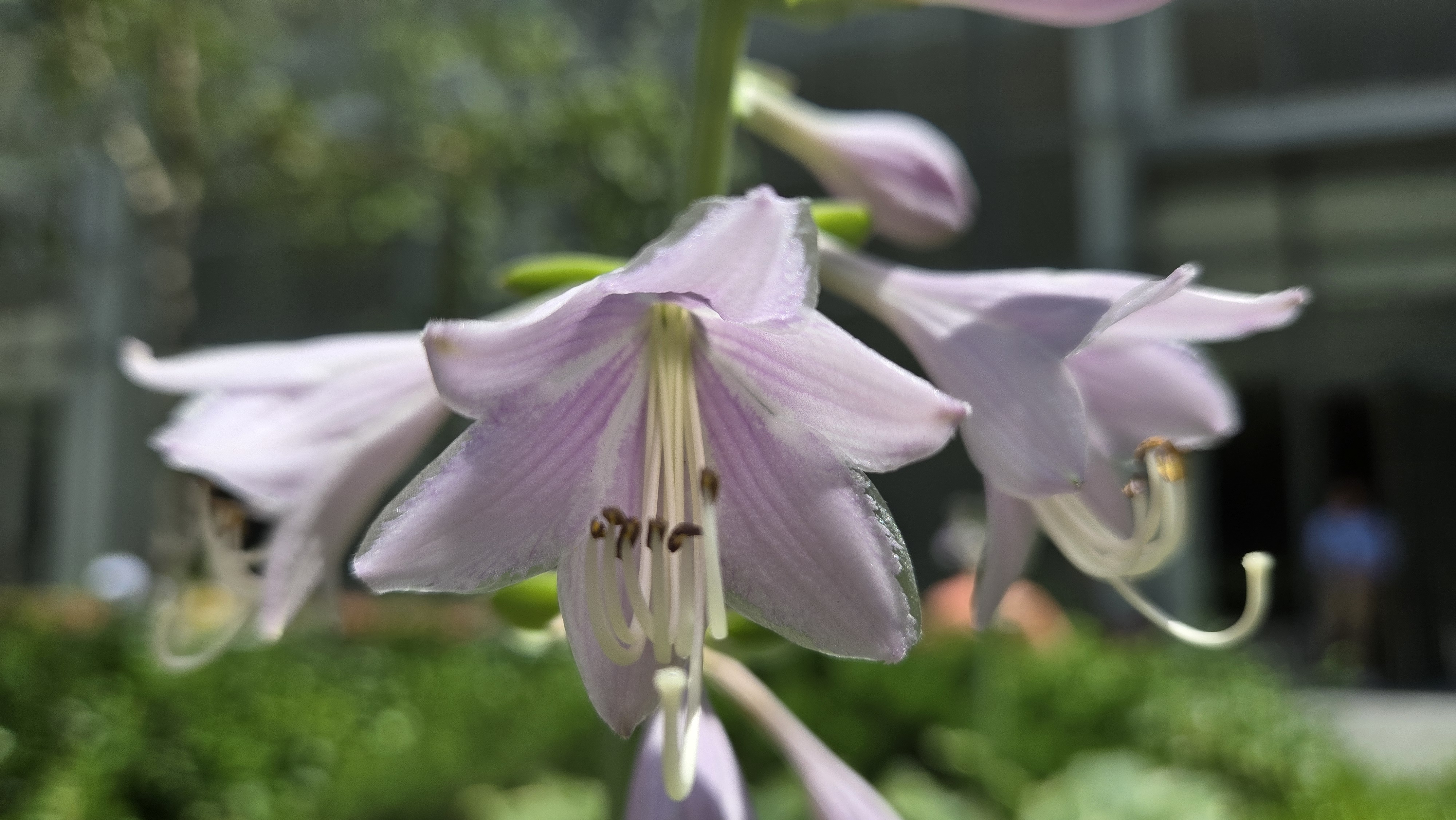
There's also a 4MP camera under the main screen, hidden behind a small cluster of pixels when not in use. It's fine for video but not much else. A nice 10MP, f/2.2 selfie camera takes good portrait shots. If you want to shoot photos of yourself with the triple camera array, you can unfold the phone, set the cover screen to be the viewfinder, and take selfies using the bigger cameras.
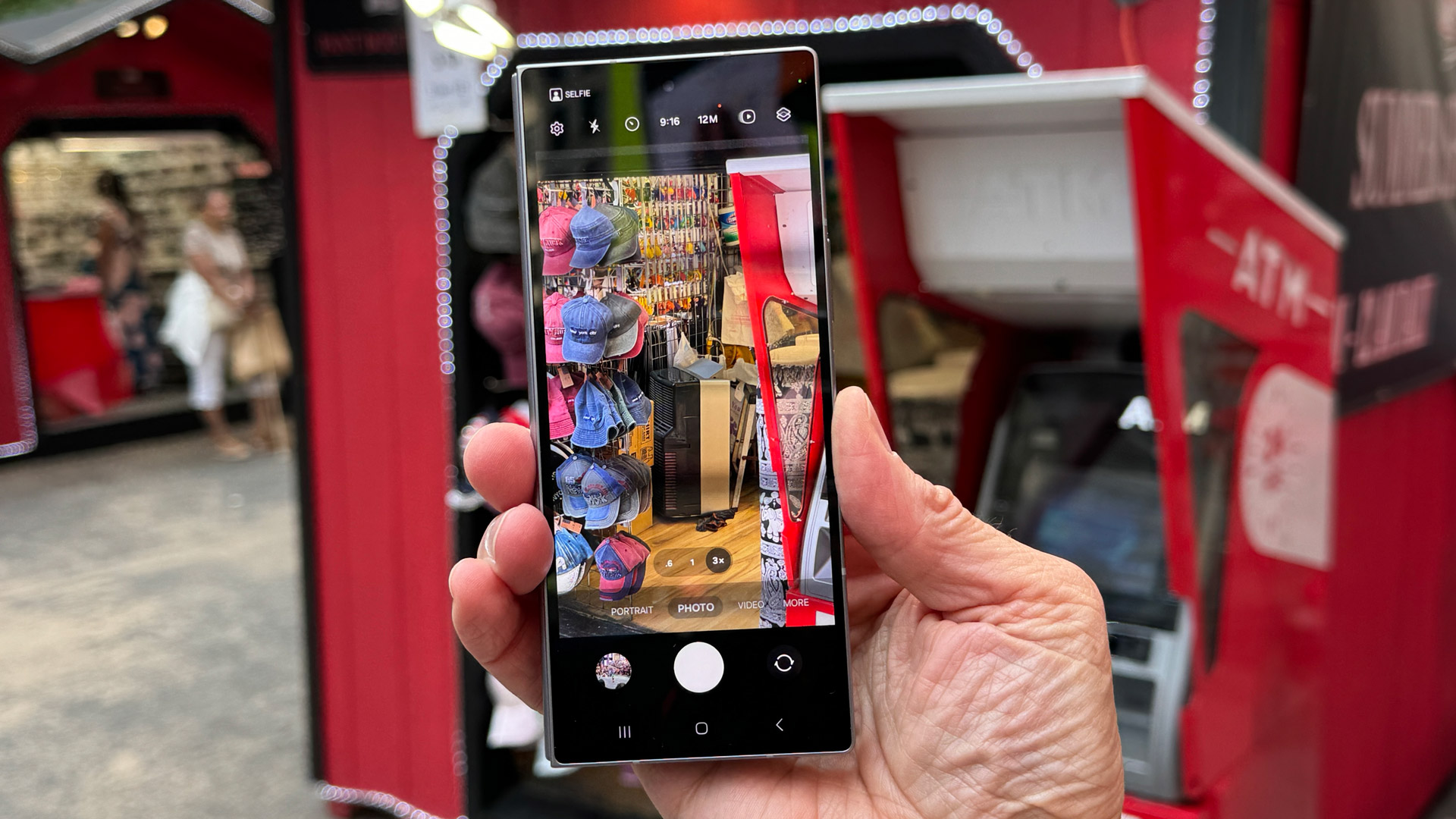
- Cameras score: 4/5
Samsung Galaxy Z Fold 6: Galaxy AI and Software
- AI that is here now
- Versatile, fun, and sometimes useful
- OneUI is now a near-perfect partner for Android 14
Even with these designs and minor camera updates, the real story of the Samsung Galaxy Z Fold 6 is Galaxy AI, Samsung's artificial intelligence platform that reaches into photography, image editing, text messaging, search, writing, drawing, health, and translation services.
These powerful tools, which arrived more or less fully formed with the new foldable phone, are more than useful, they're often fun.
Key Galaxy AI features include but are not limited to:
- Circle to search
- Sketch to image (in Notes and Gallery)
- Interpreter (Listening and Conversation mode)
- Note assist (transcription, summarization)
- Chat Assist (translation, writing style changes)
I've tried all these Galaxy AI features. Sketch to image, which works best if you have access to an optional S Pen made for Fold, is good at turning simplistic line sketches into usable art. I drew in the Notes app - sketches like a simple apple or a tooth - and each time Galaxy AI turned it into something attractive and useful, usually with a few options to choose from.
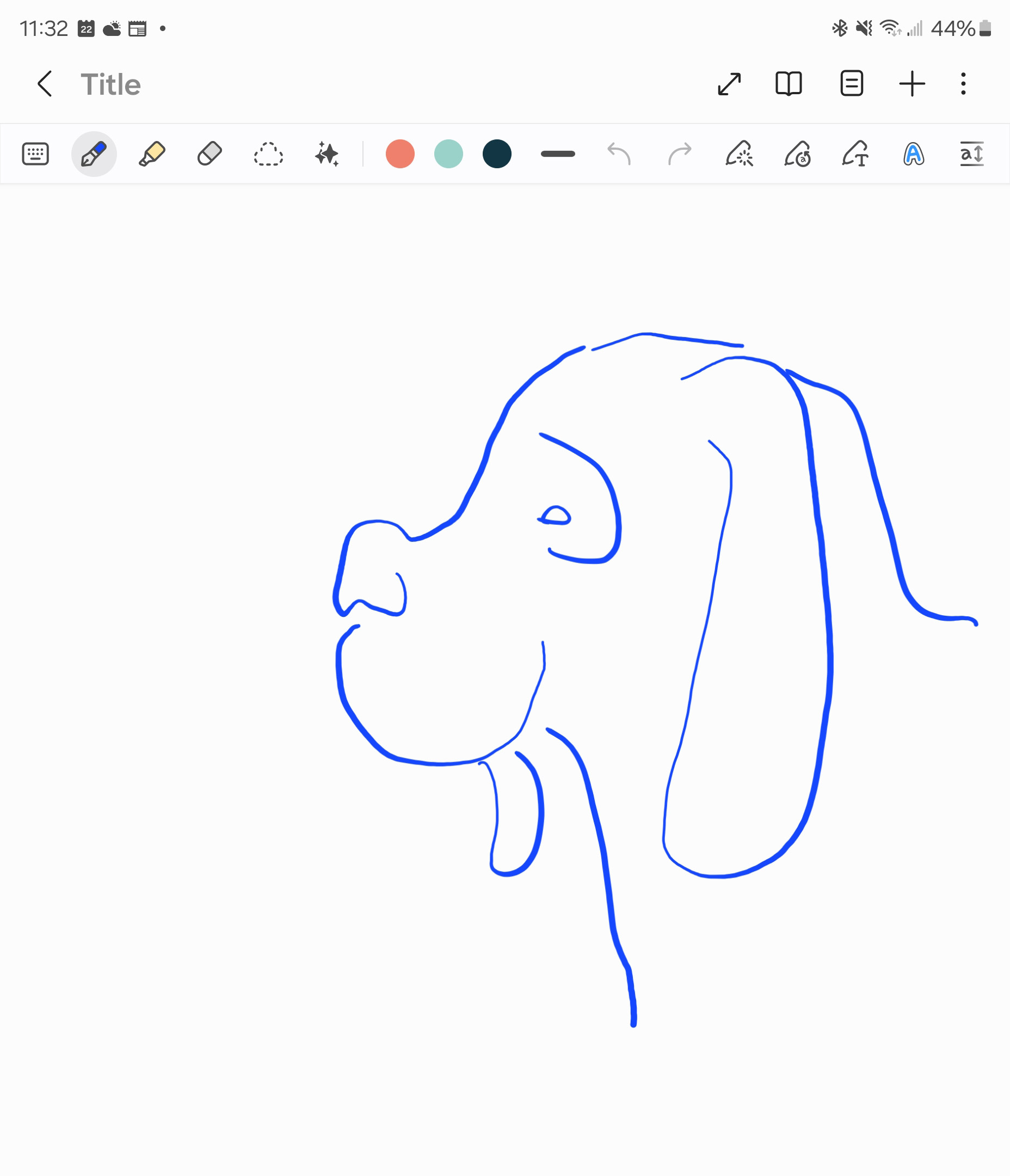
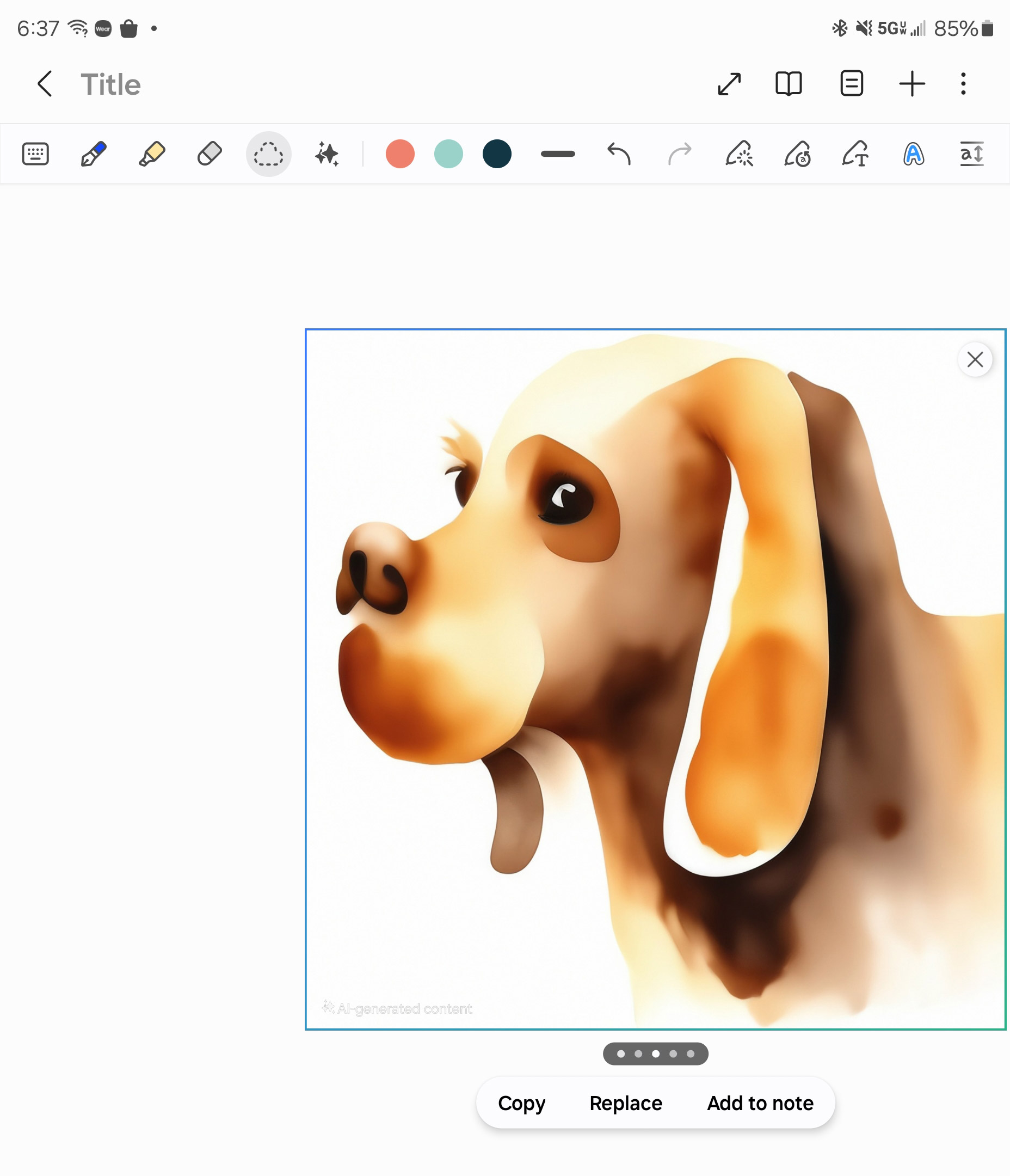
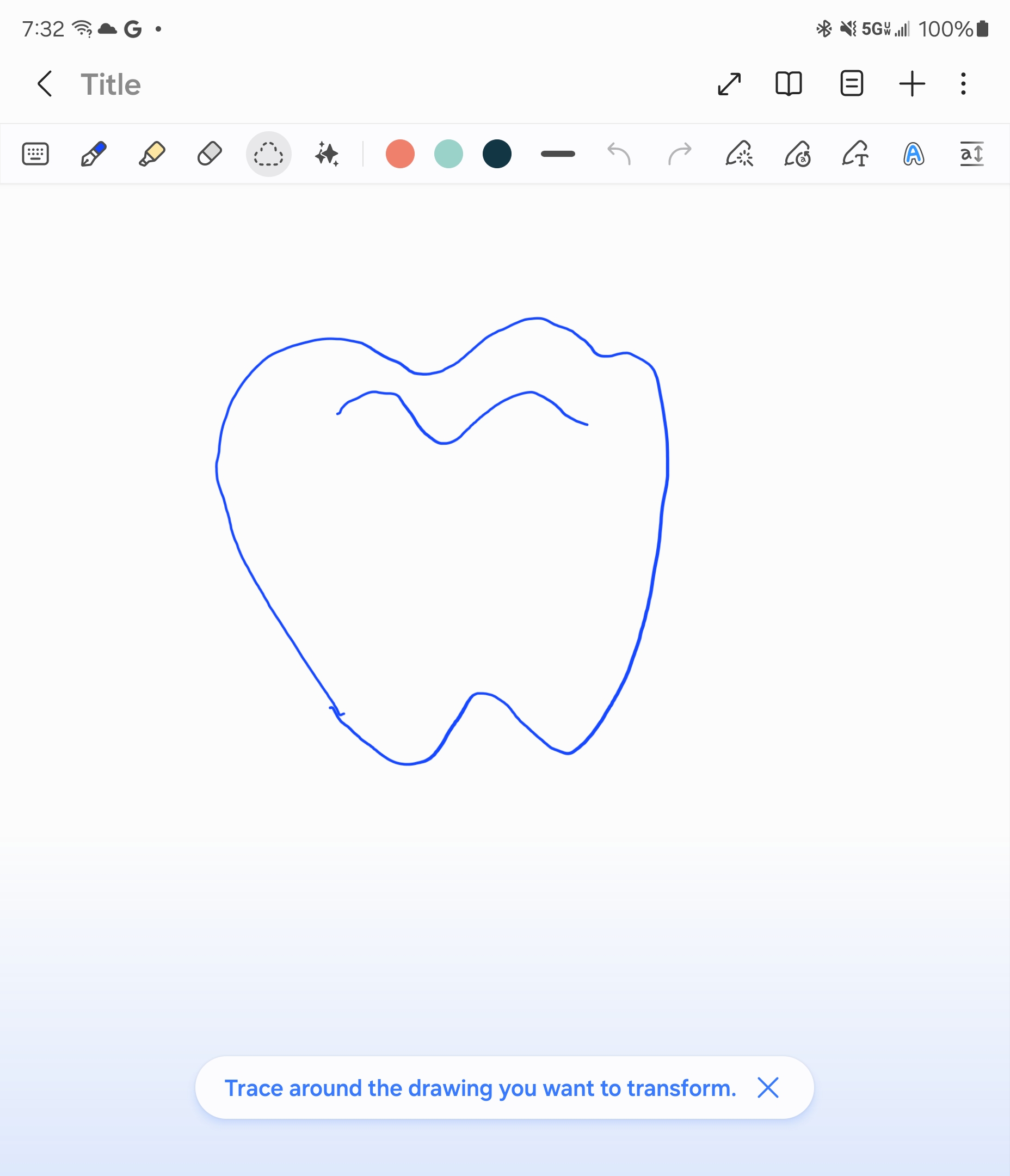
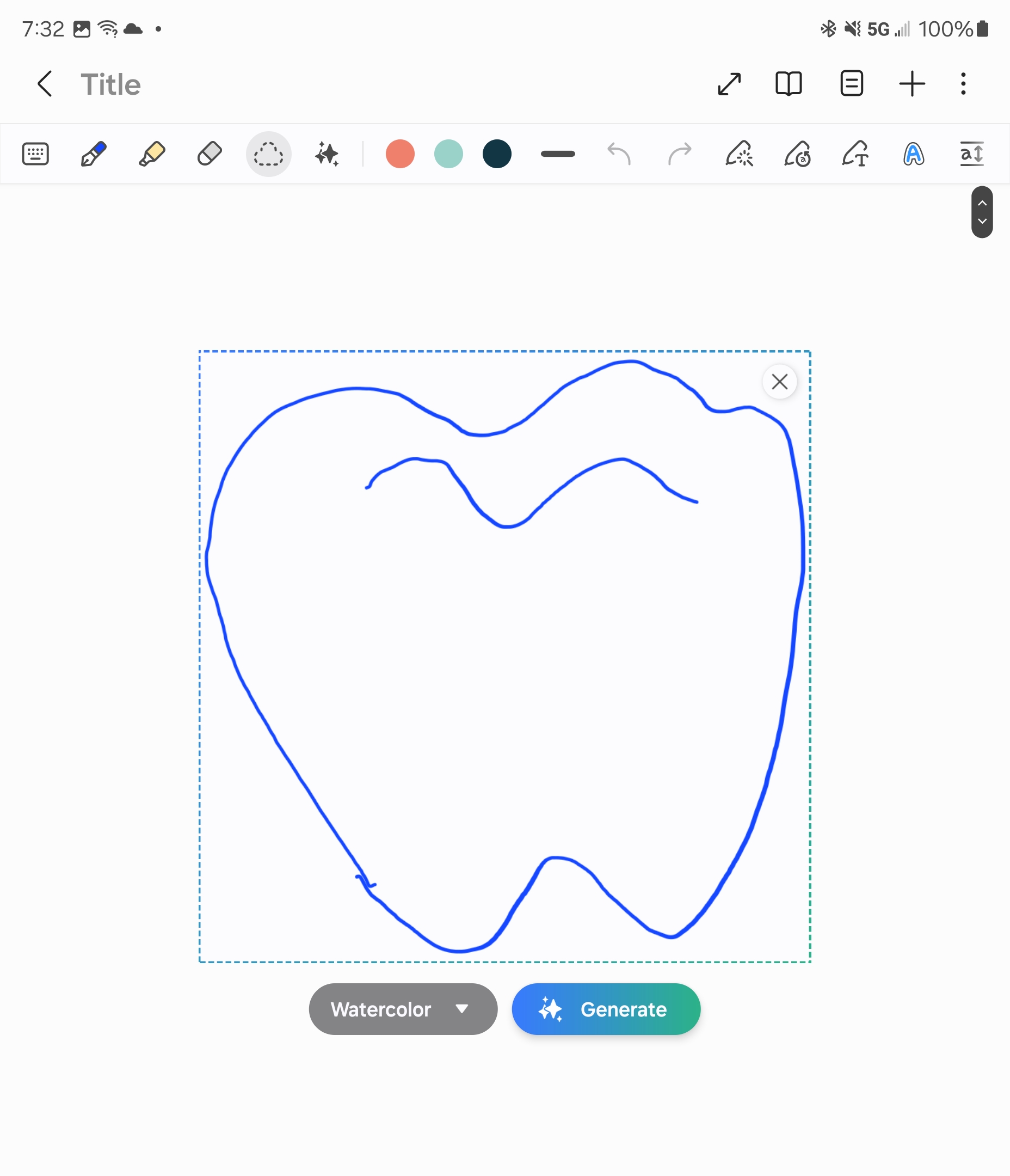
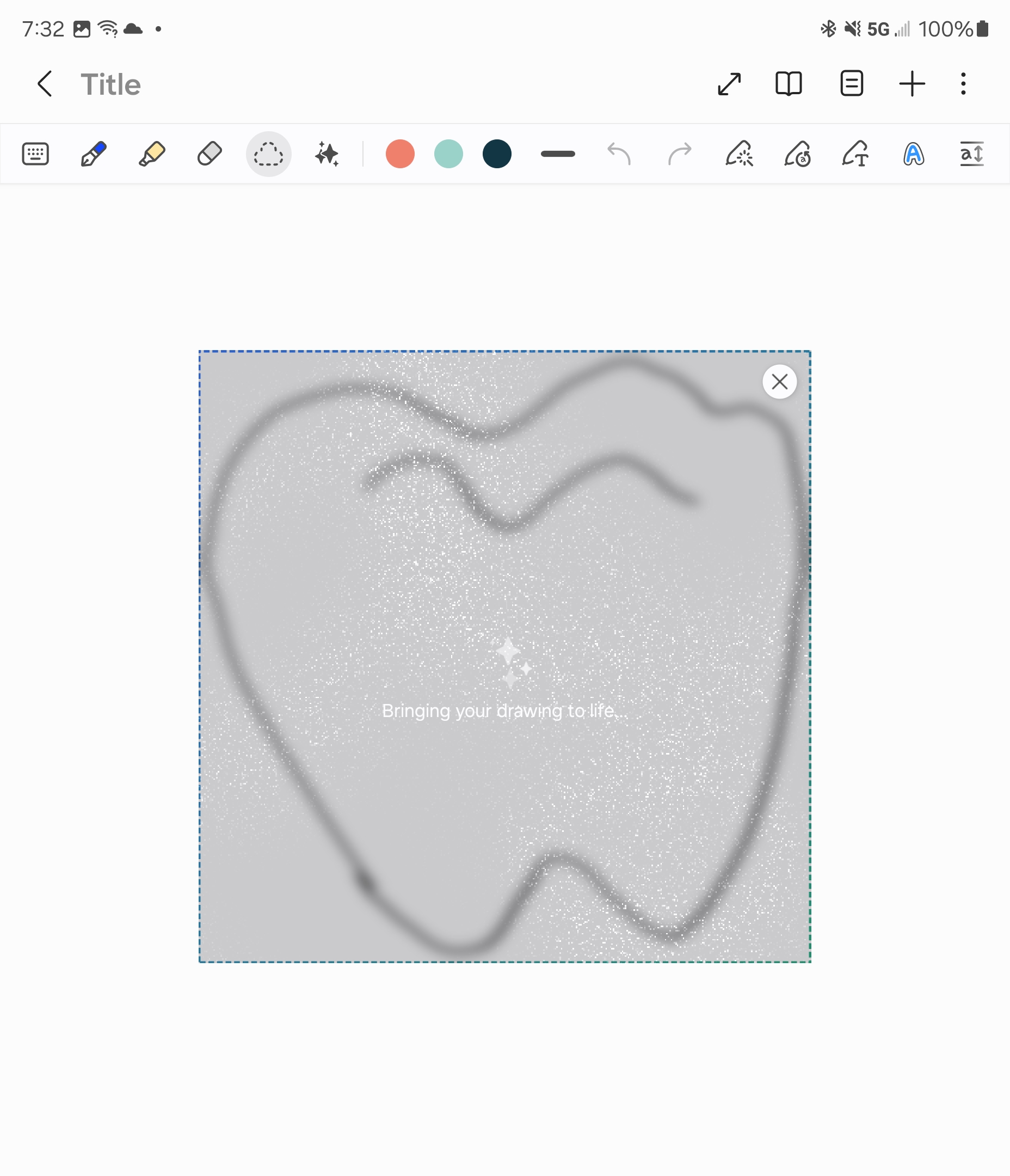
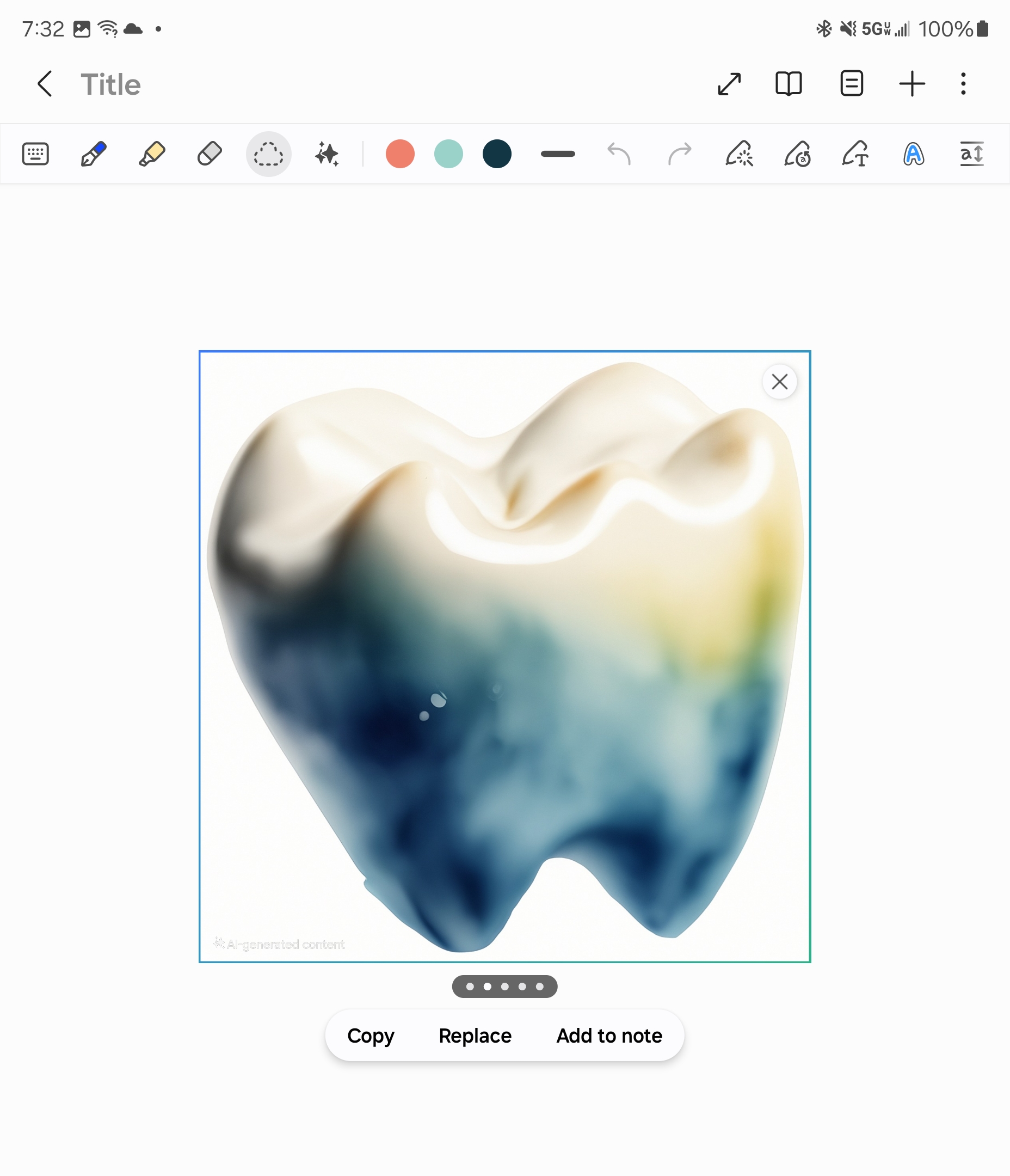
It's a feature that wowed most people I showed, but they also expressed skepticism about whether they might use it. Perhaps more useful is the Sketch to Image on Photos which let me add photorealistic elements to existing photos. I put a dog next to me, added a bird on my head and shoulder, sketched seagulls into a Paris skyline, and removed objects from other photos. In all instances, the results were convincing, right down to shadows cast by the AI objects. AI-altered images automatically get an "AI-generated content" watermark.
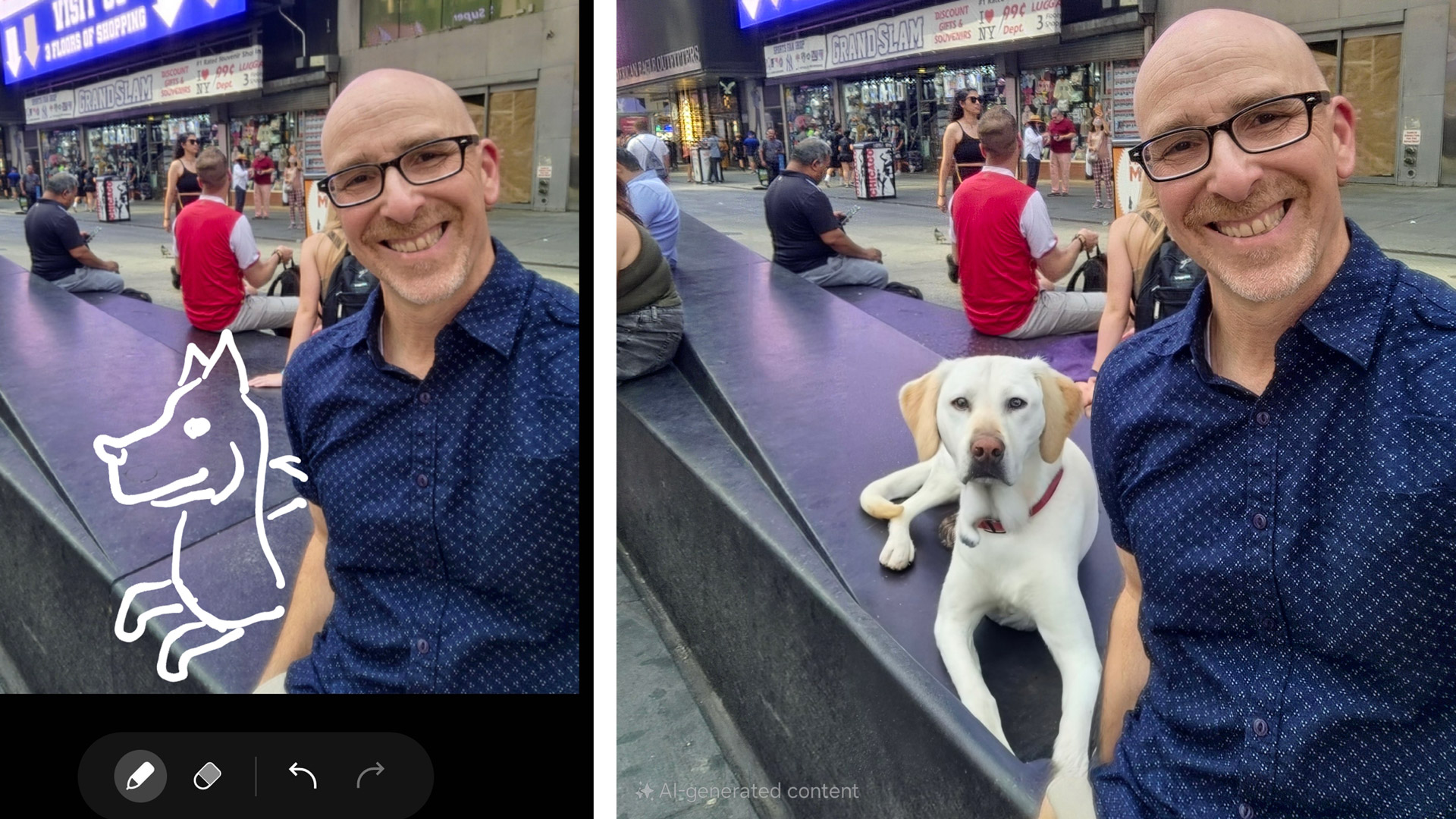
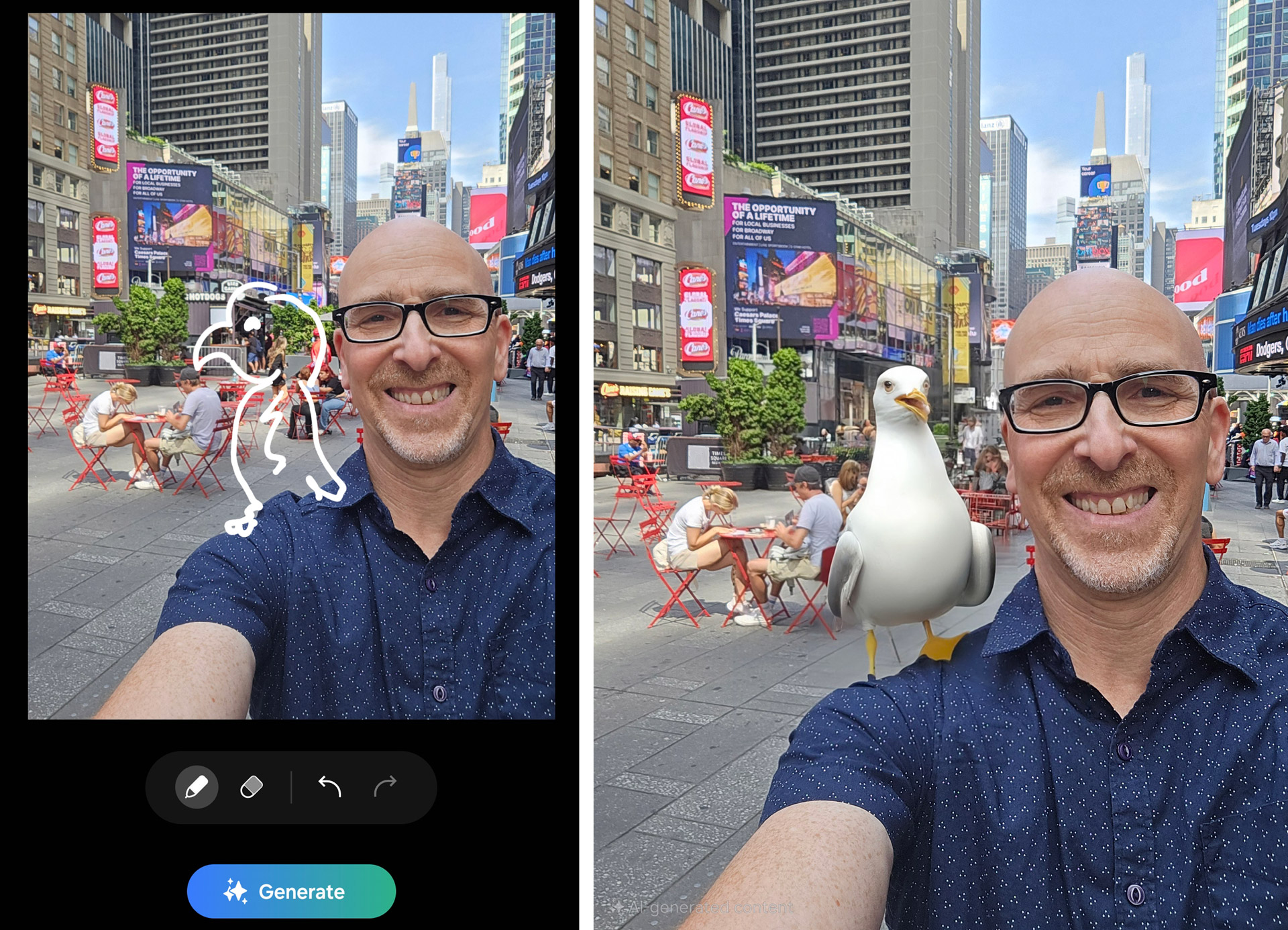
I used the Galaxy Z Fold 6 to record numerous meetings in Notes and then let Galaxy AI transcribe the conversations. It even automatically summarized them. The results were, as far as I could tell, fairly accurate to the original source material.
For as good as much of this Galaxy AI is, it does still feel like a work in progress. Sketch to Image can't generate fresh images off of detailed drawings and often encouraged me to create small objects. A sketch of Notre Dame, for instance, could not be used to generate a better image.
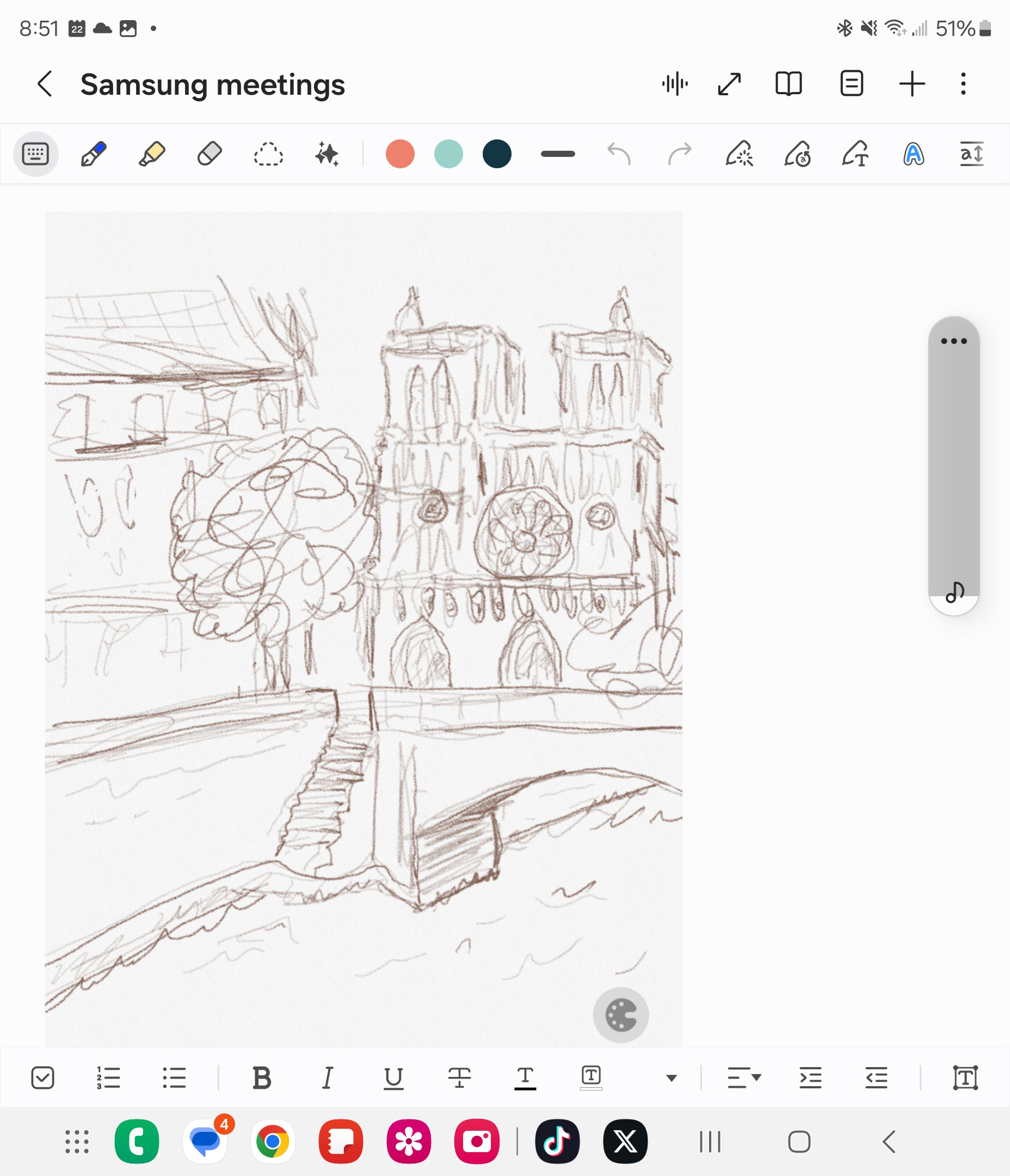
Some of the Sketch to Image photo generations were significantly different than my initial drawings. For now, these are rough tools that create content that is, at best, inspired by your scribbles.
I used the generative fill tool to remove people from behind me in a selfie and the system impressively filled in the space left after their removal with a background that matched the surroundings. Beyond doing a competent job, these Galaxy AI tools are easy to use.
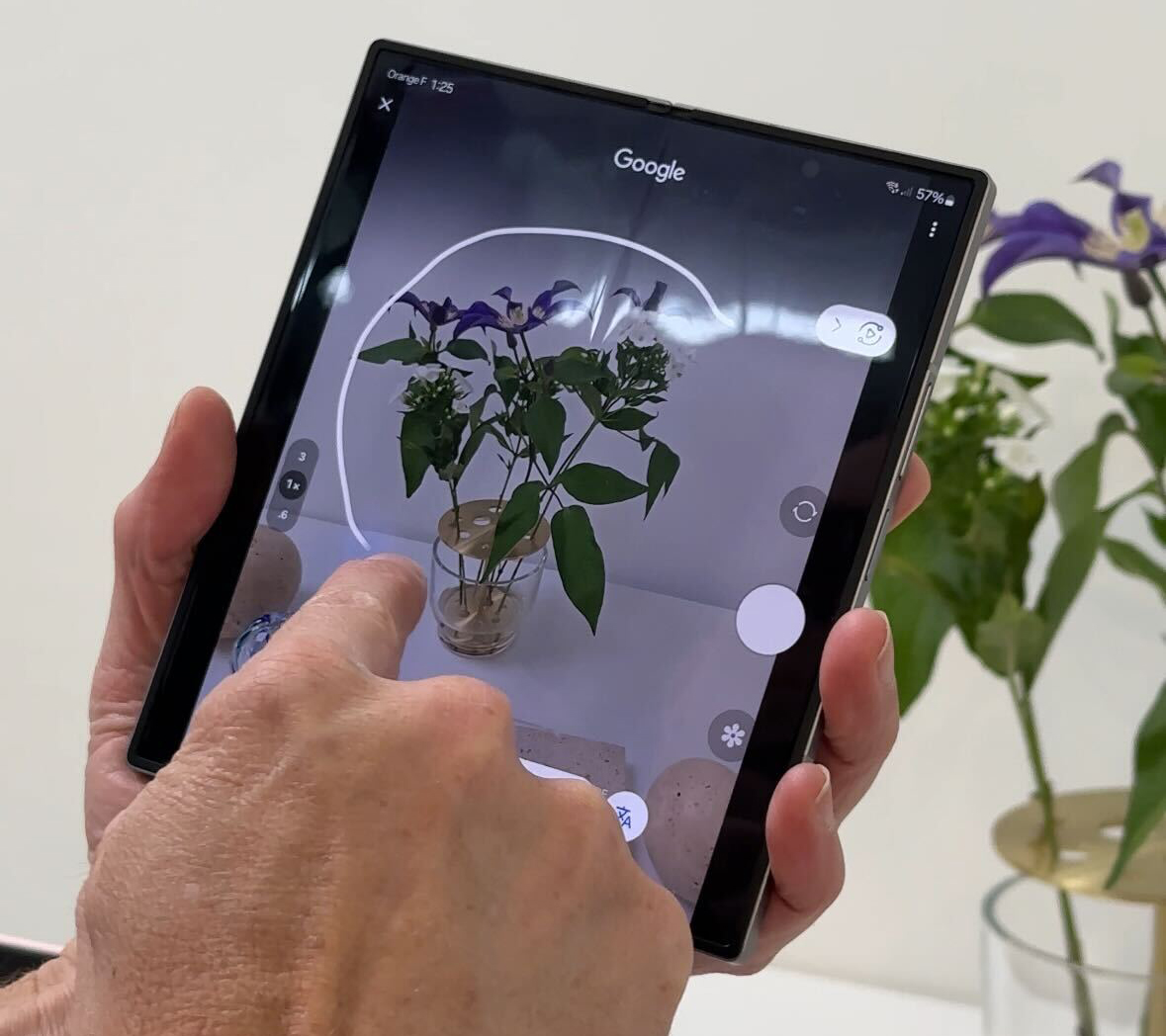
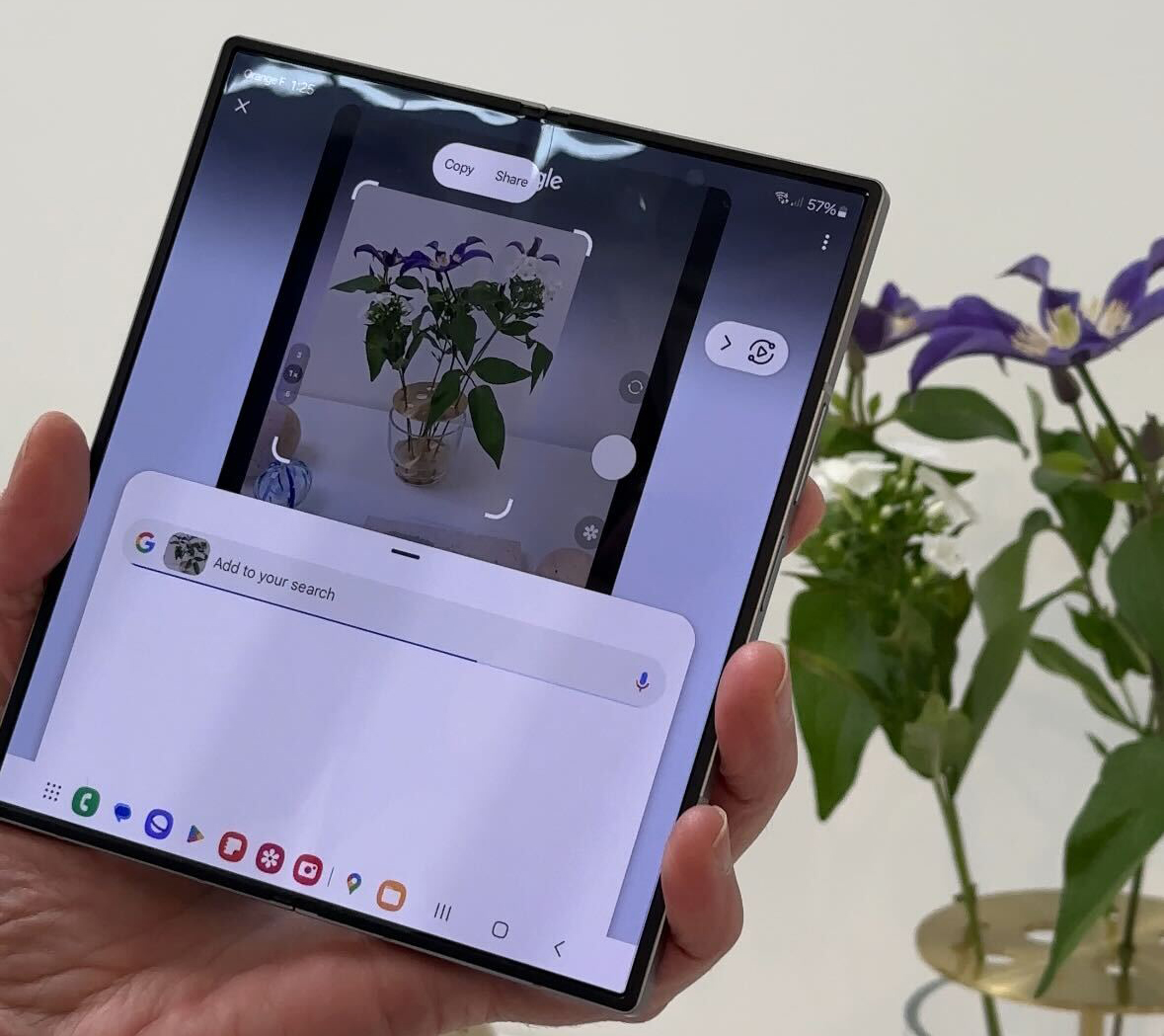
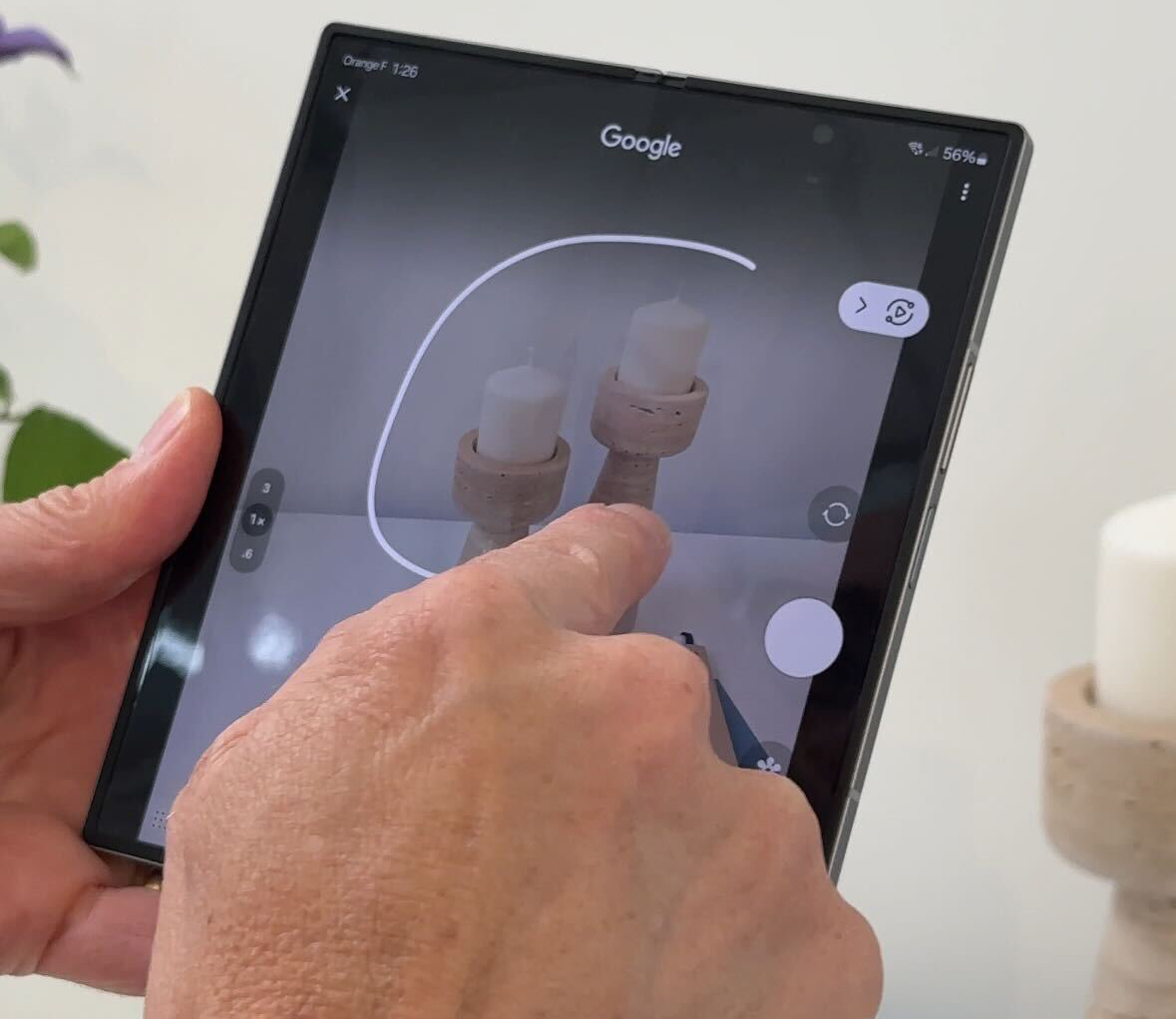
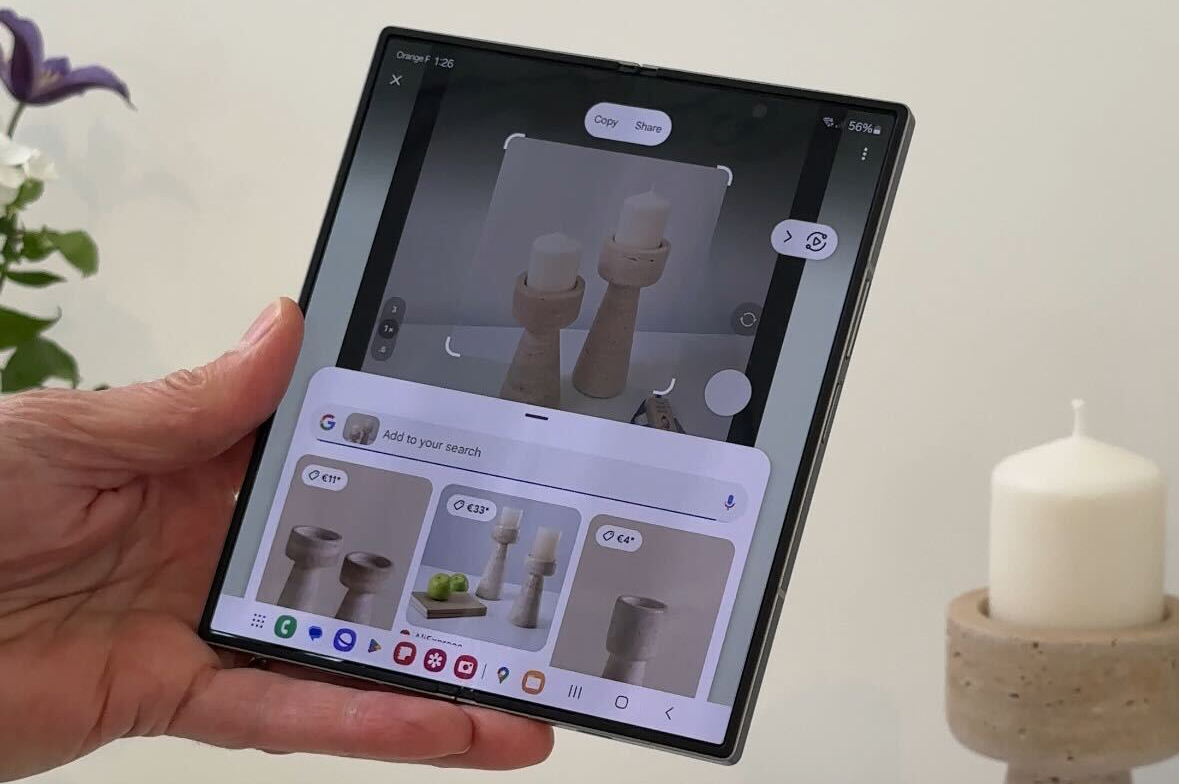
Case in point, the Interpreter. The Interpreter lives under the Quick Panel, but you can move to your home screen. Fold the phone into flex mode, and it's quite easy to let the system detect the language of the speaker and start interpreting. It can either interpret a foreign language speaker or do real-time two-way translation, so the person facing you sees what you're saying, translated into their language, and you see on the Main screen their words in your language.
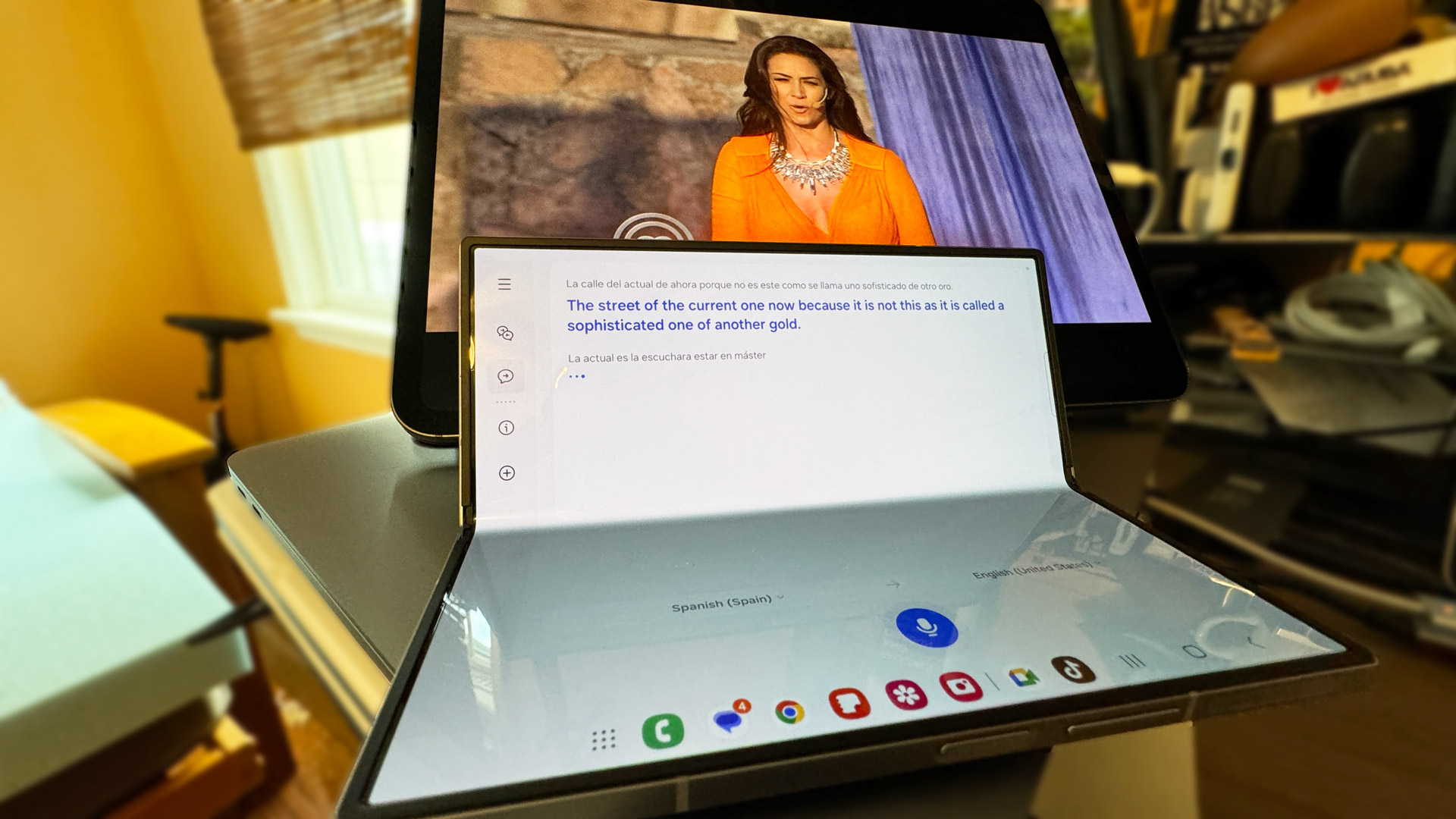
The AI feature works well, but I quickly realized that when I already had a language barrier, explaining to someone how to use this feature was a problem.
I later used the Galaxy AI translator to live-translate a Spanish TV show. The translation was not always exact but it was close enough to be useful.
- AI score: 4/5
Samsung Galaxy Z Fold 6: Performance and Battery
- Bespoke Qualcomm chip delivers impressive numbers
- Real world performance is top-notch
- Would like to see more storage to start
- Battery life is all-day good
The Galaxy Z Fold 6 represents Samsung's latest in performance hardware. It has a larger vapor chamber, which should help with heat dissipation, especially during intense activities like gaming. In my gaming experience with Asphalt 9, I didn't notice the phone getting warm, so maybe the vapor chamber is doing its job.
Not only does the Galaxy Z Fold 6 use Qualcomm's latest silicon, but it also gets a bespoke version of the Qualcomm Snapdragon 8 Gen 3 for Galaxy chip, which gives a small boost to clock speeds. This is backed by 12GB of RAM.
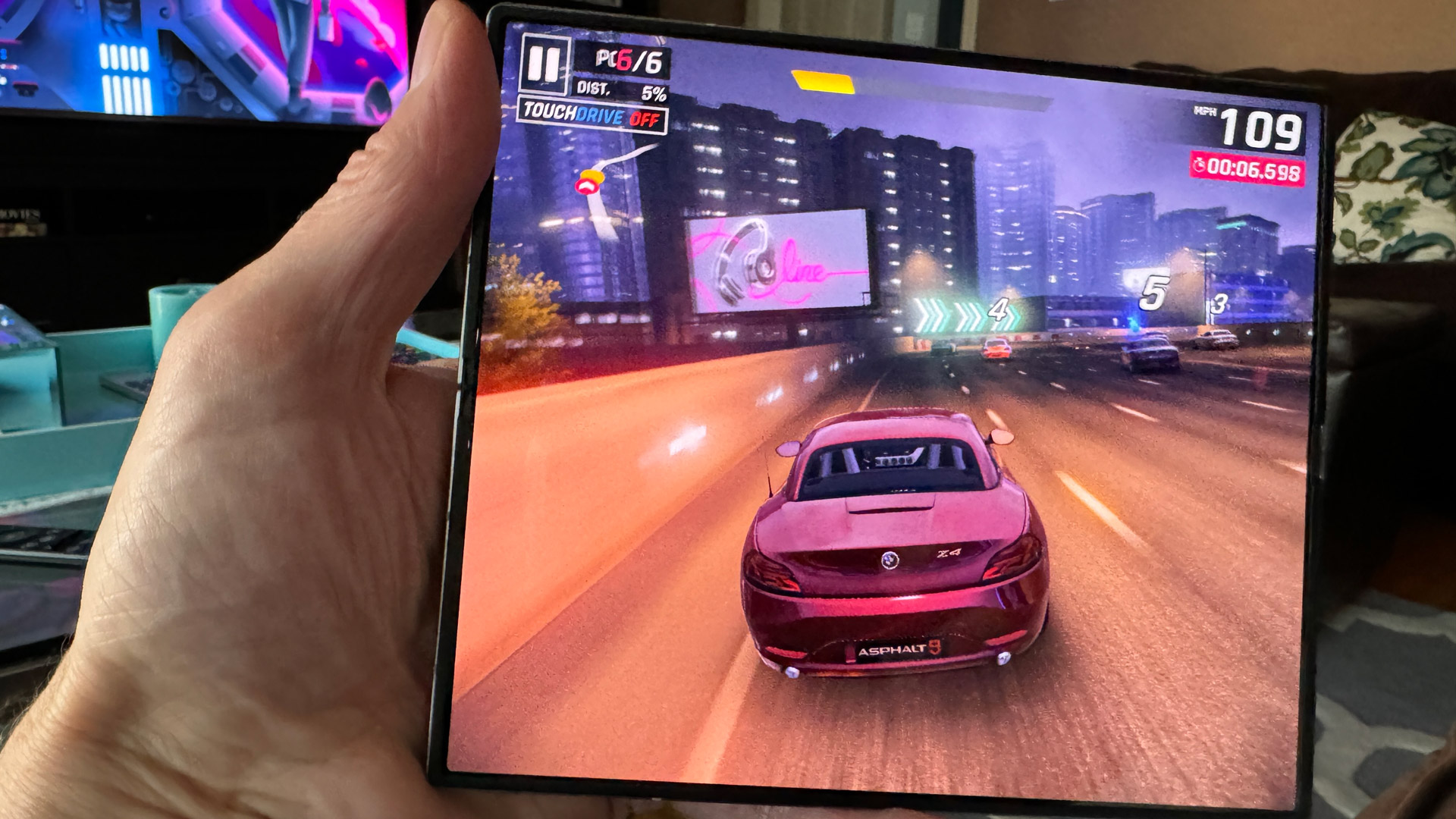
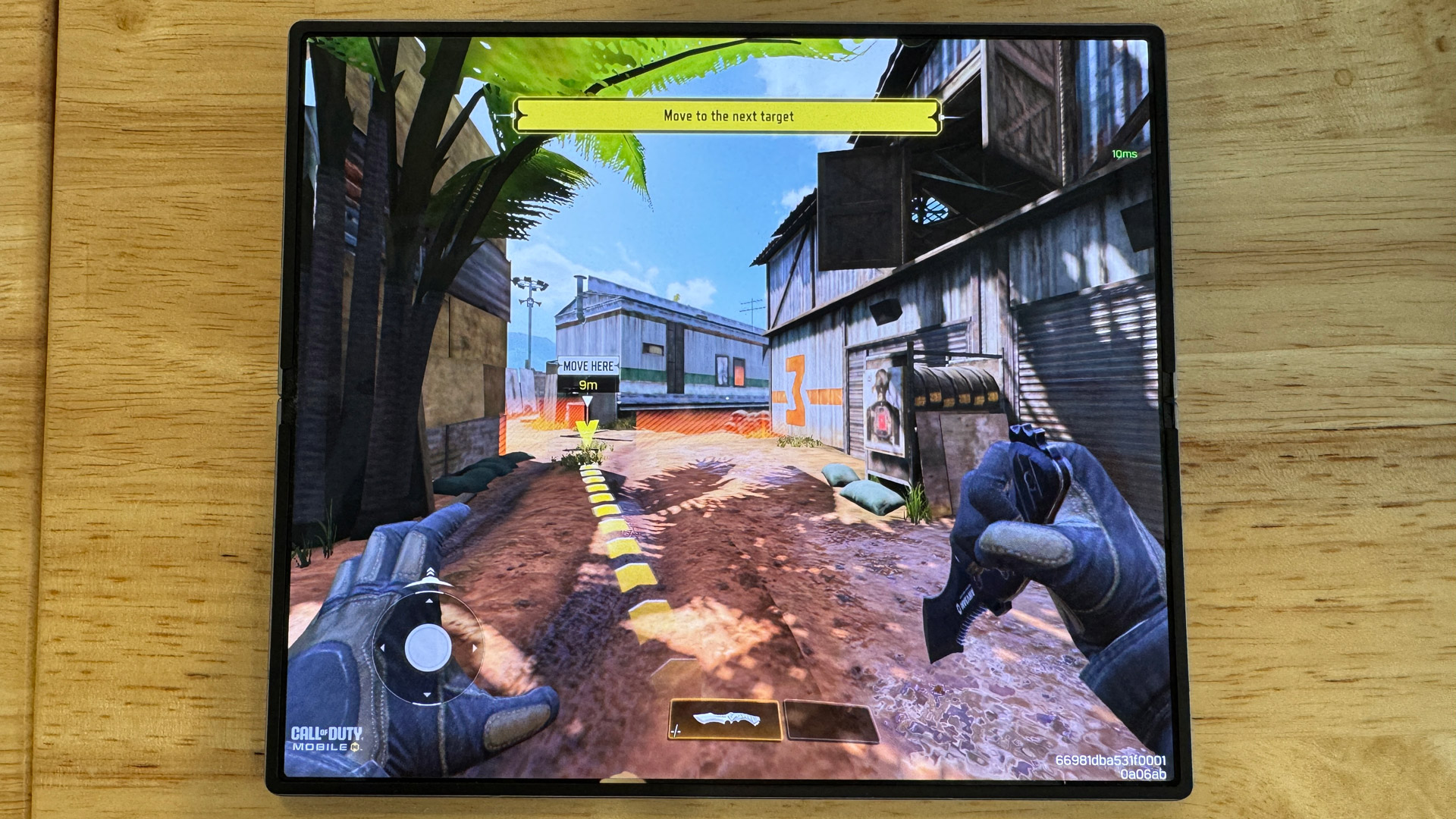
In our Future Labs tests and my anecdotal tests, the Z Fold 6 benchmarks are significantly high, especially on the GPU side. Apple's iPhone 15 Pro Max and the new A17 Pro chip still beat the Galaxy on GeekBench 6, but the gap is narrowing and it's hard to imagine a task the Z Fold 6 wouldn't easily manage.

I shot 4K/30fps video with the phone (it can shoot up to 8K) and then edited four instances of the clip in Adobe Premier Rush without any issues.
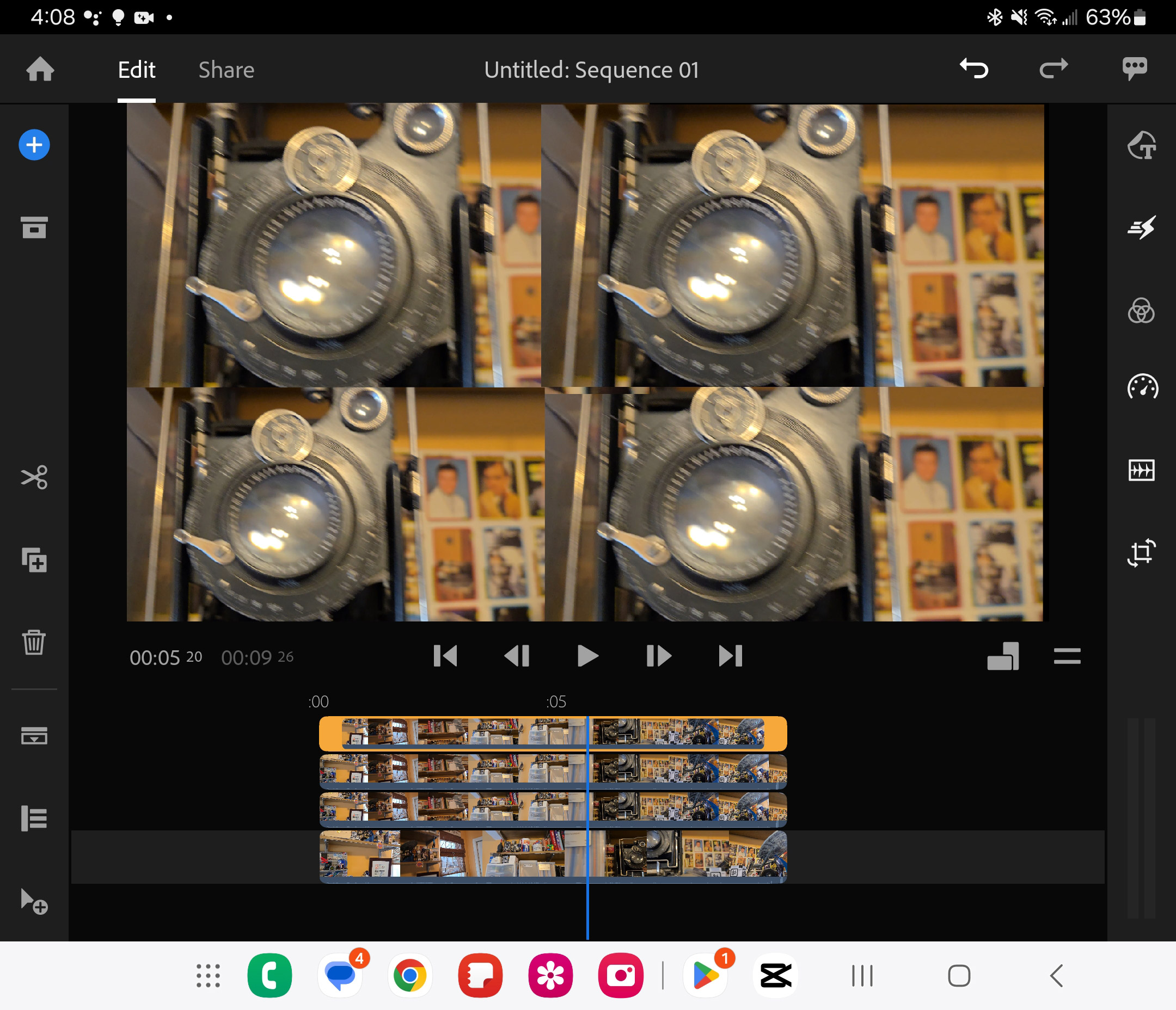
Storage starts at 256GB, which is not bad but I think Samsung should have offered 512GB. You can up the space to 1TB if you're willing to pay $2,259.99 in the US, at least.
A word about these prices. The Galaxy Z fold 6 is an expensive handset, starting at $1,899.99 / £1,799 / AU$2,749, but Samsung usually has fantastic trade-in deals and sales and it's unlikely you'll pay full price. So be sure to shop around before buying.
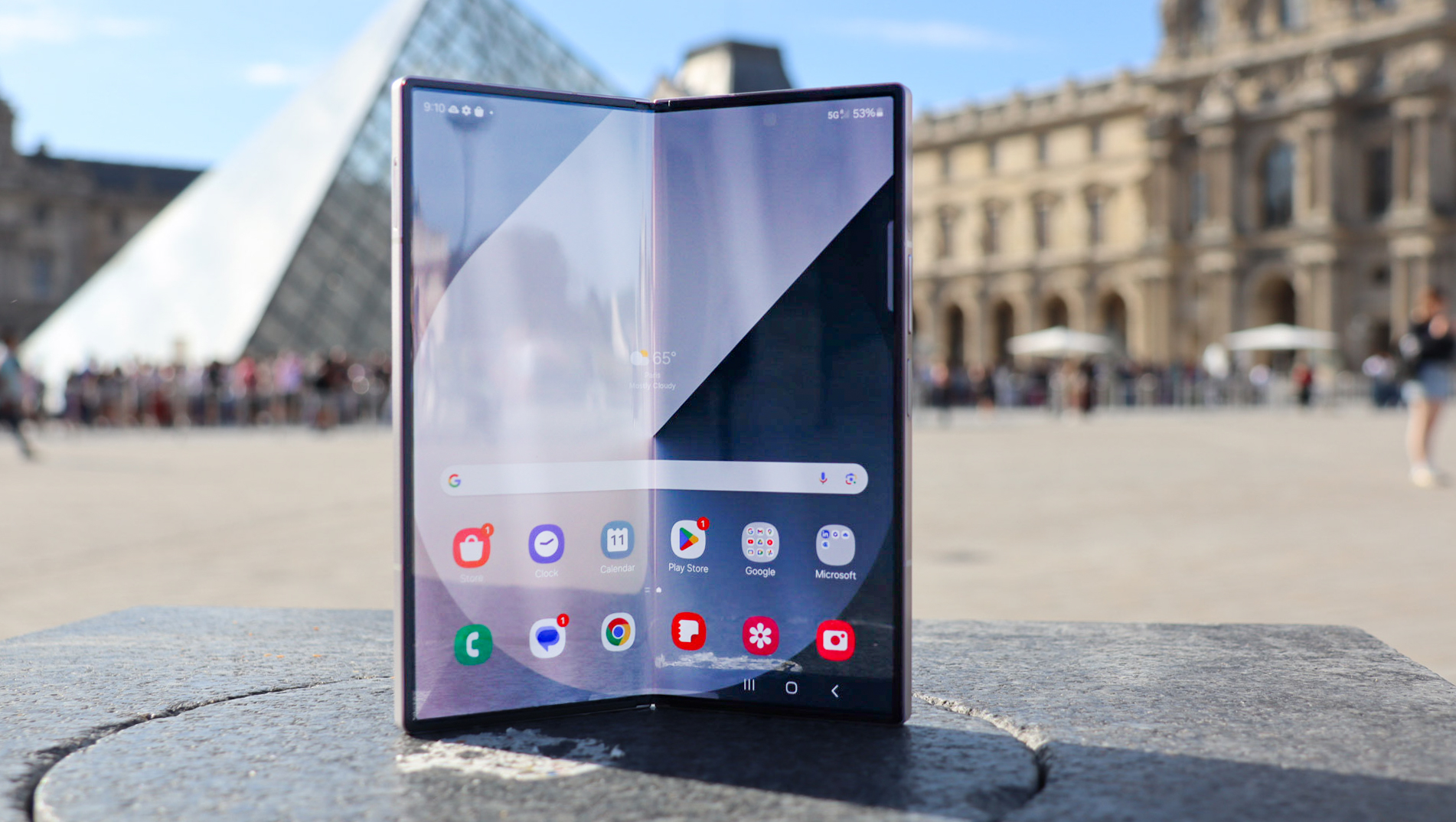
The Galaxy Z Fold 6 uses a 4,400mAH dual battery, and between our Future Labs tests and my own testing I'd say you can expect between 10 and 11 hours of battery life depending on your display settings and other factors.
- Performance and Battery score: 4.5/5
Should I buy the Samsung Galaxy Z Fold 6?
Buy it if...
Don't buy it if...
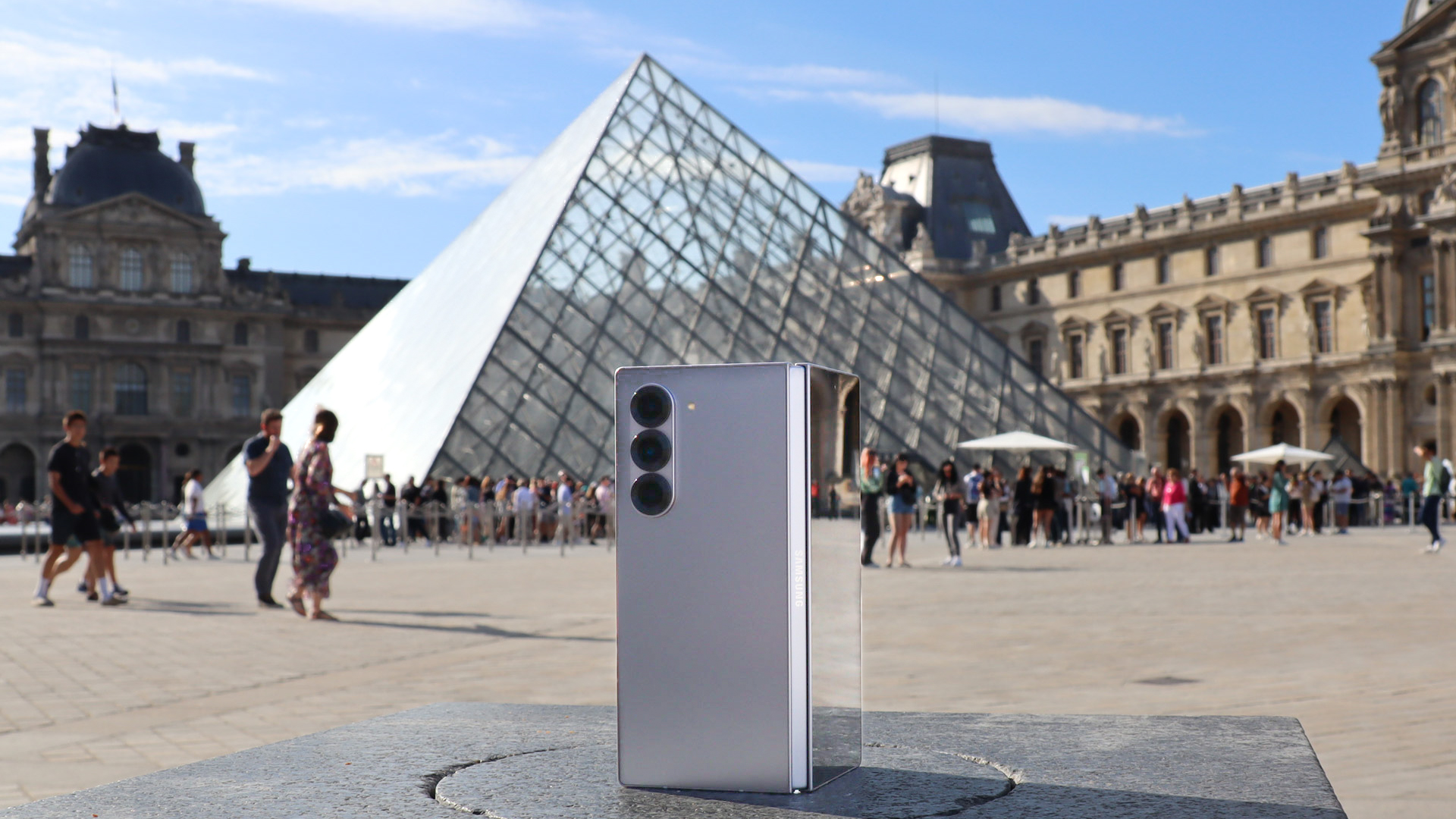
Samsung Galaxy Z Fold 6 review: also consider
How I tested the Samsung Galaxy Z Fold 5
I started testing the Samsung Galaxy Z Fold 6 in Paris, shooting local sights and using it to get real work done with traditional apps, productivity tools, and a variety of Galaxy AI tools. I'm still using it as I write this (though I did not have AI write my review).
I watched movies, played games, and consumed a lot of social media.
I ran benchmarks, as did Future labs which combined for my Performance section.
First reviewed July 2024







